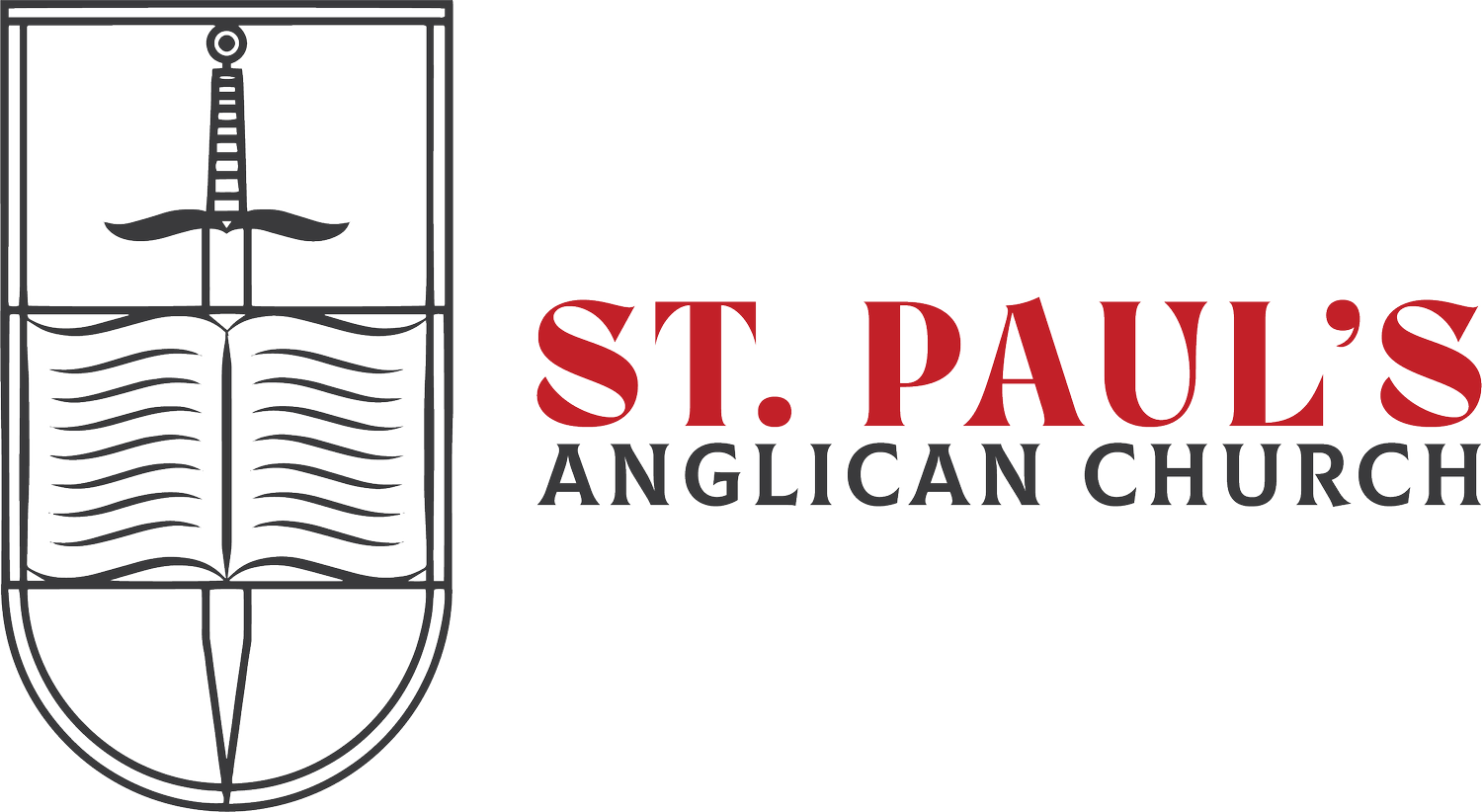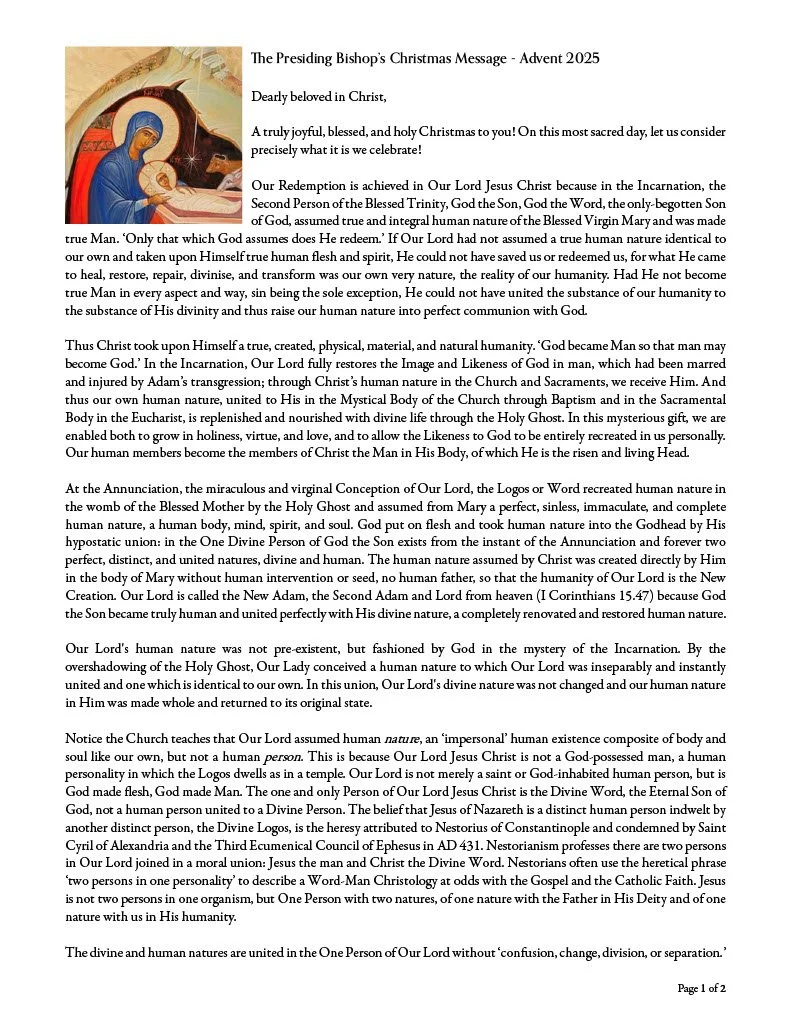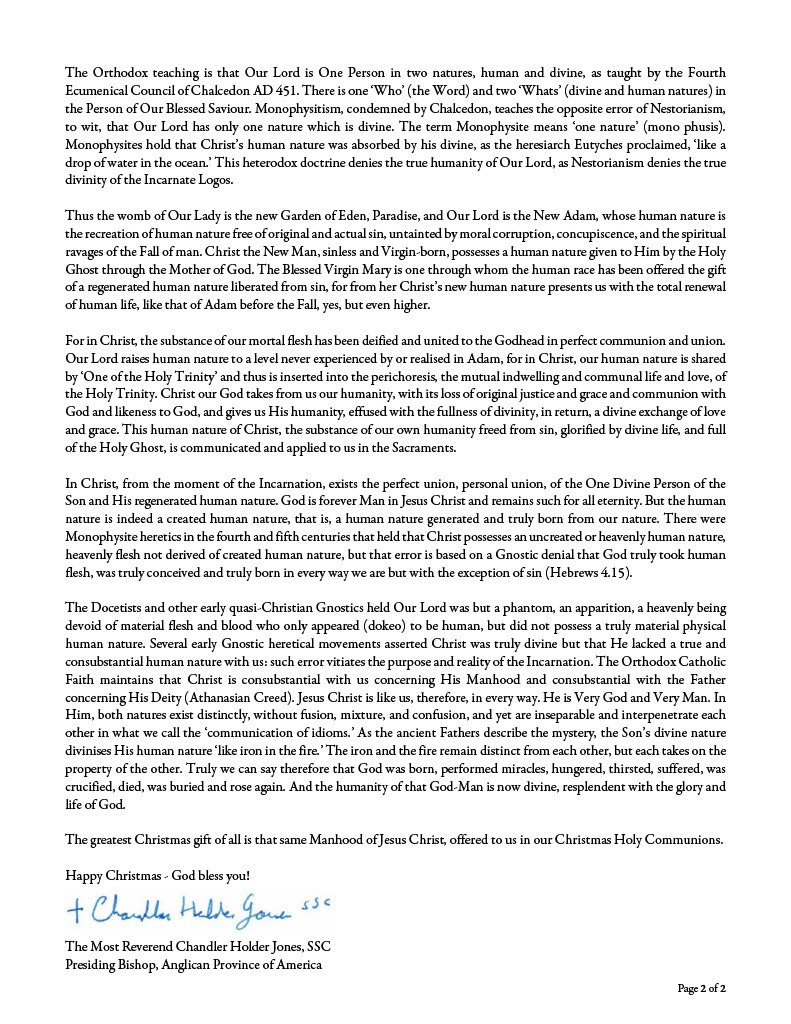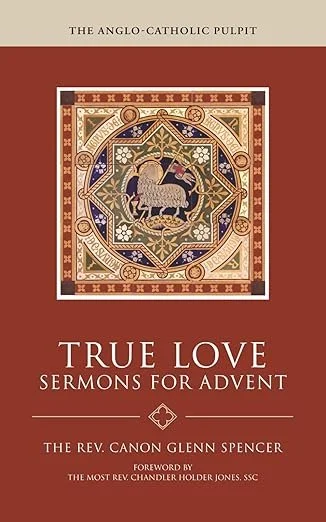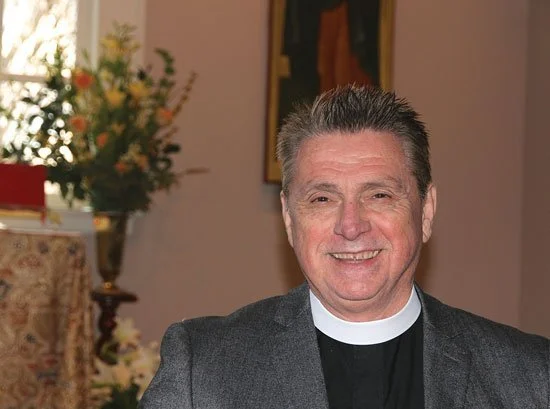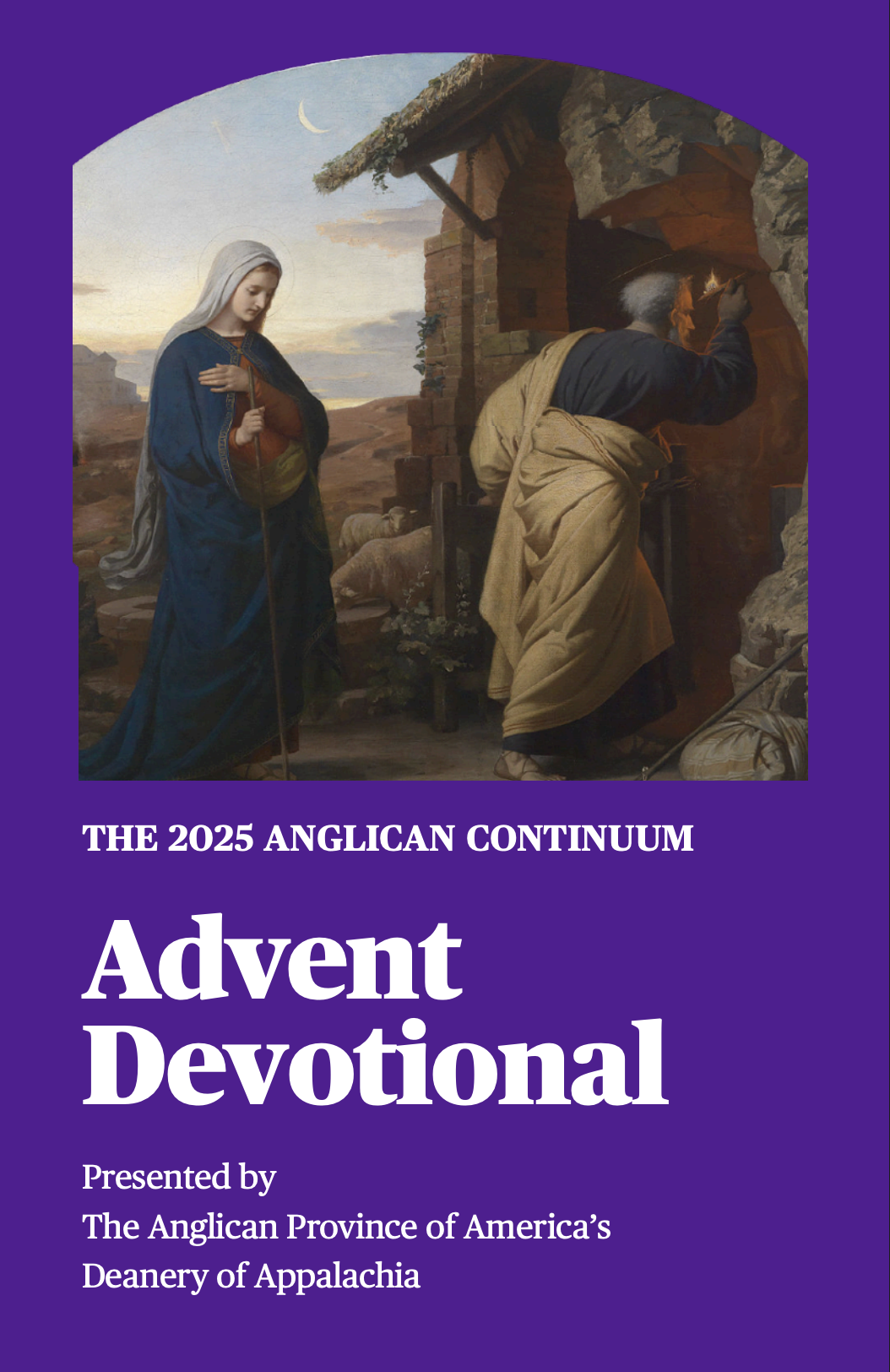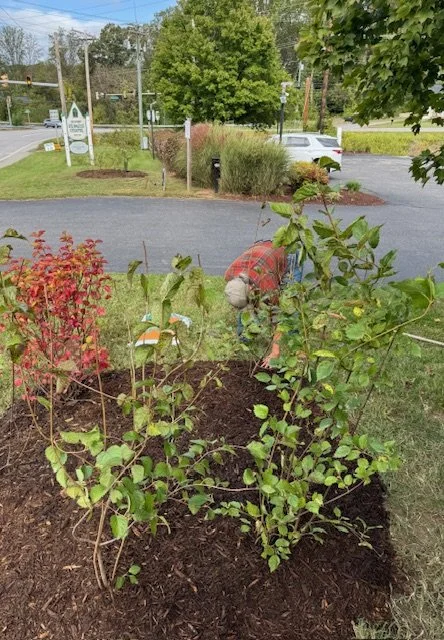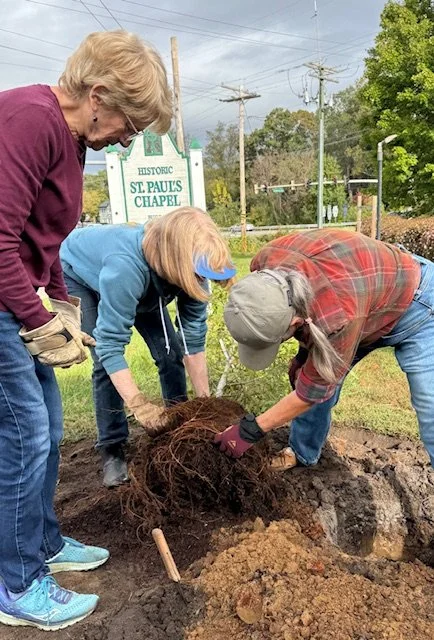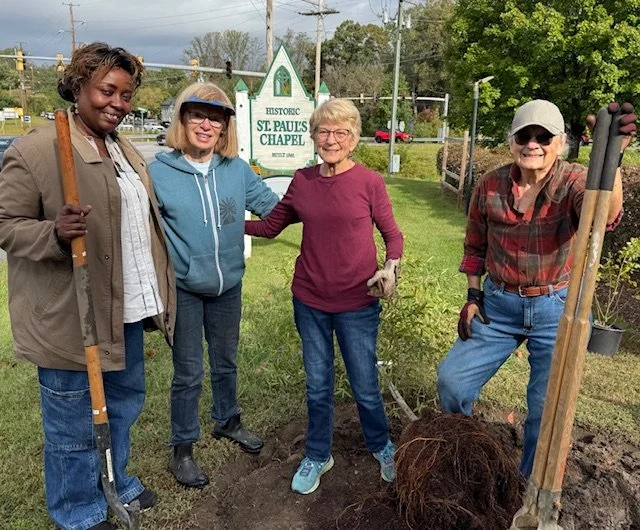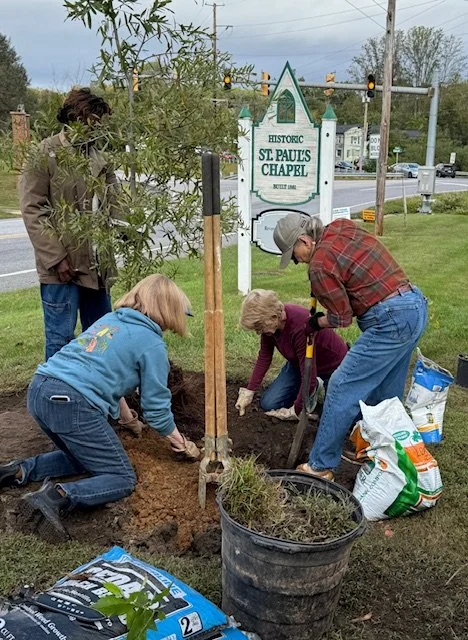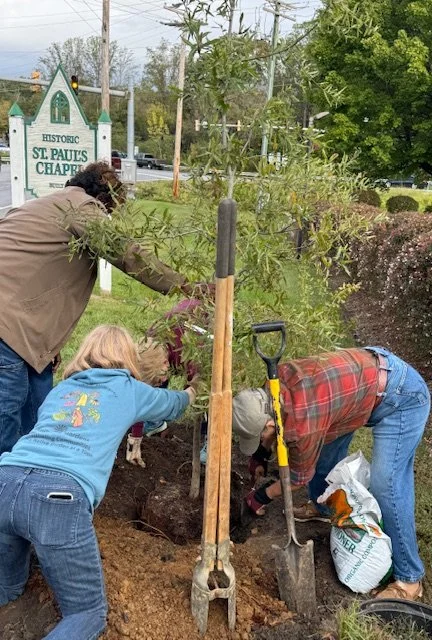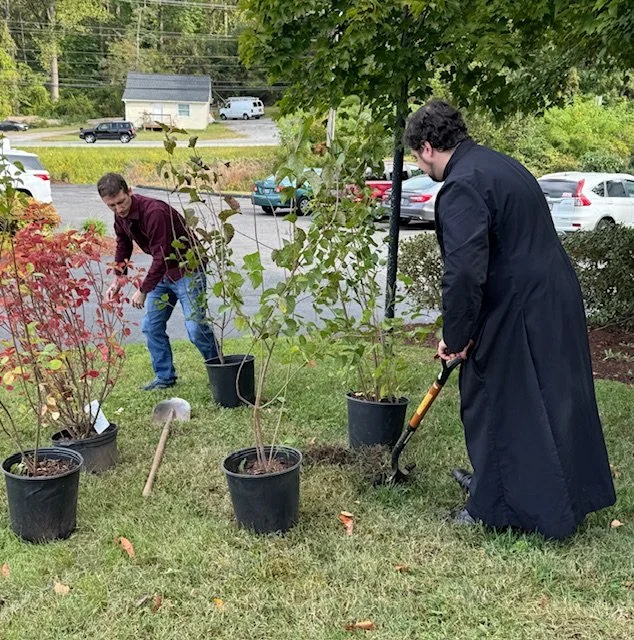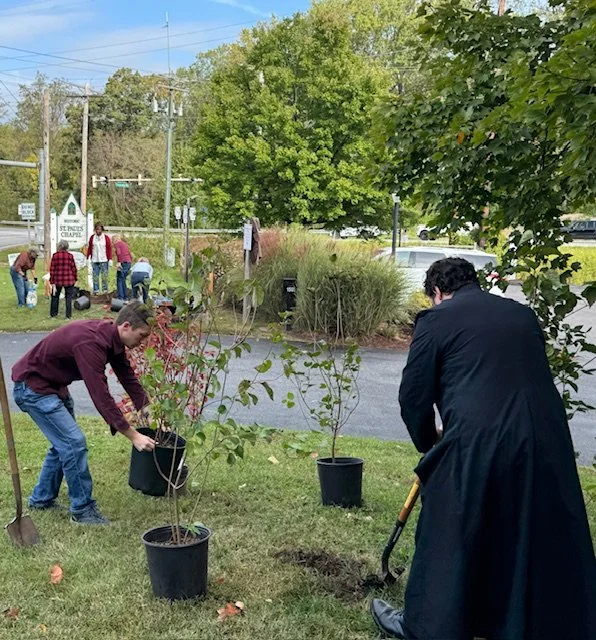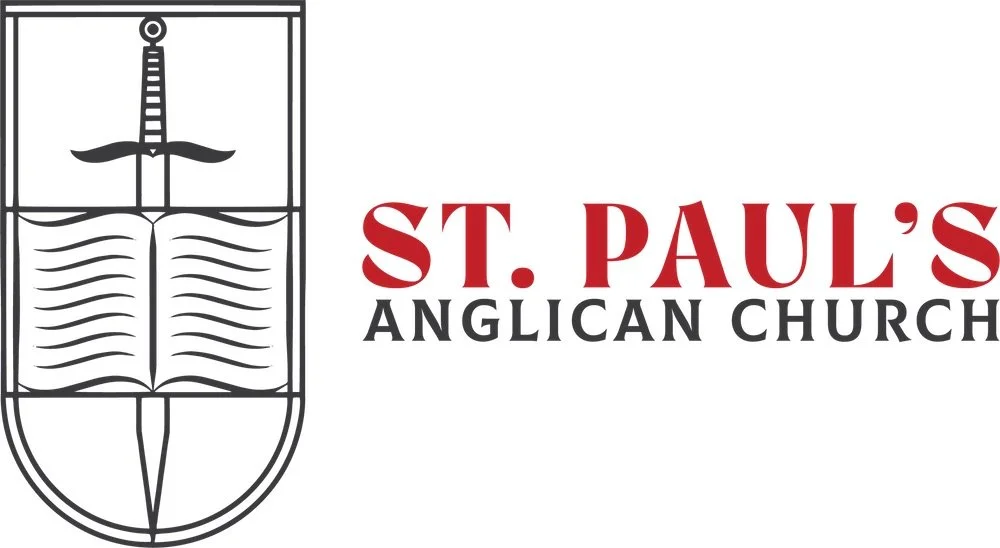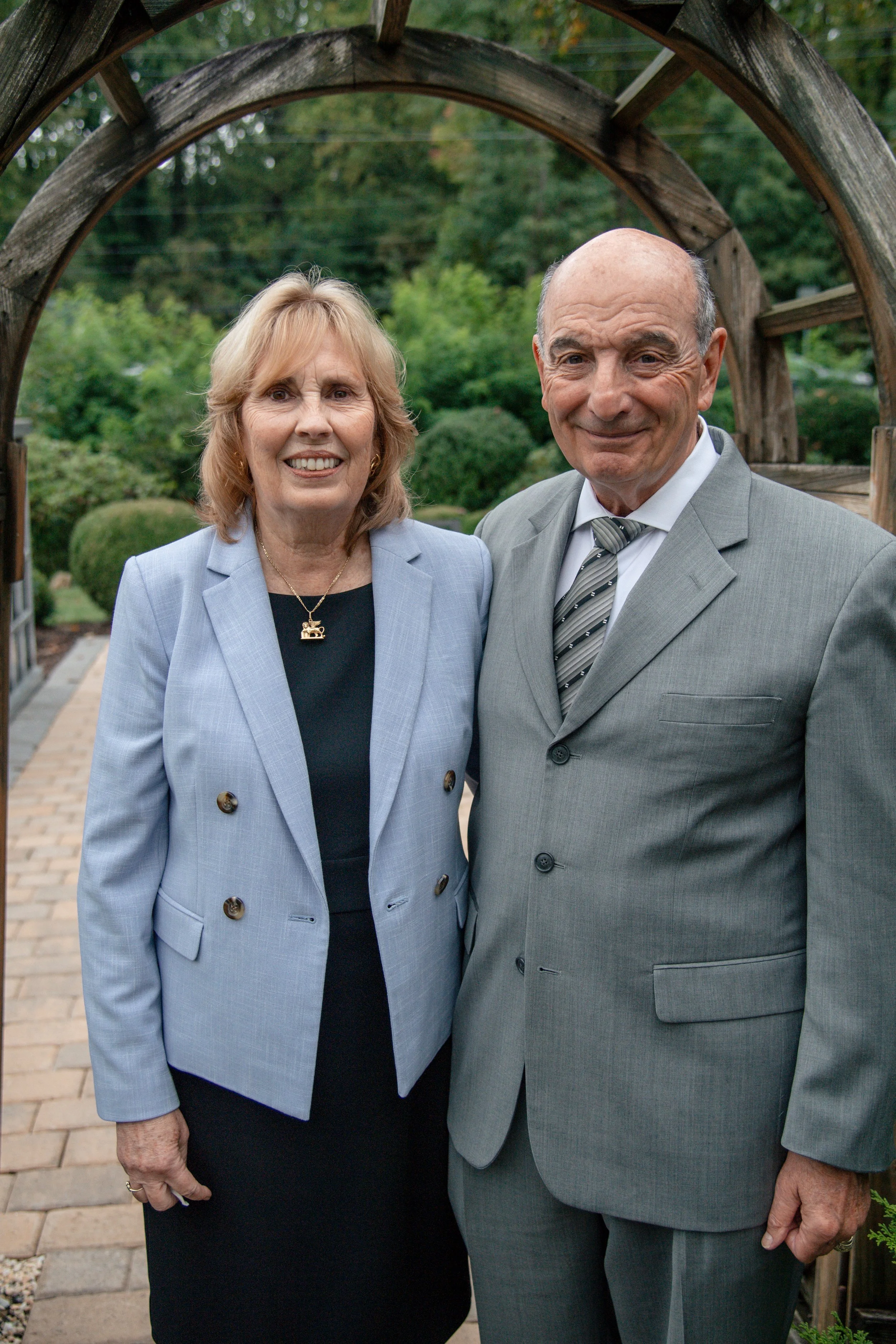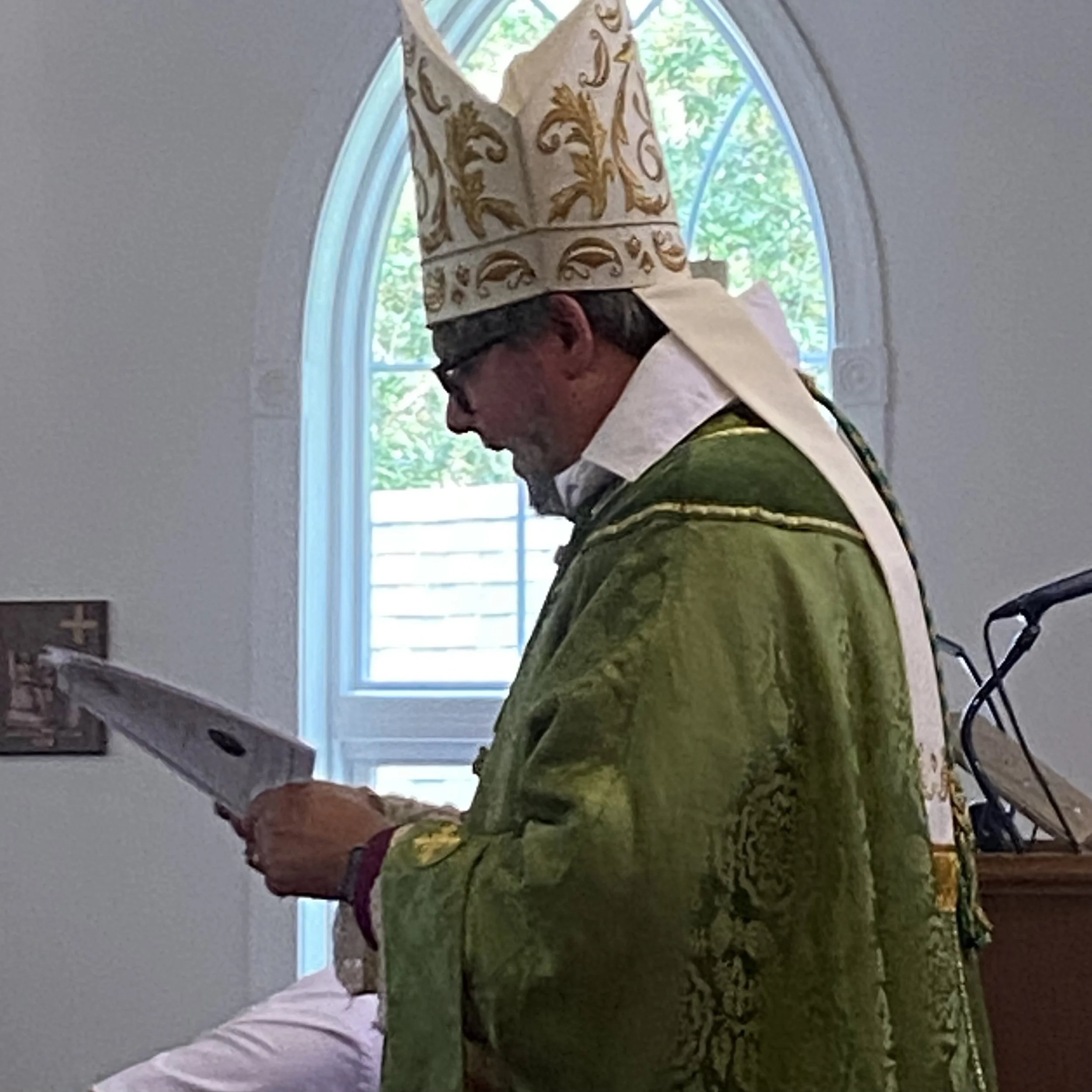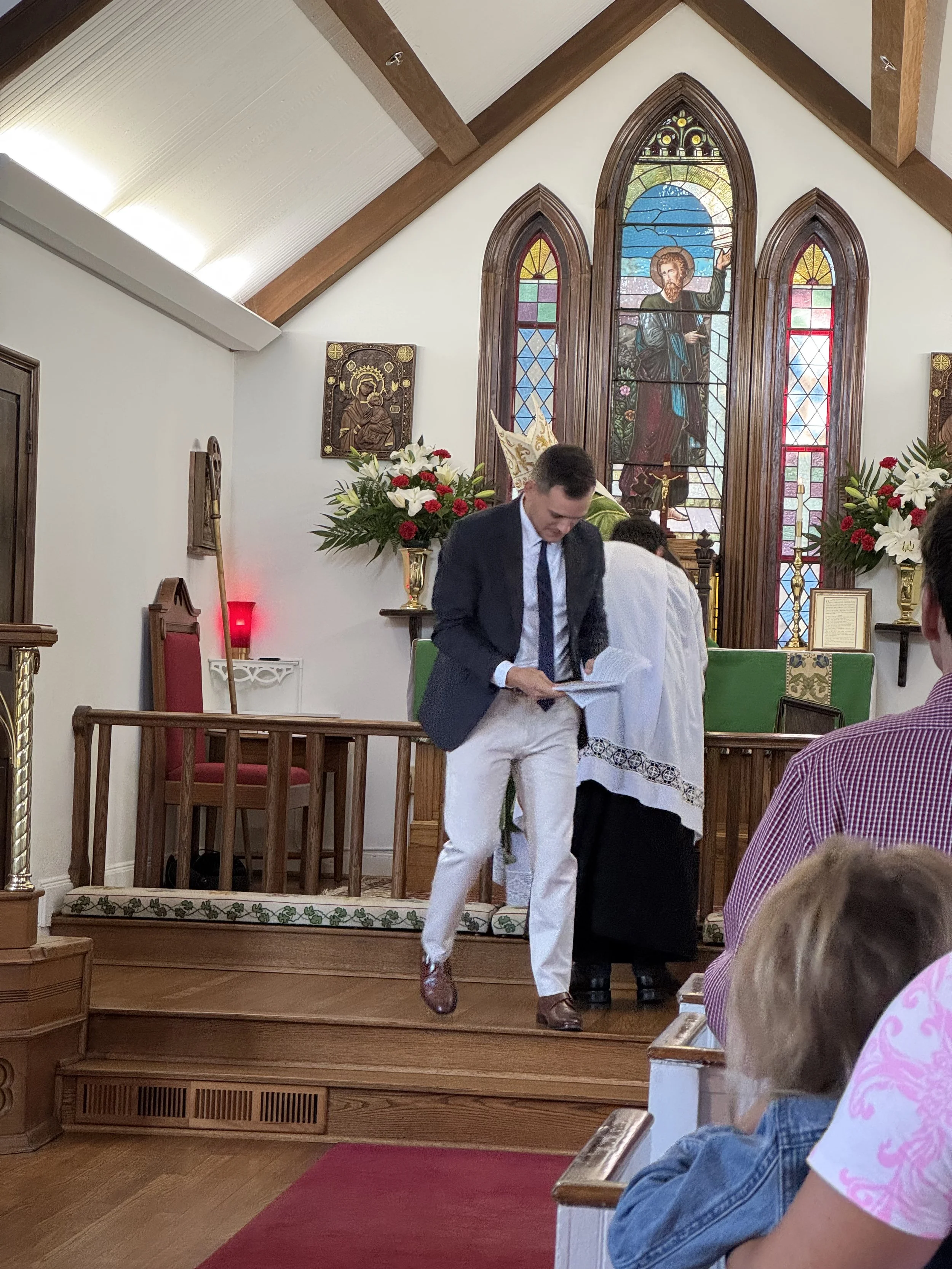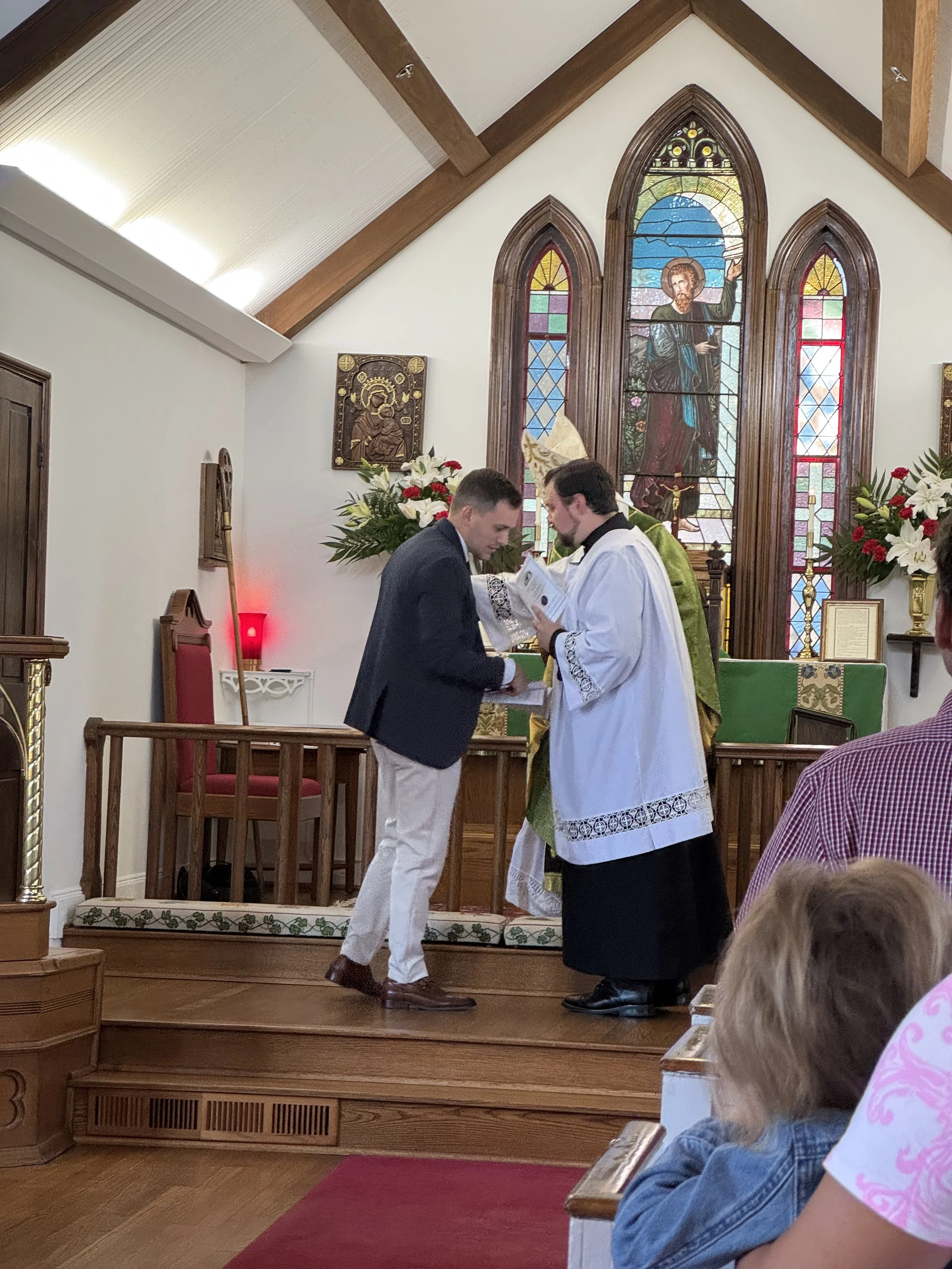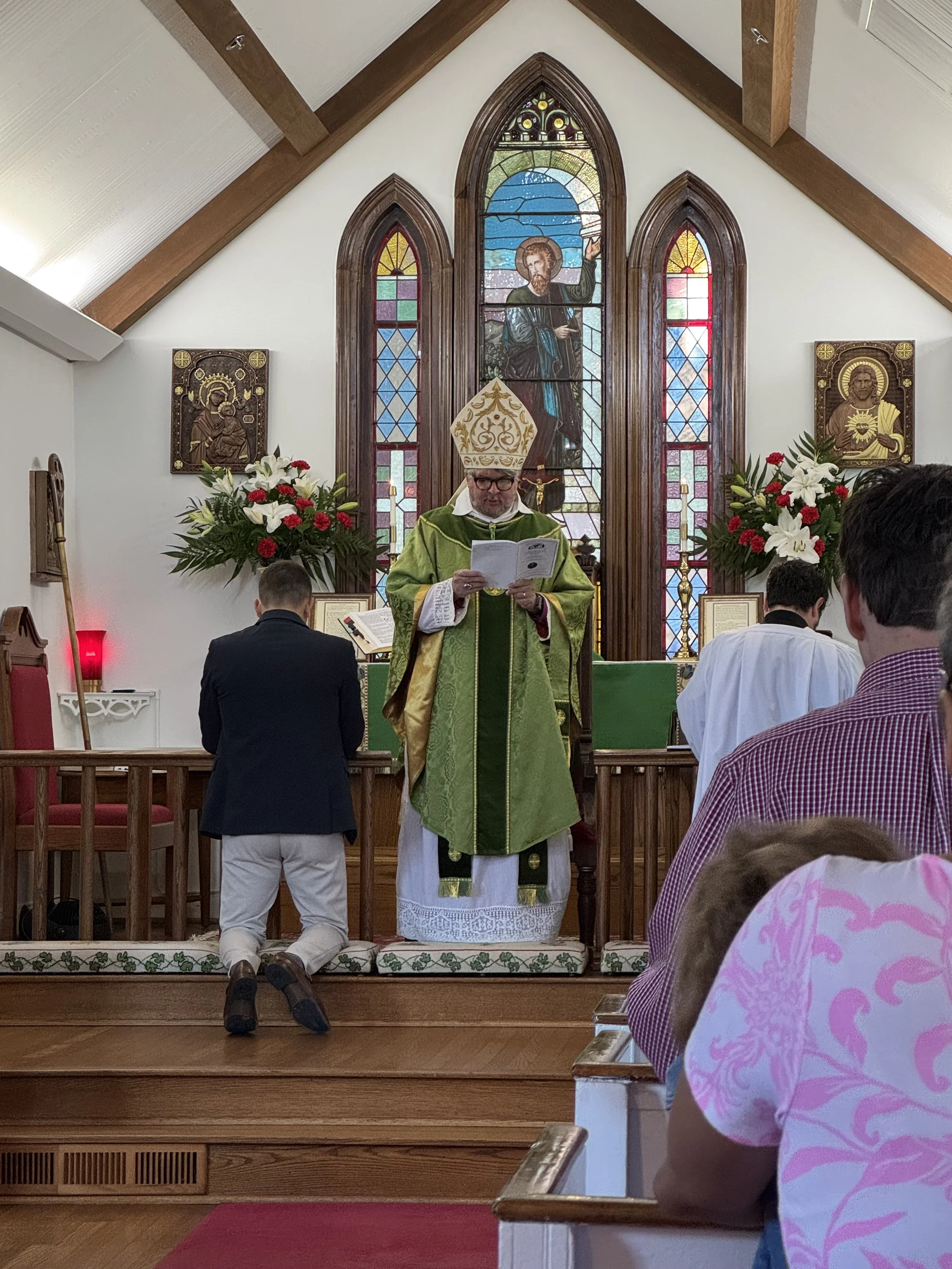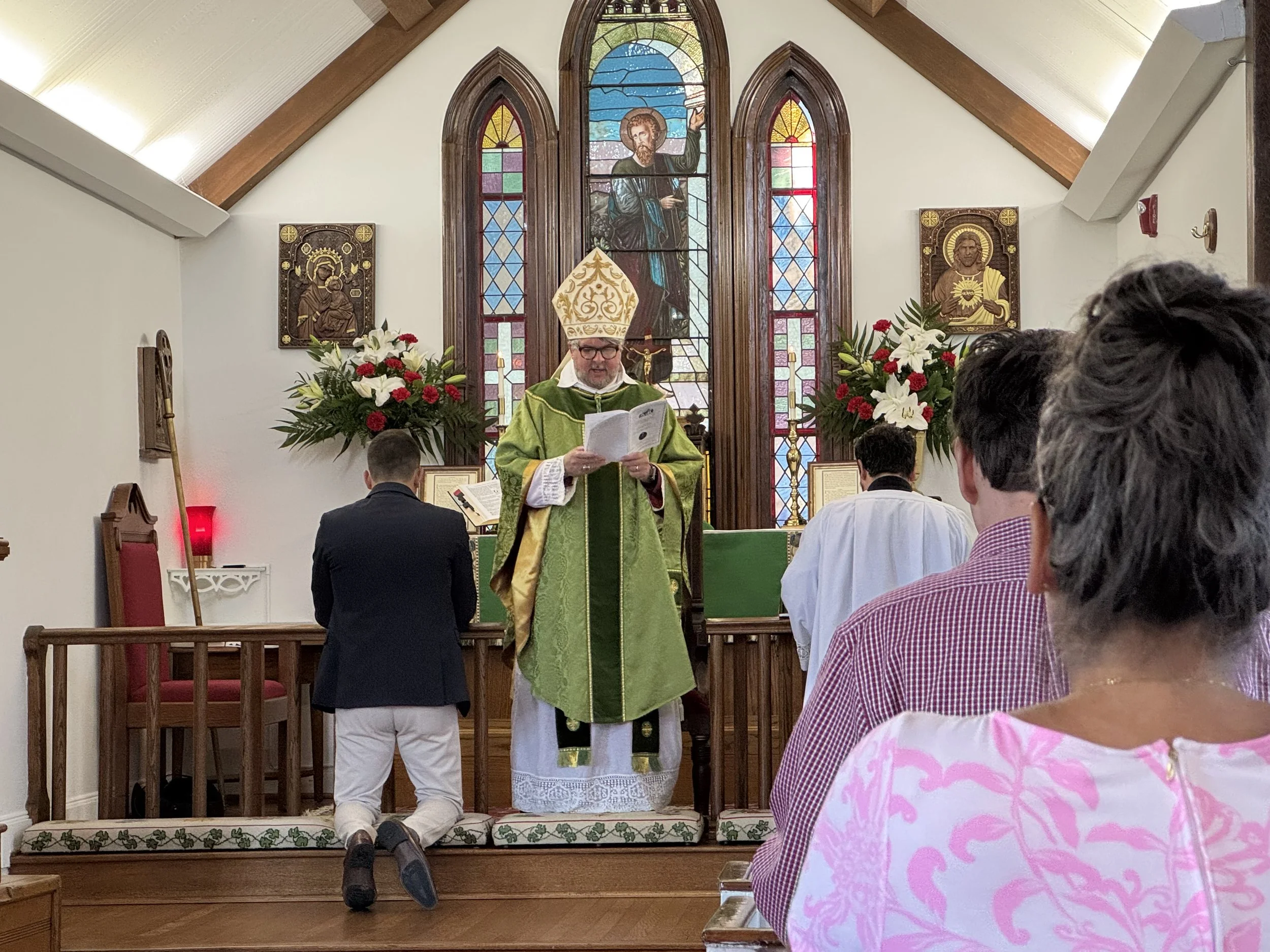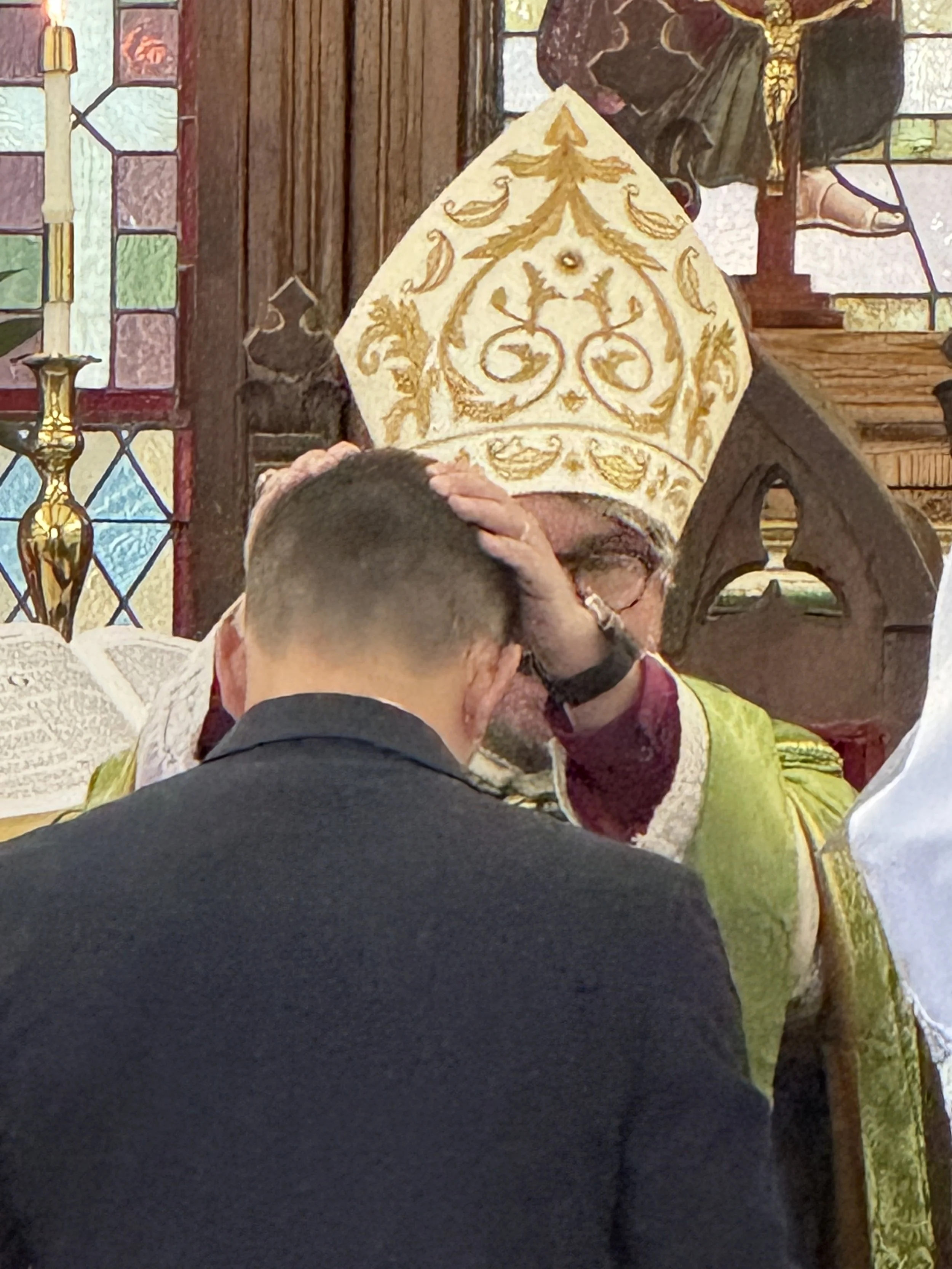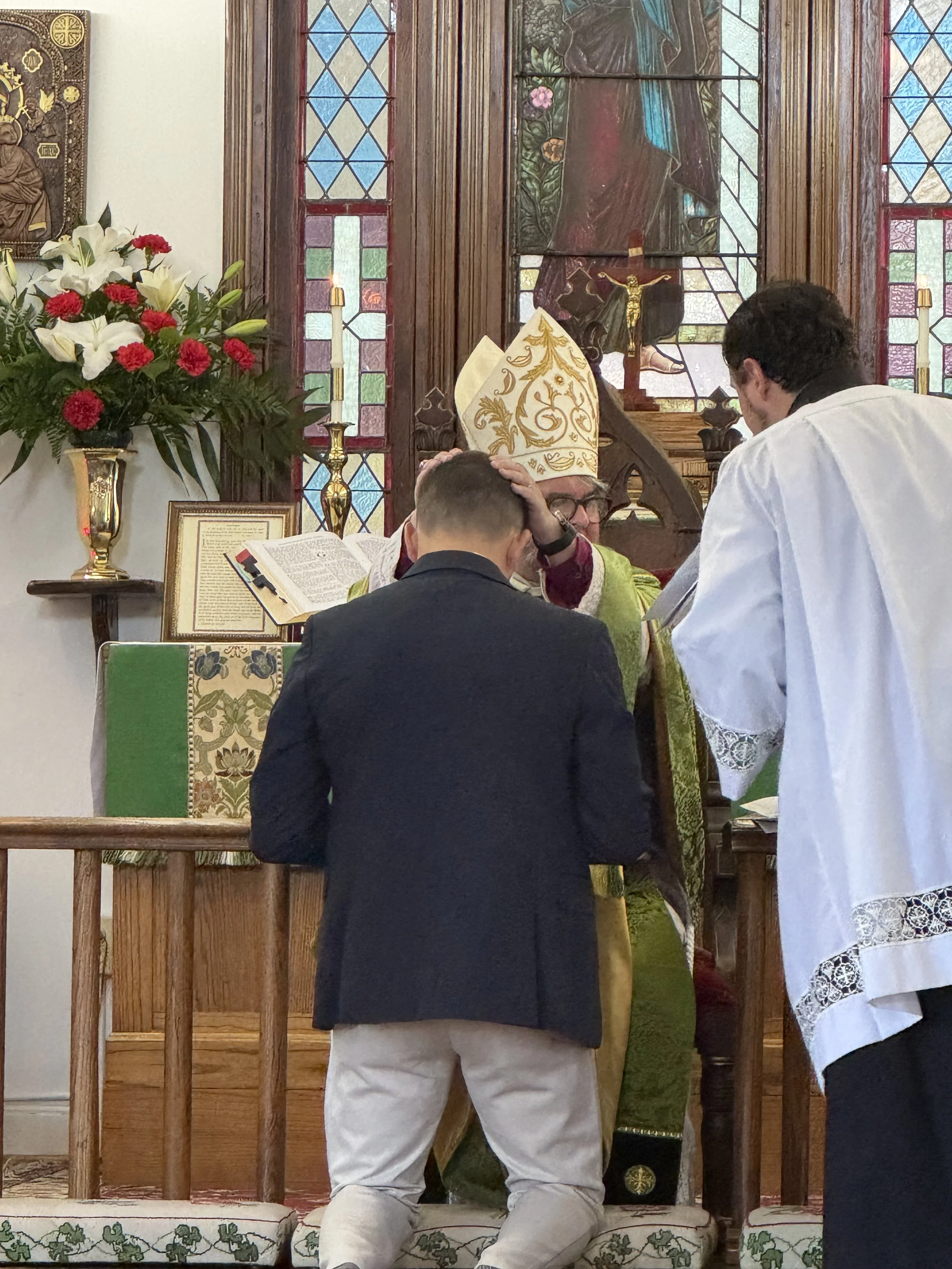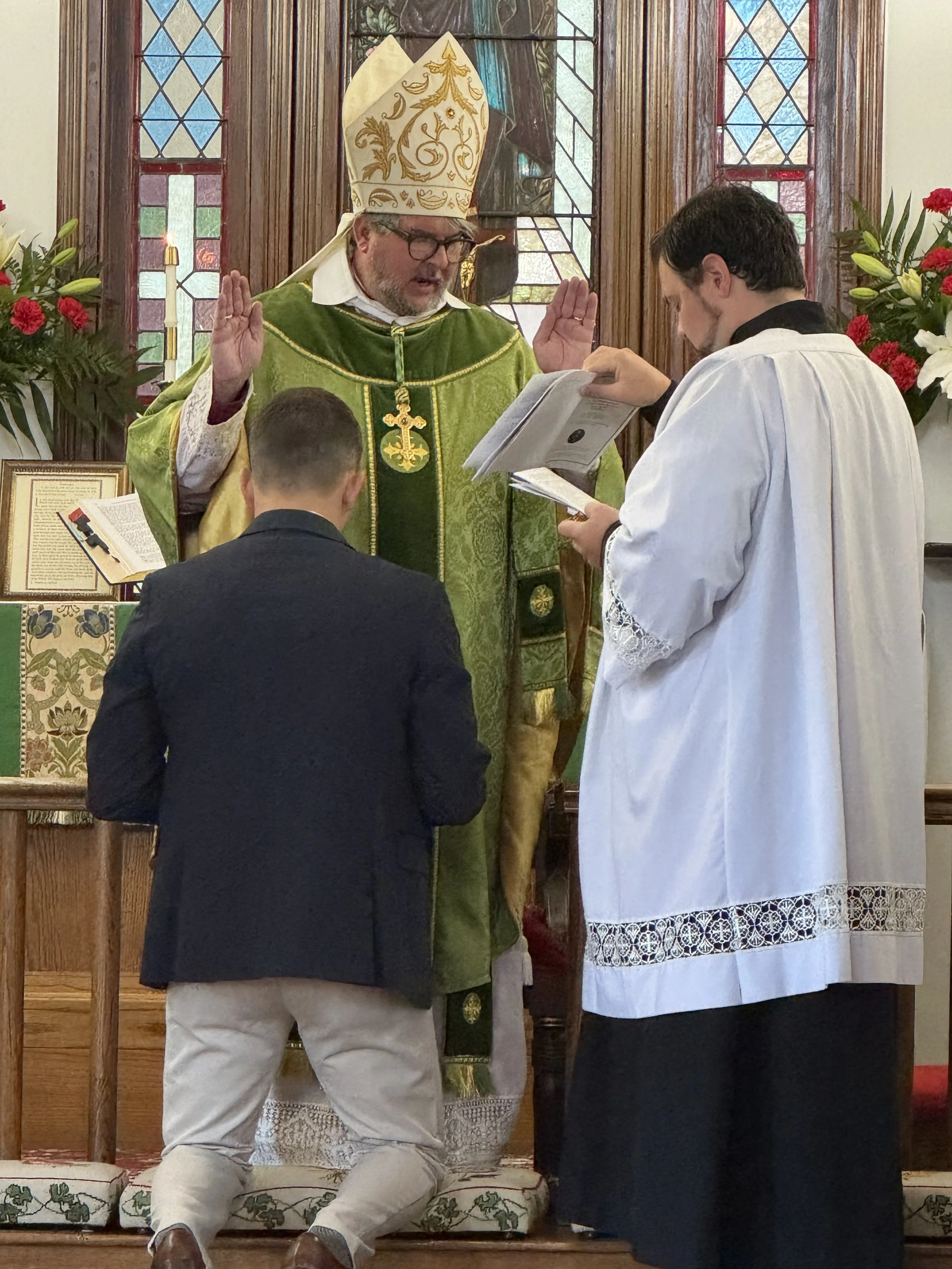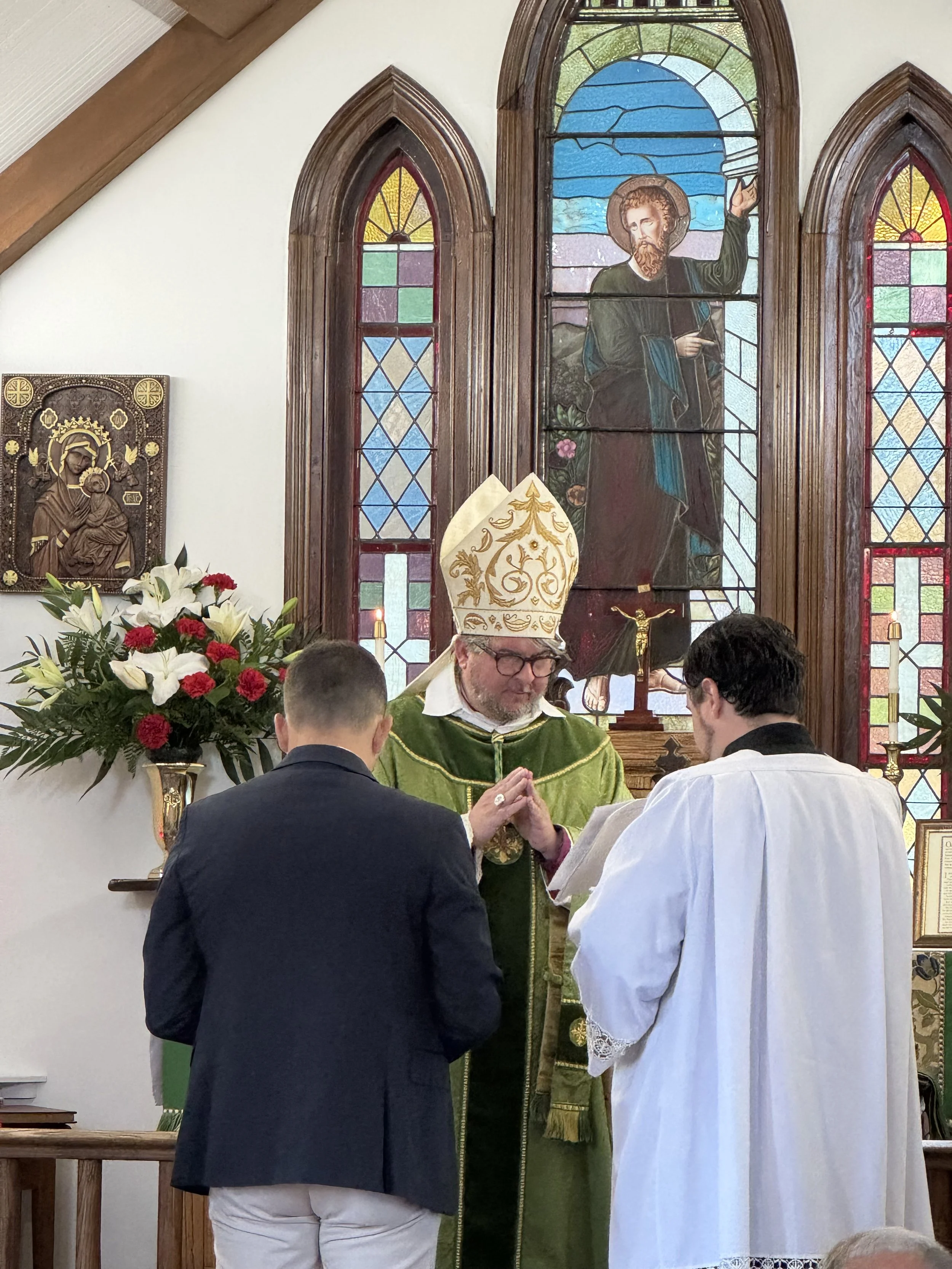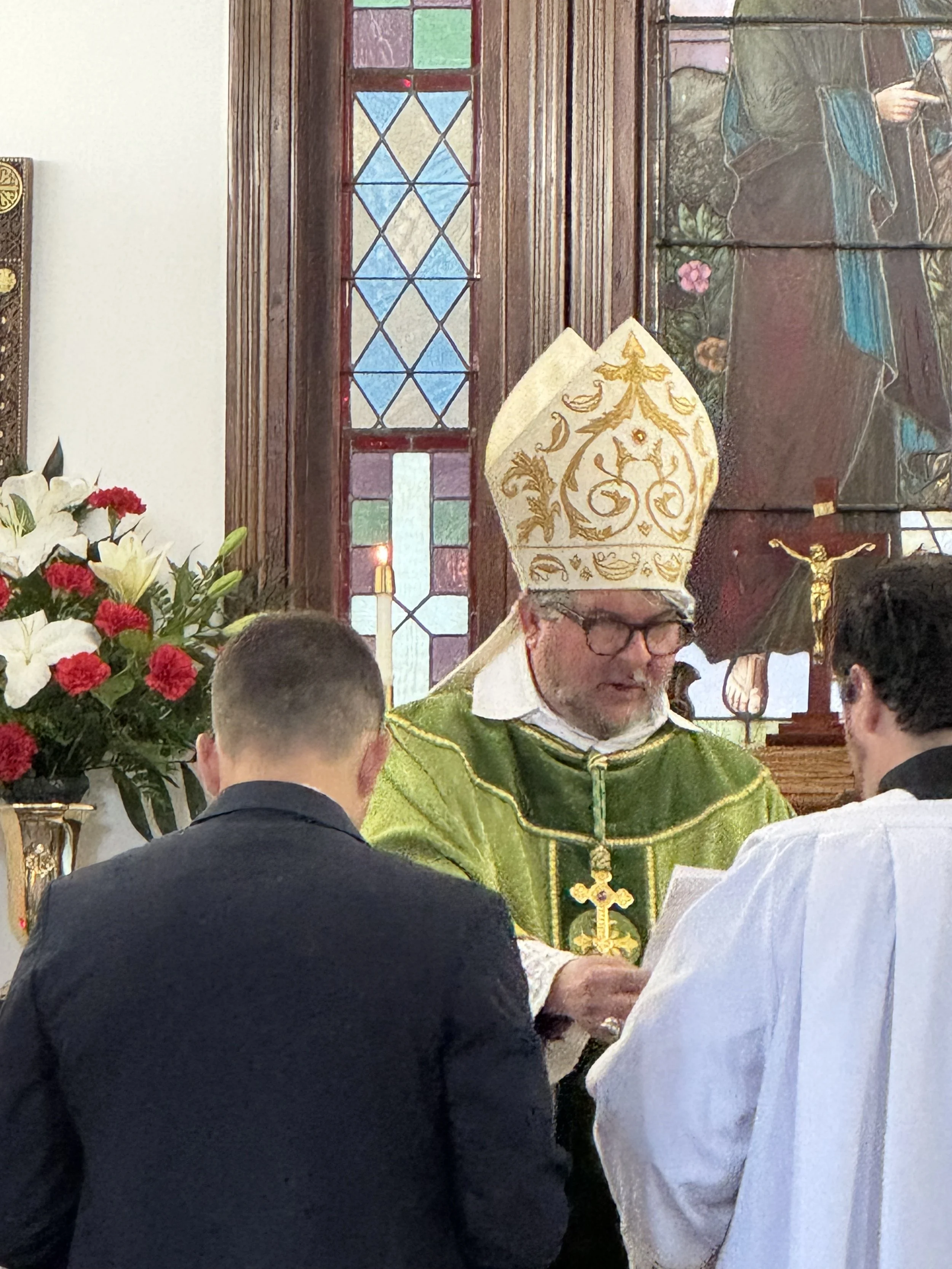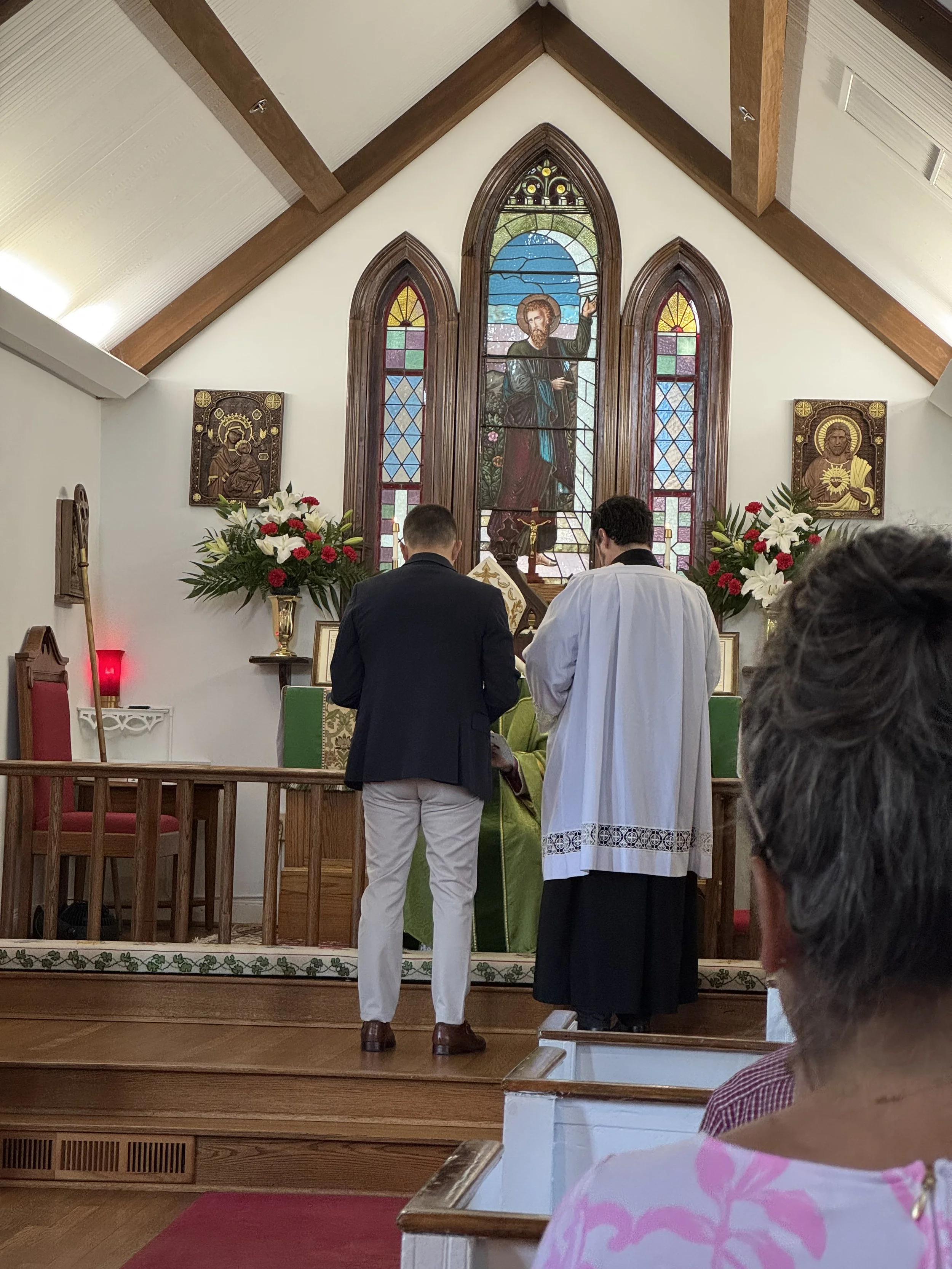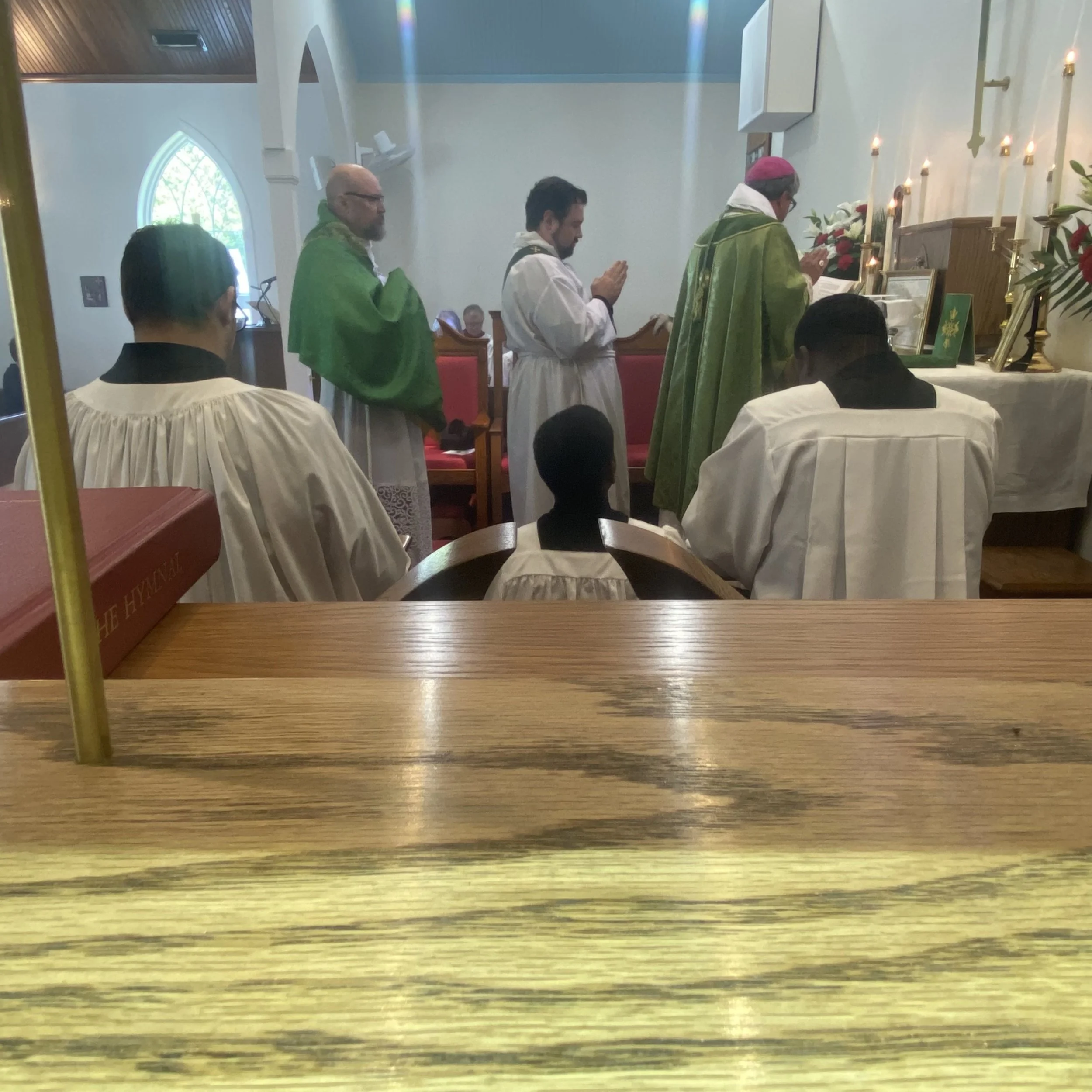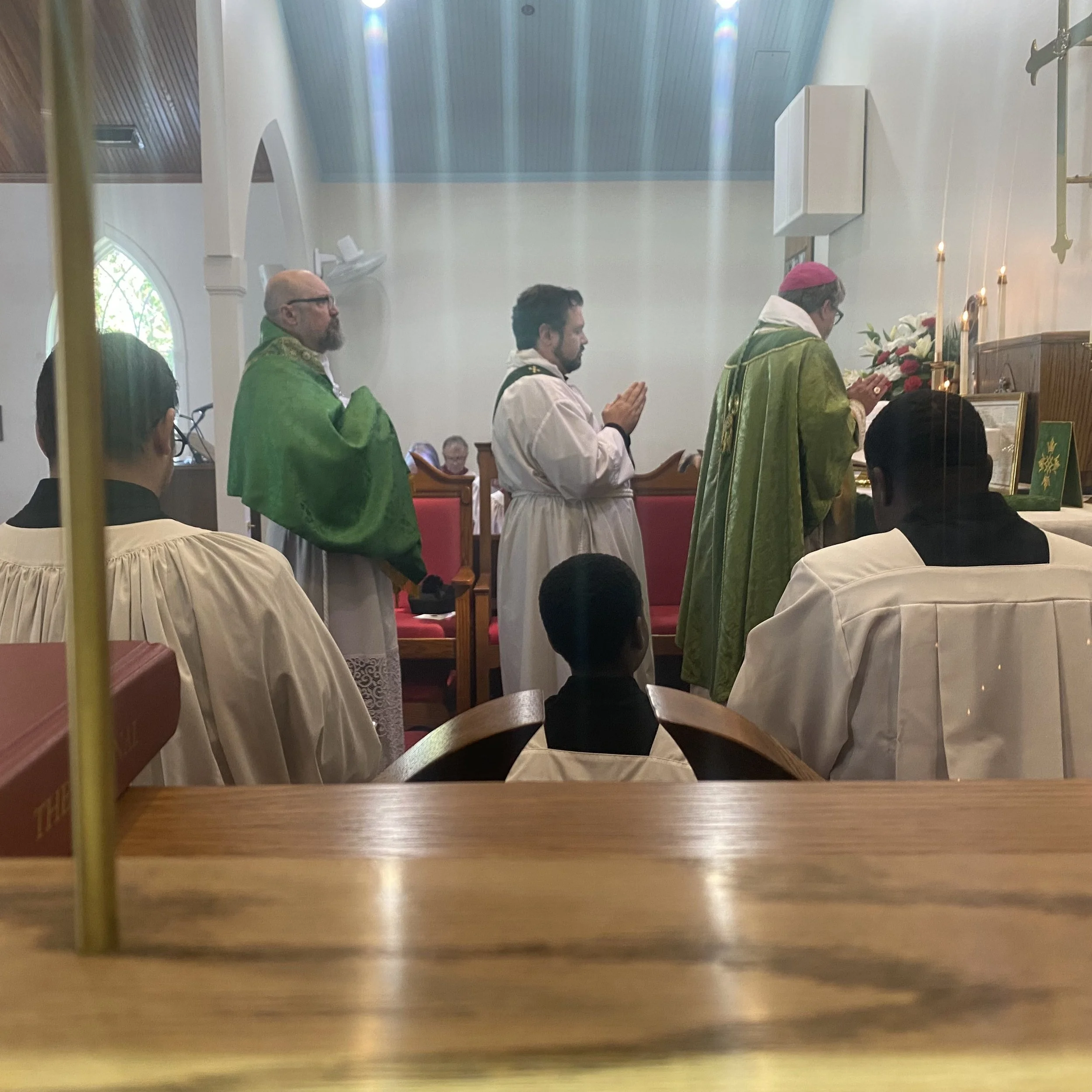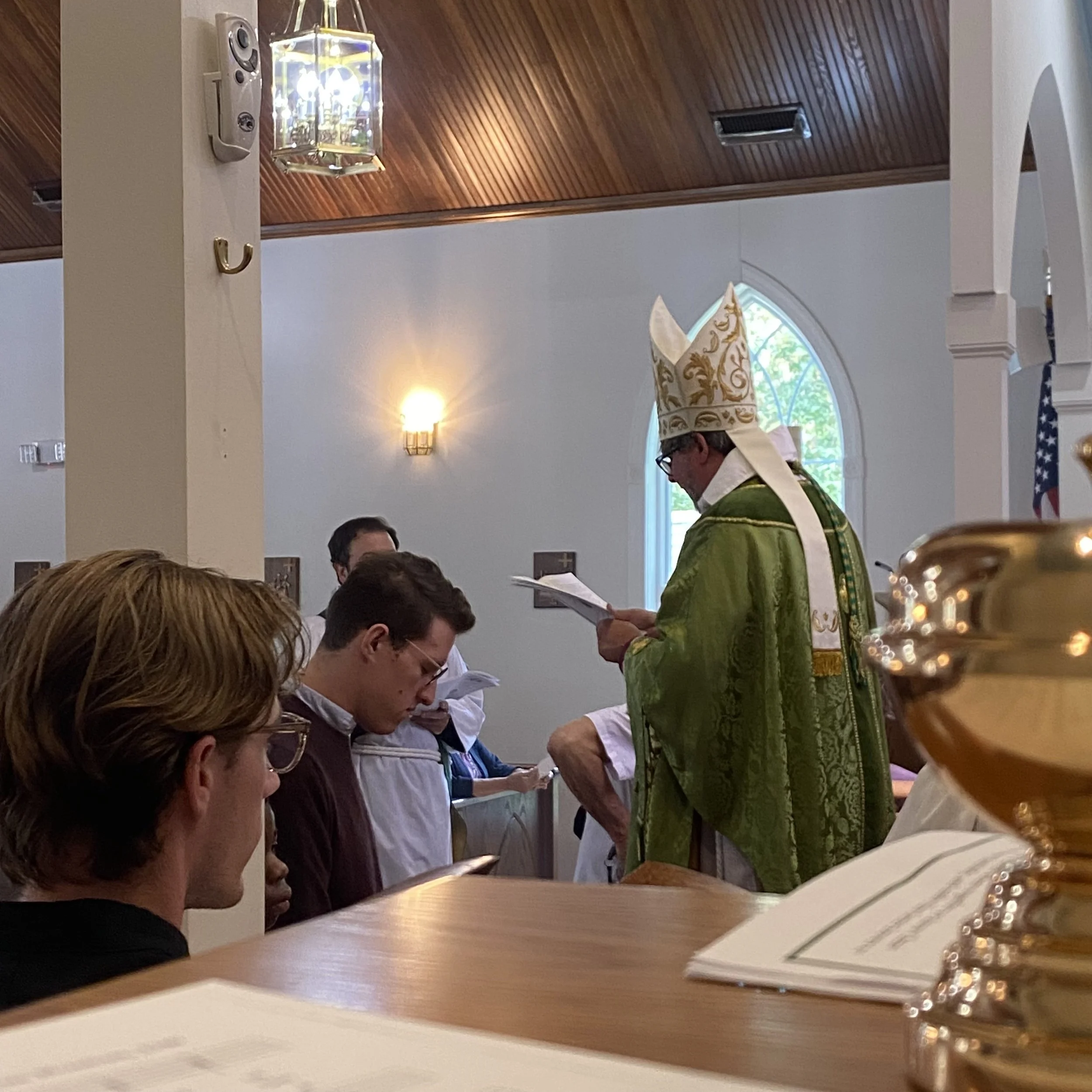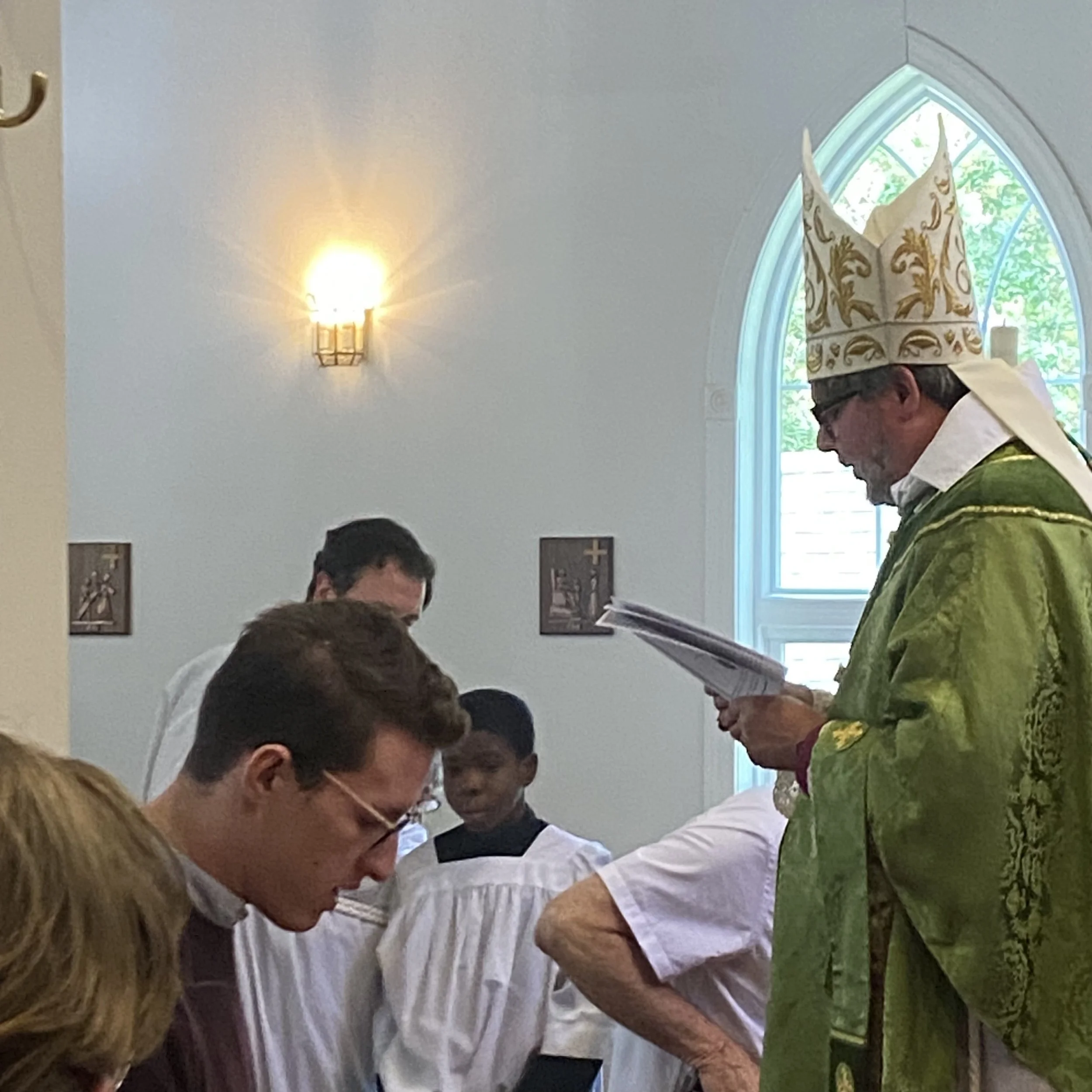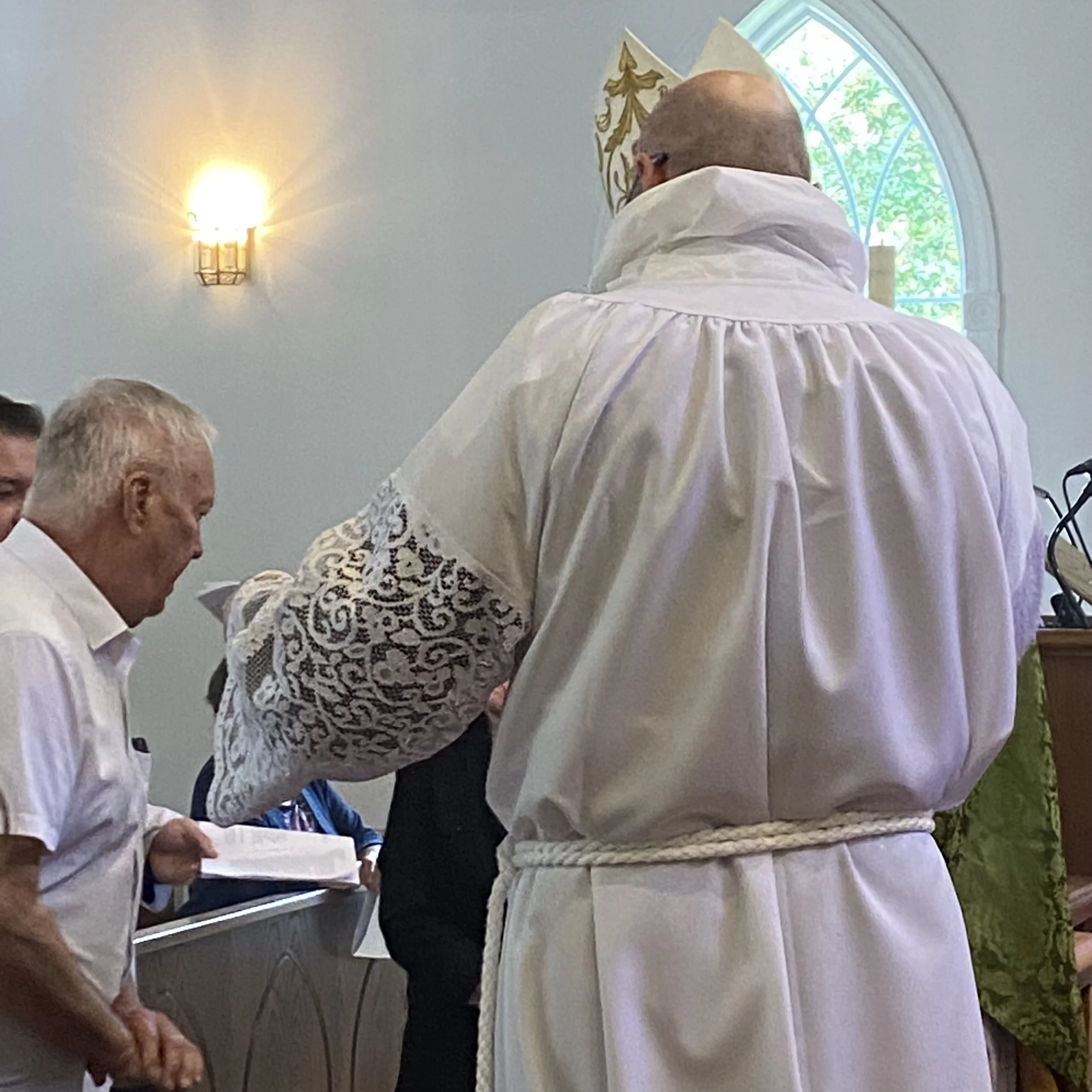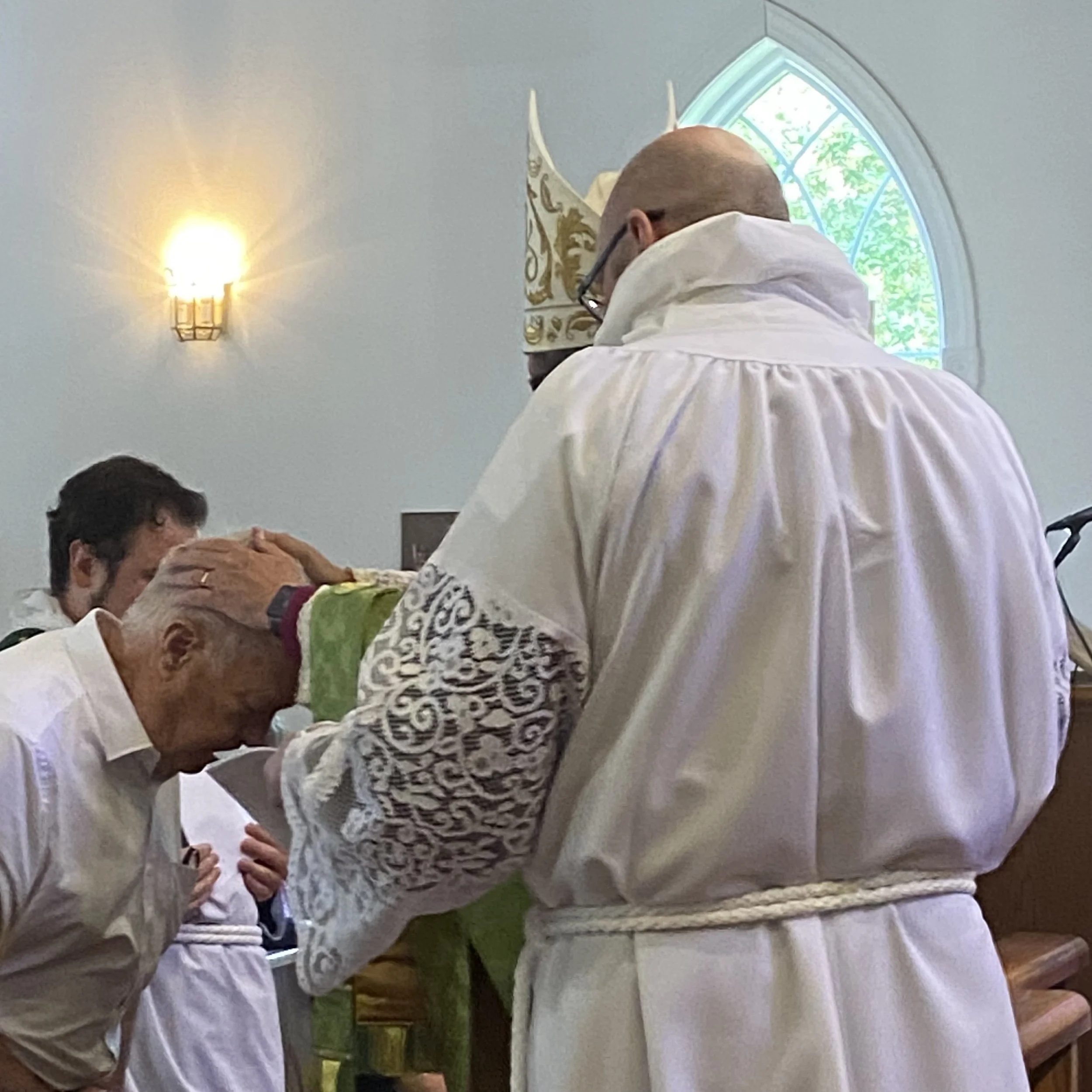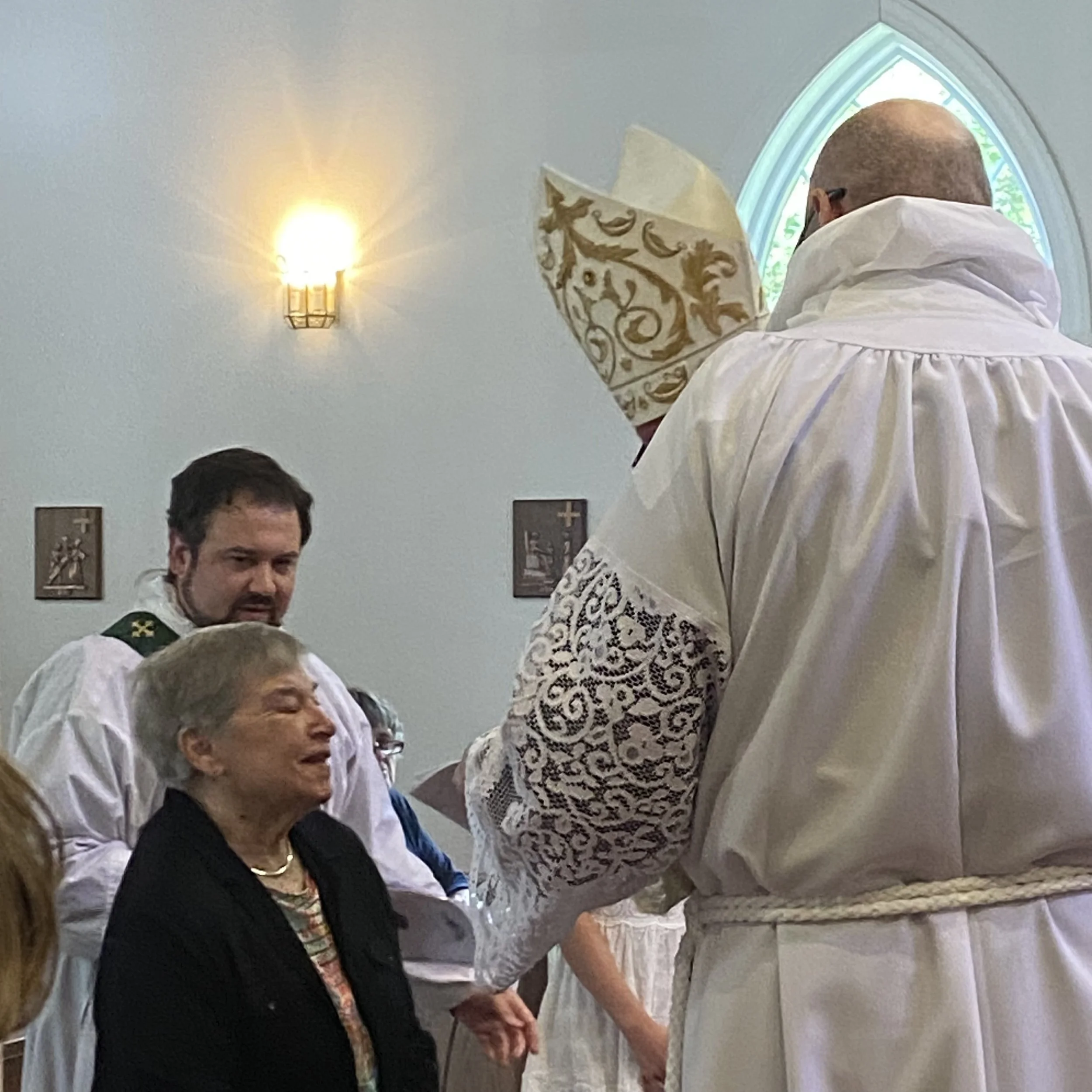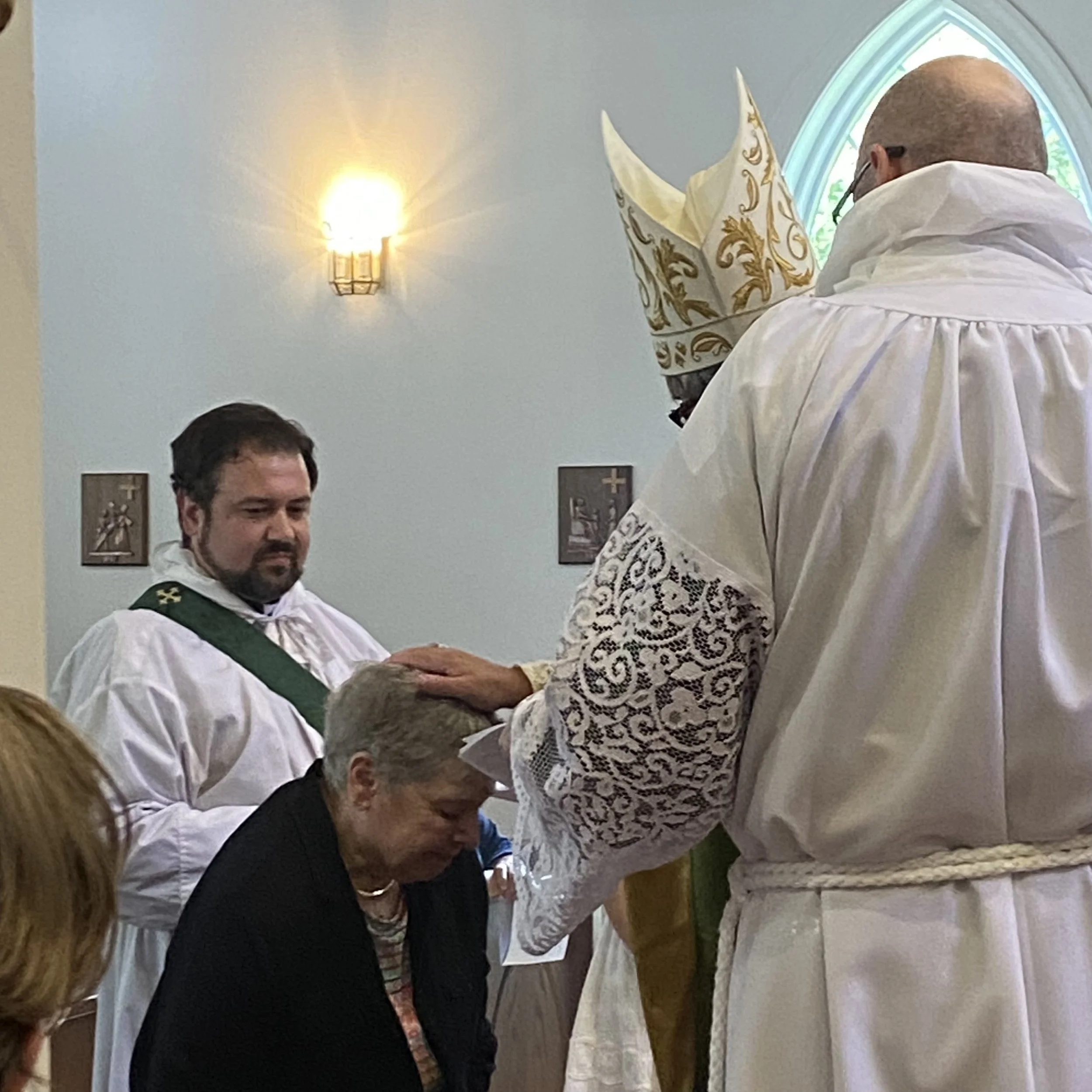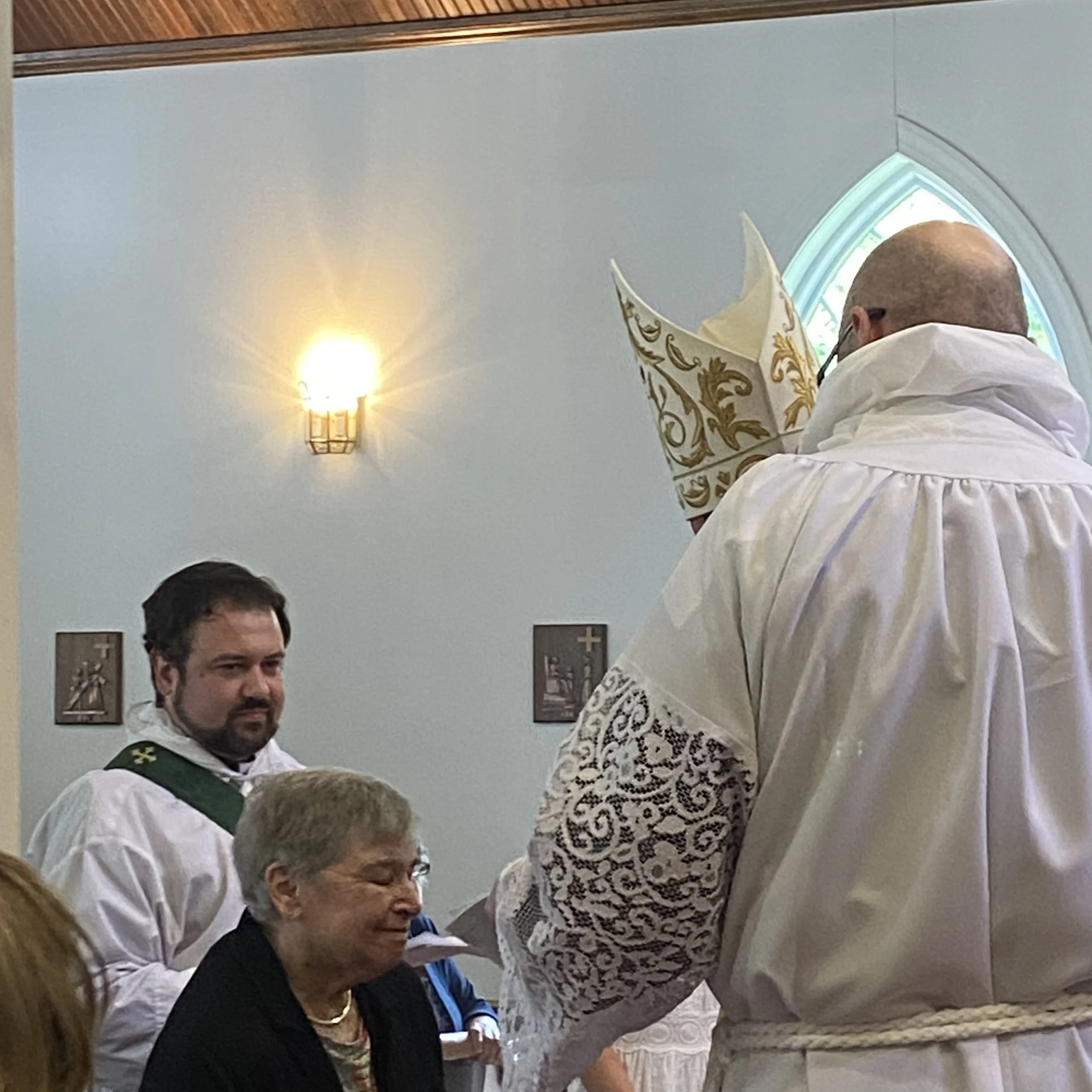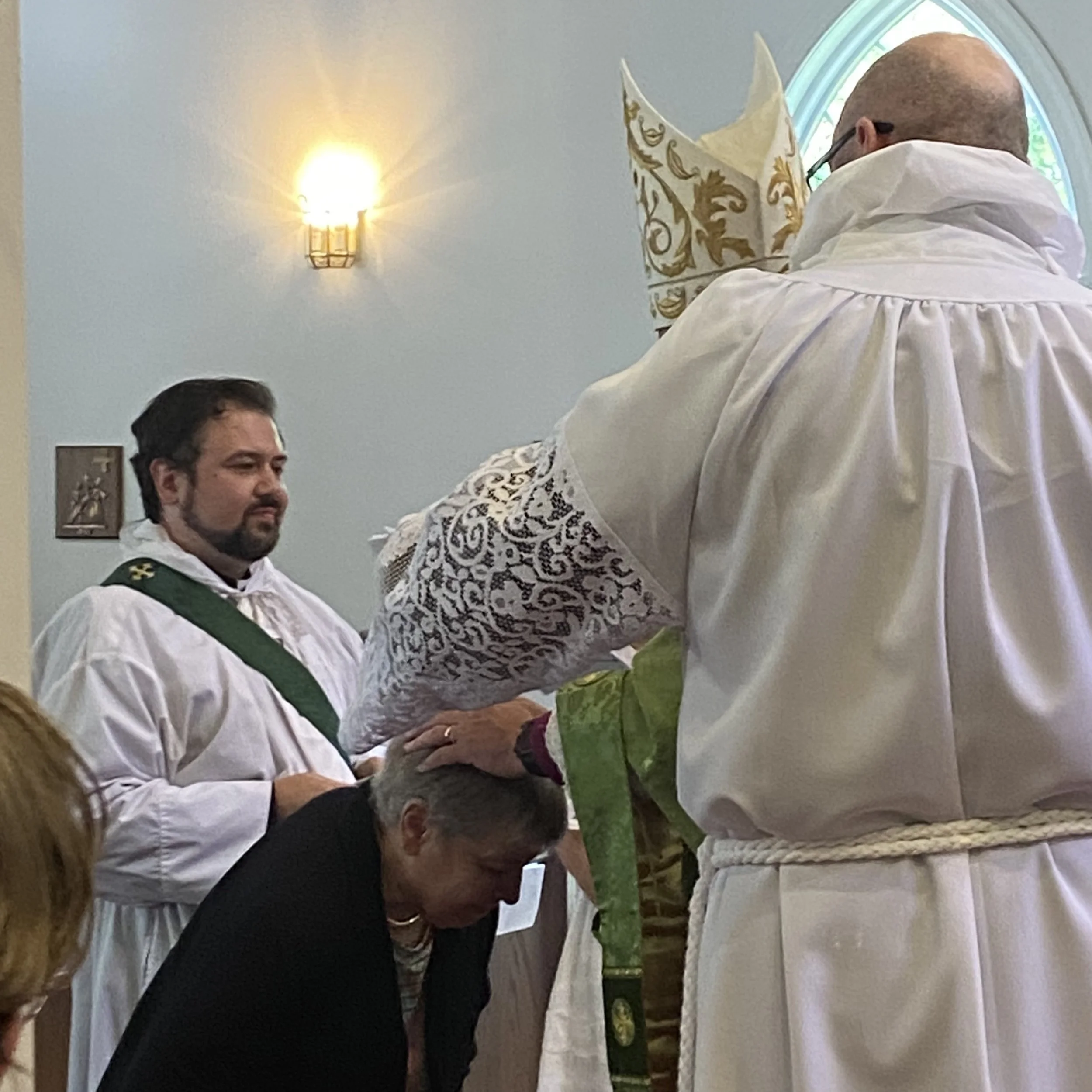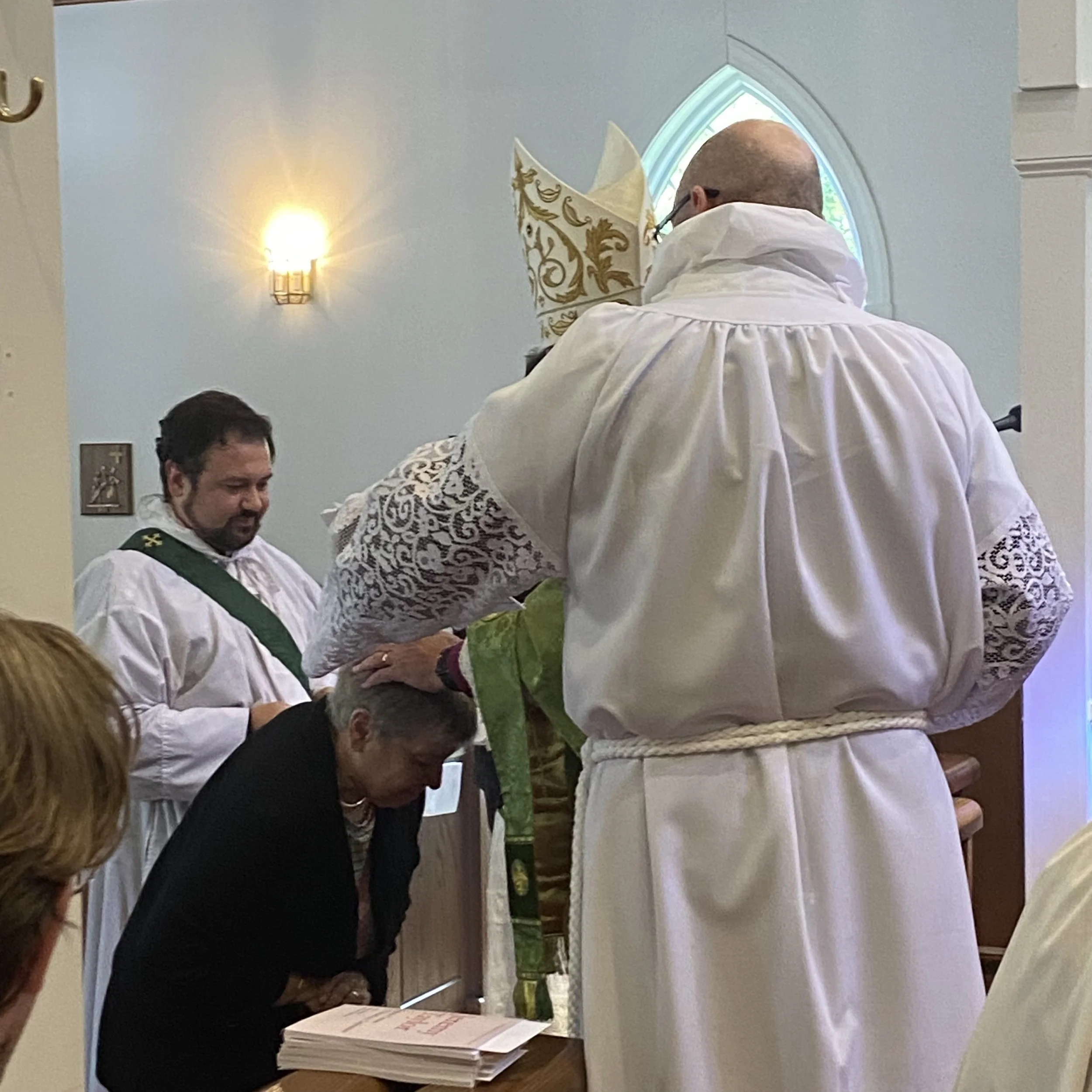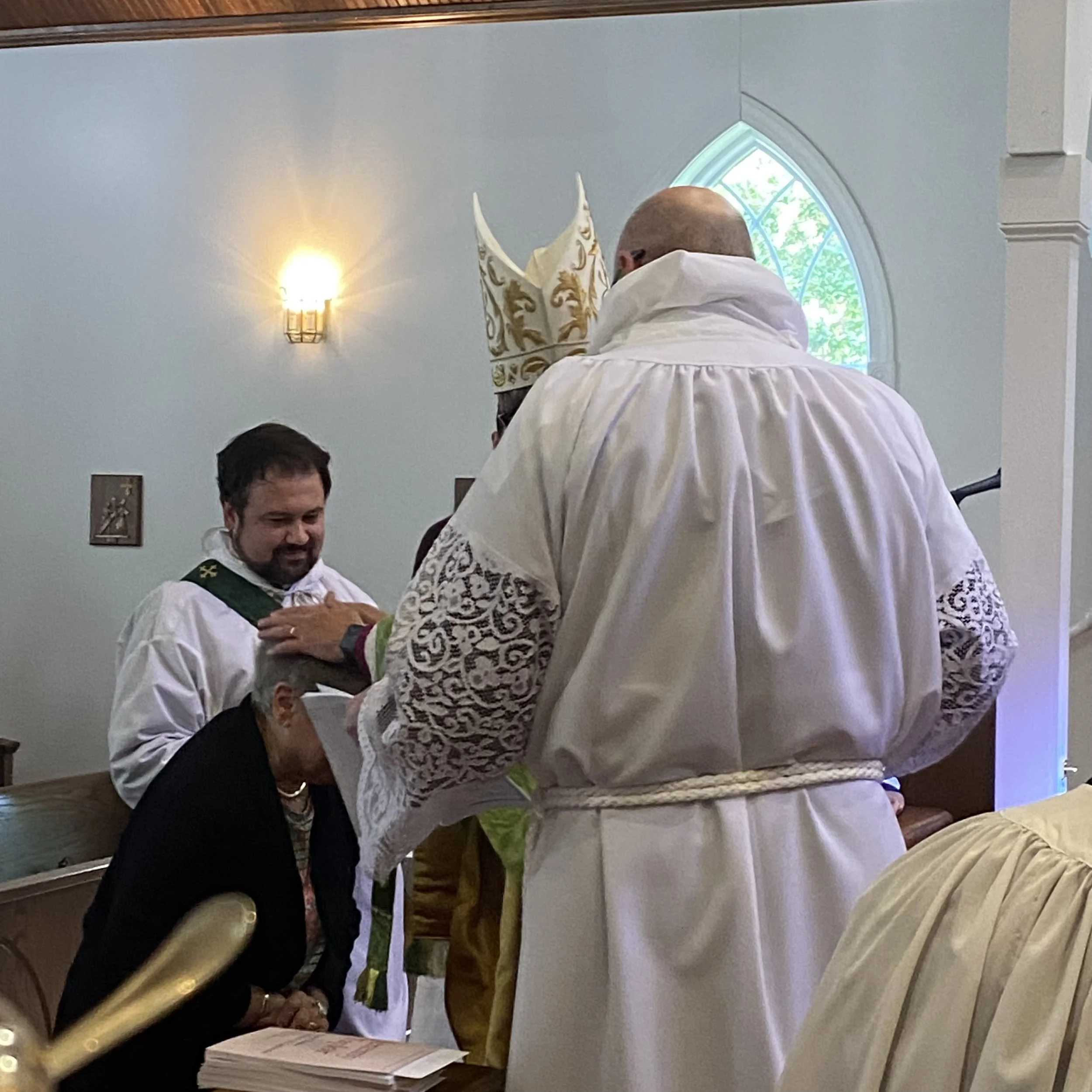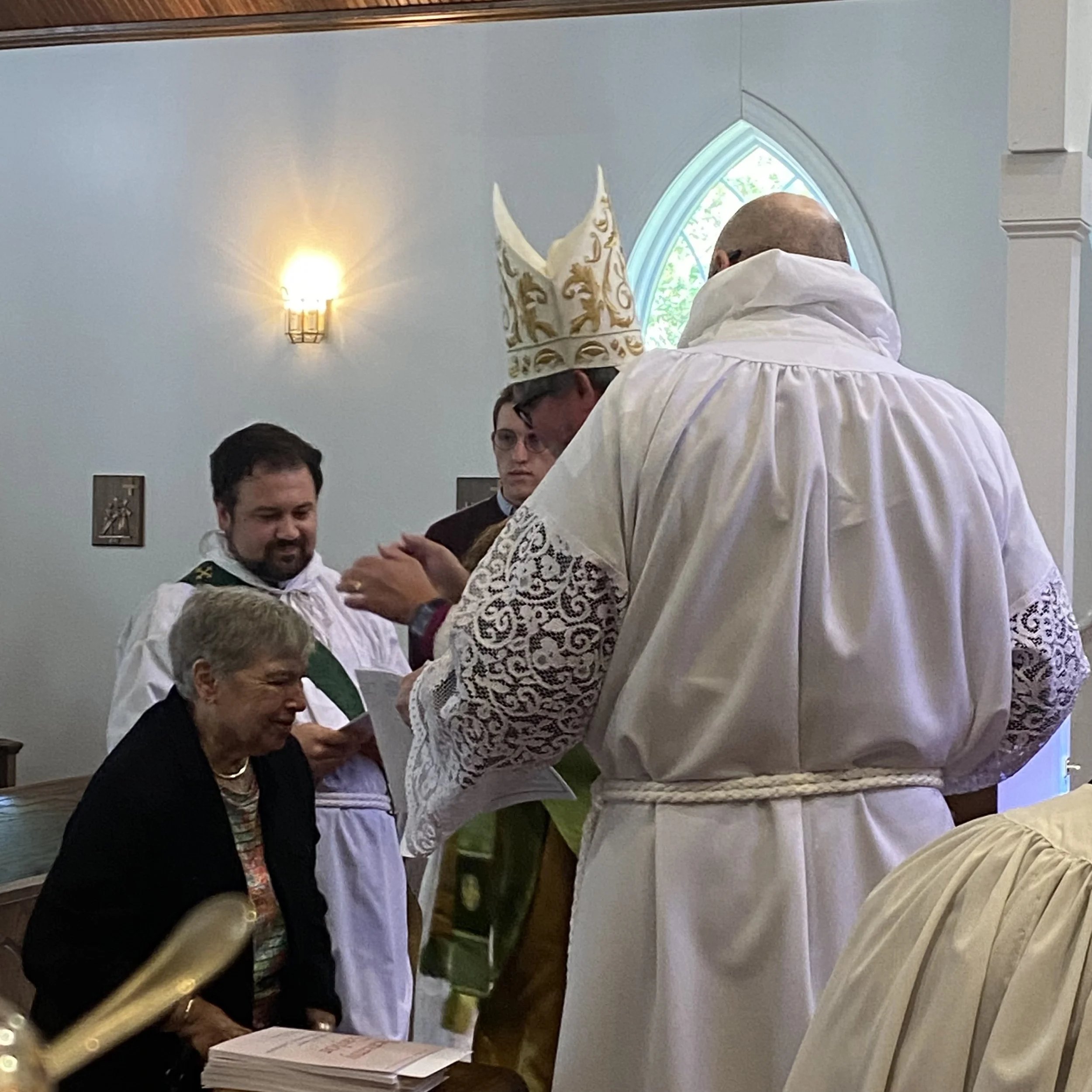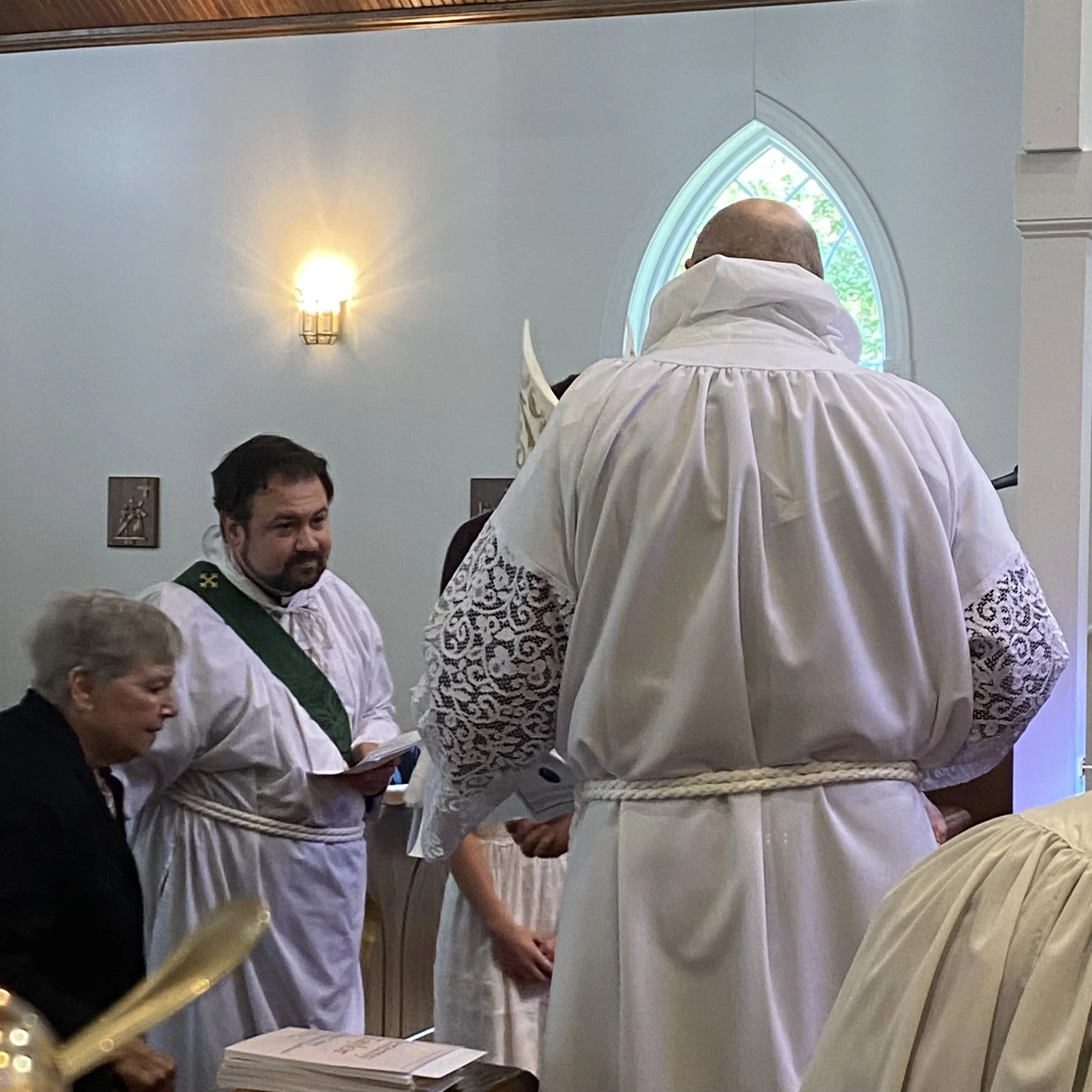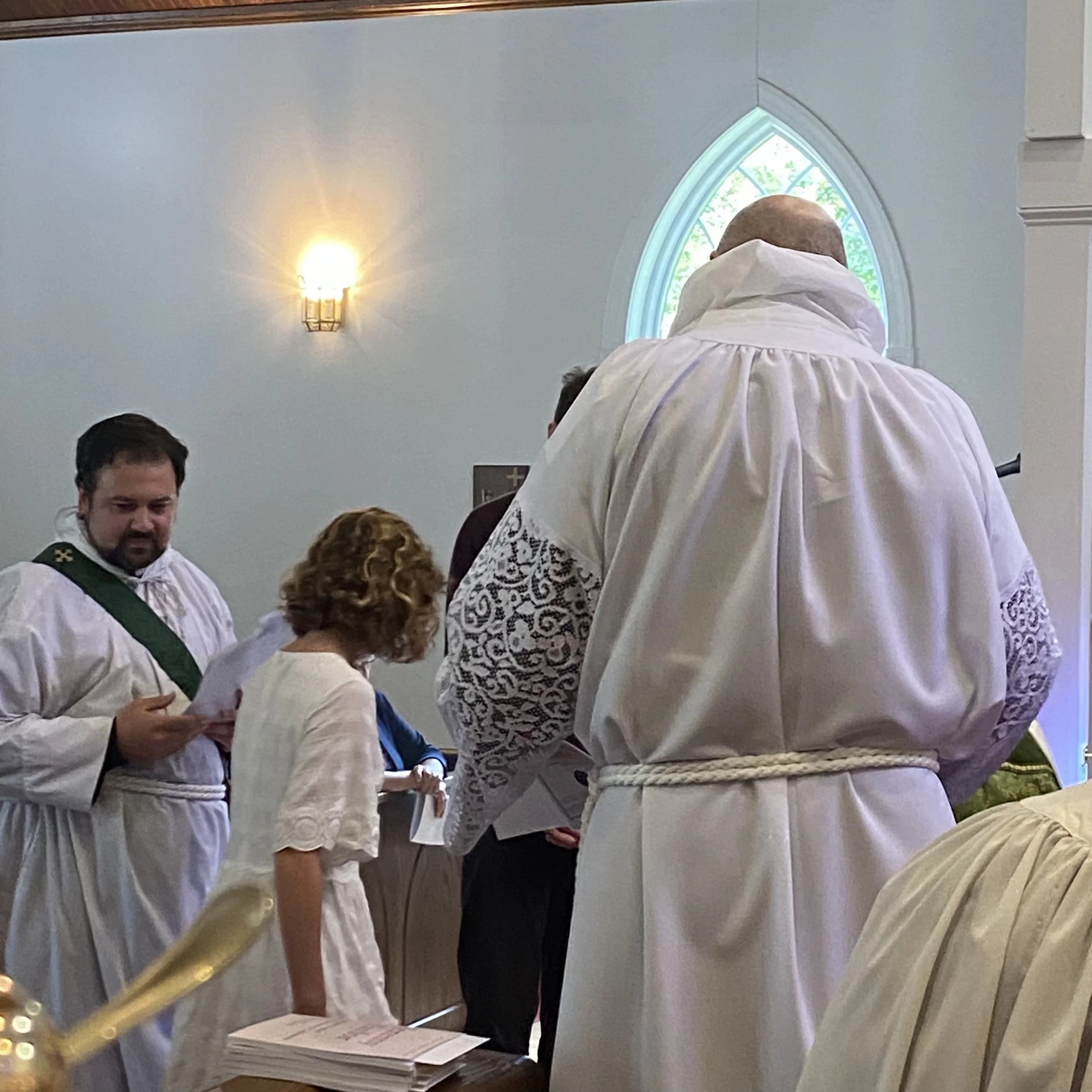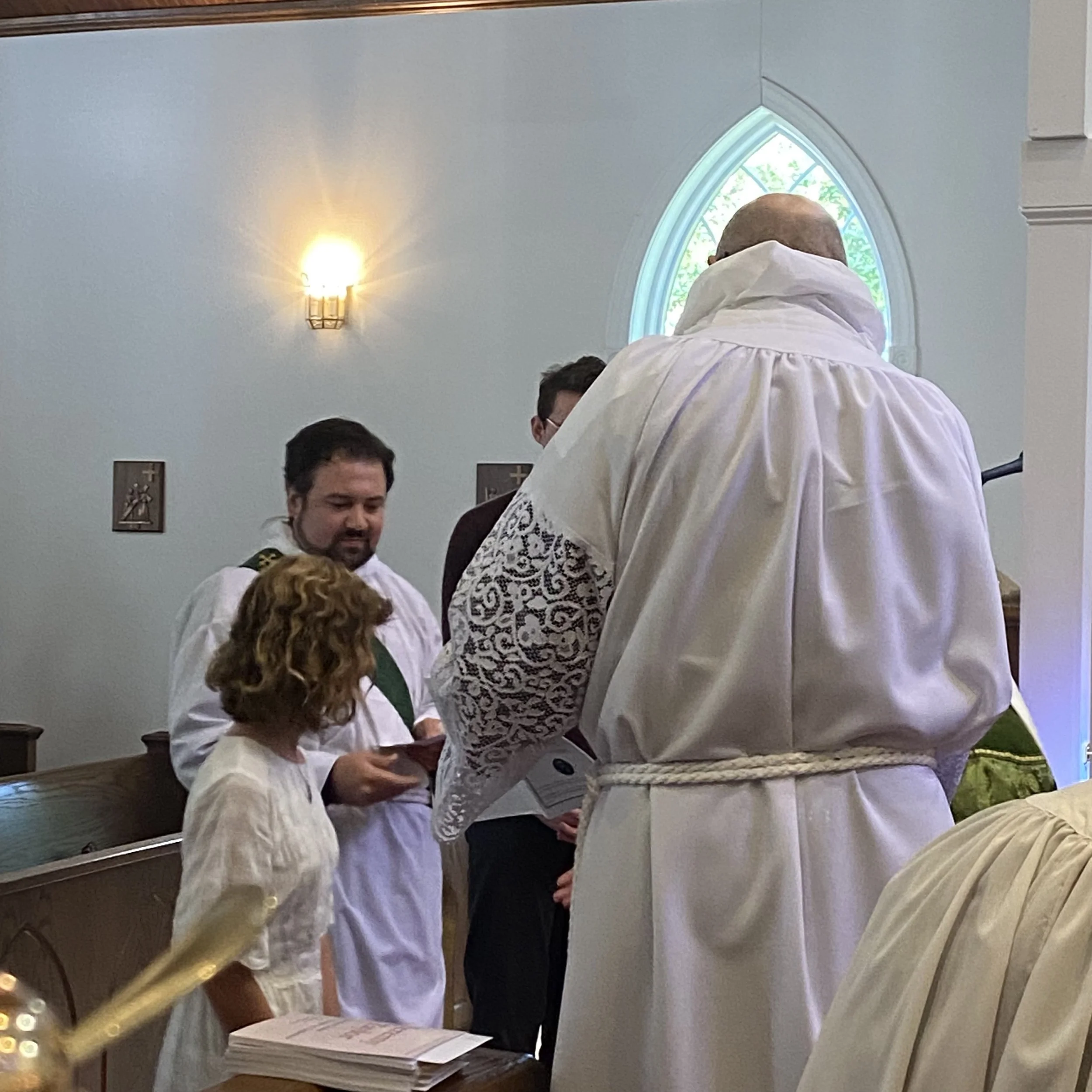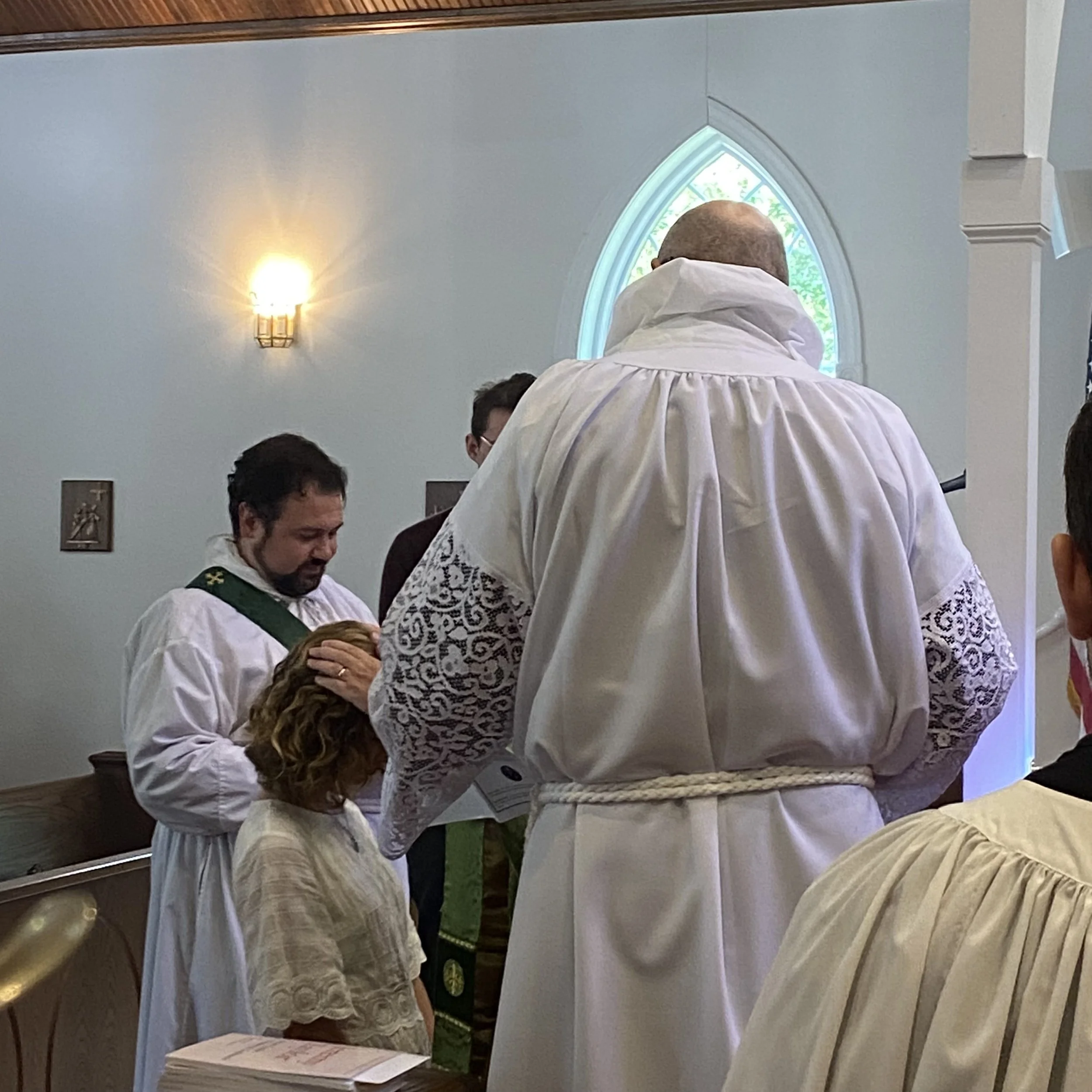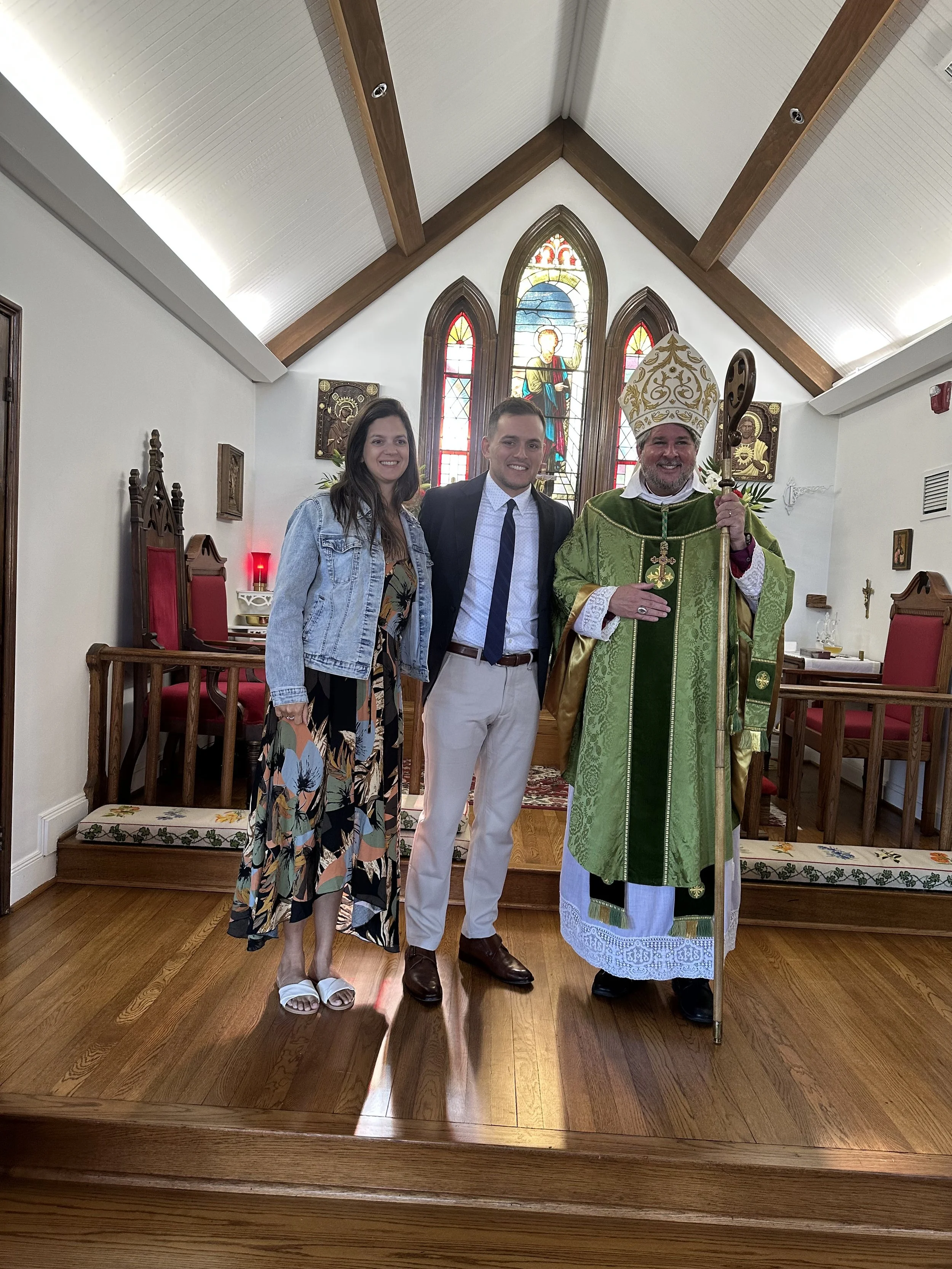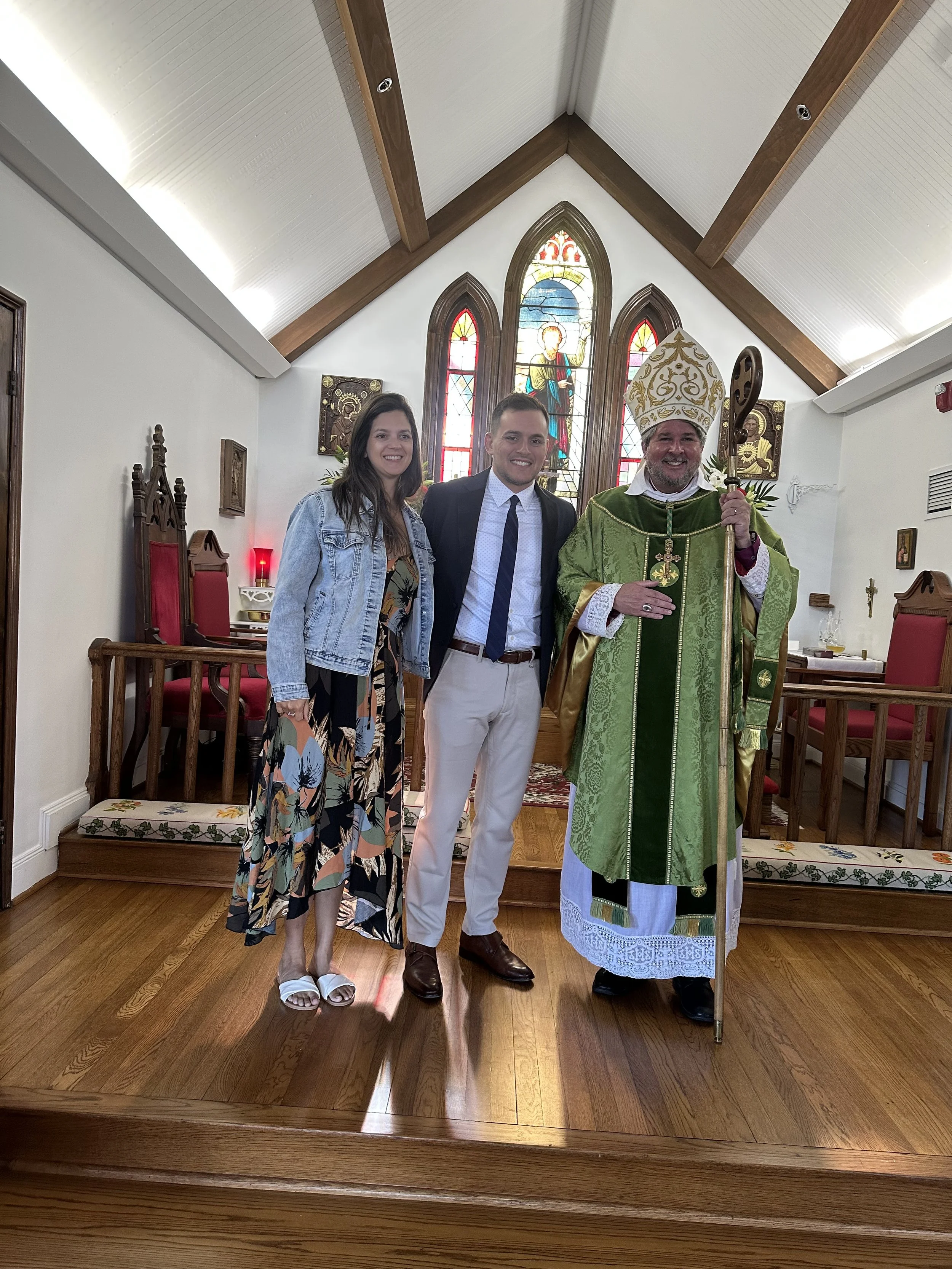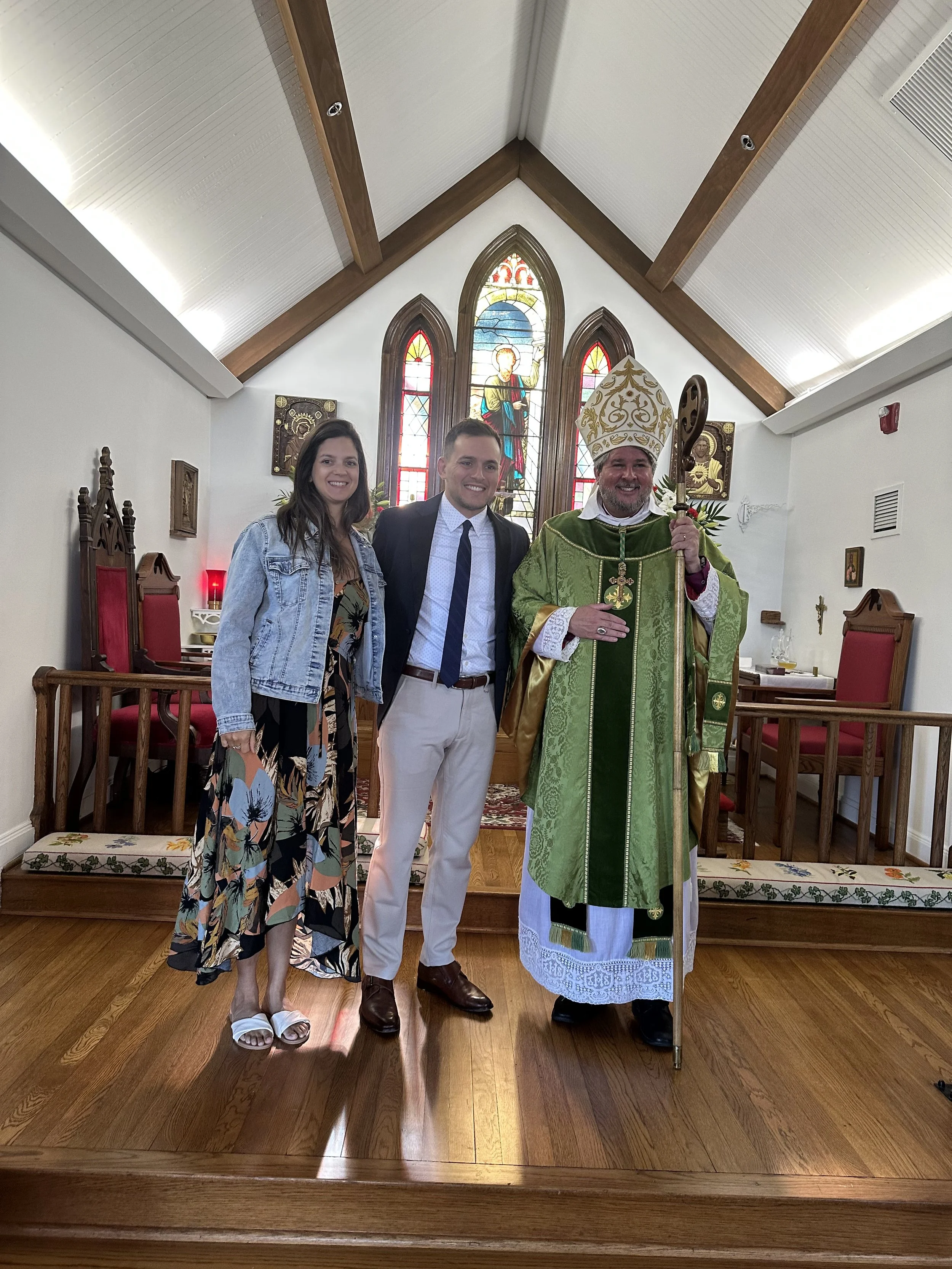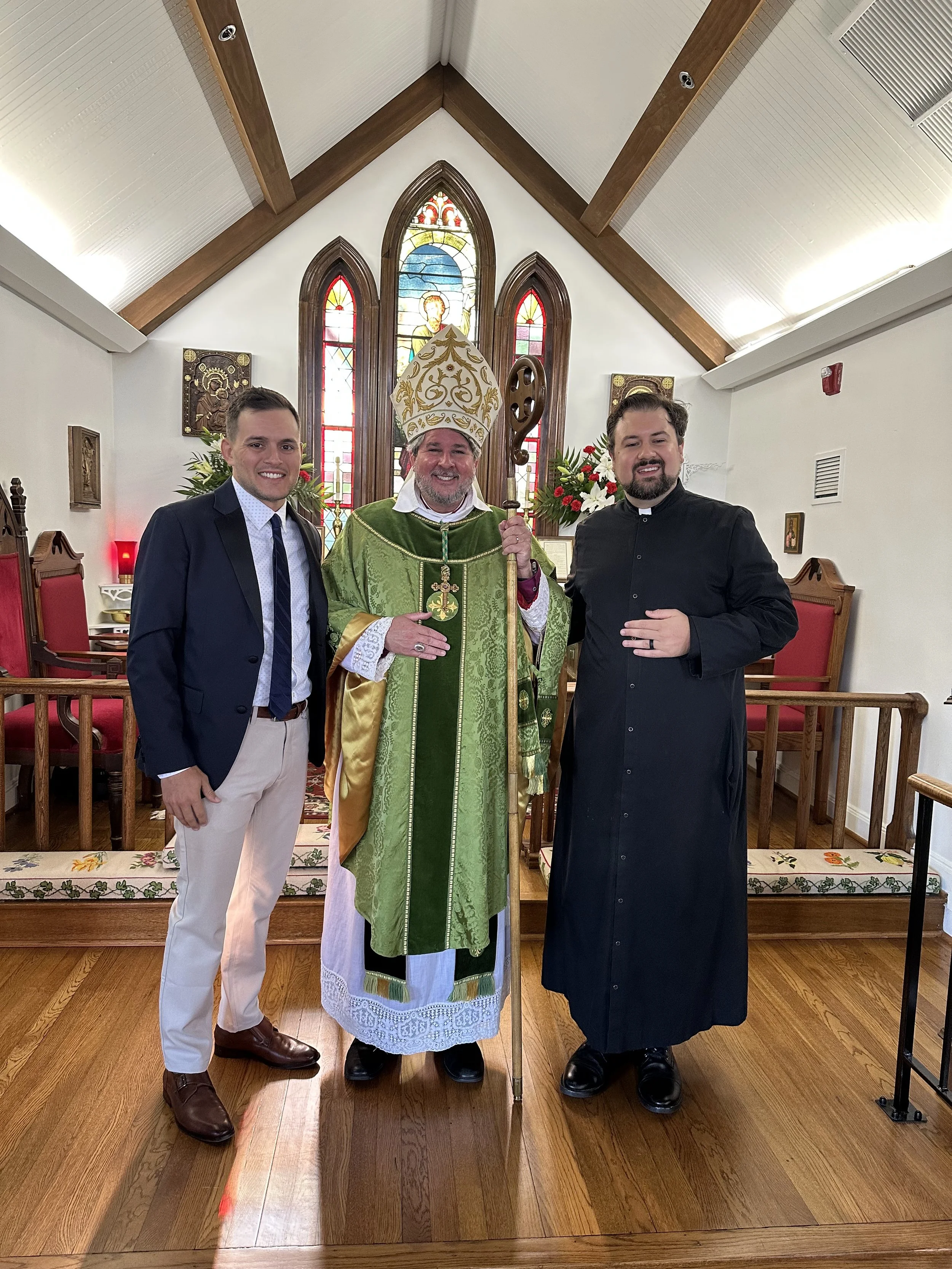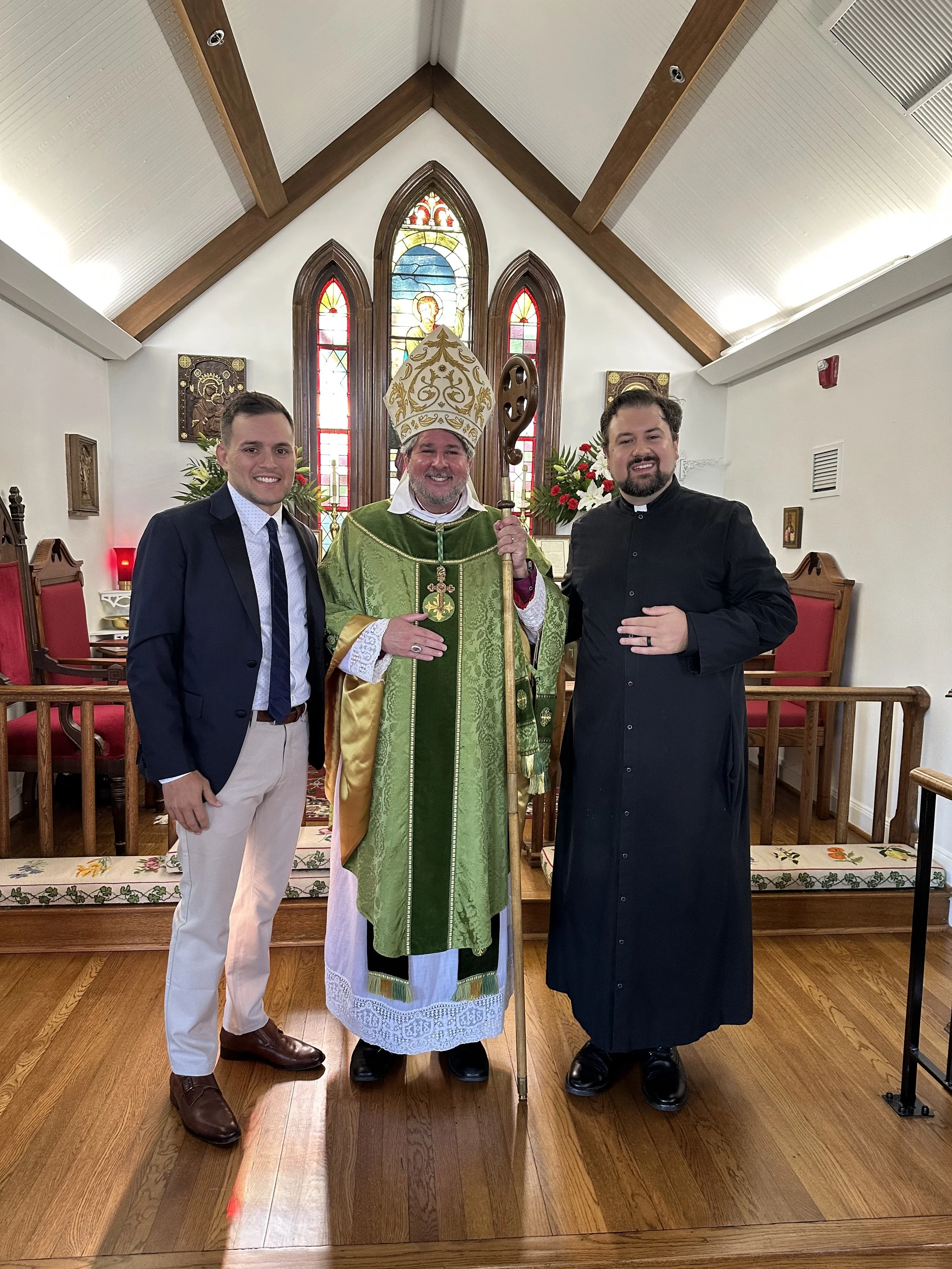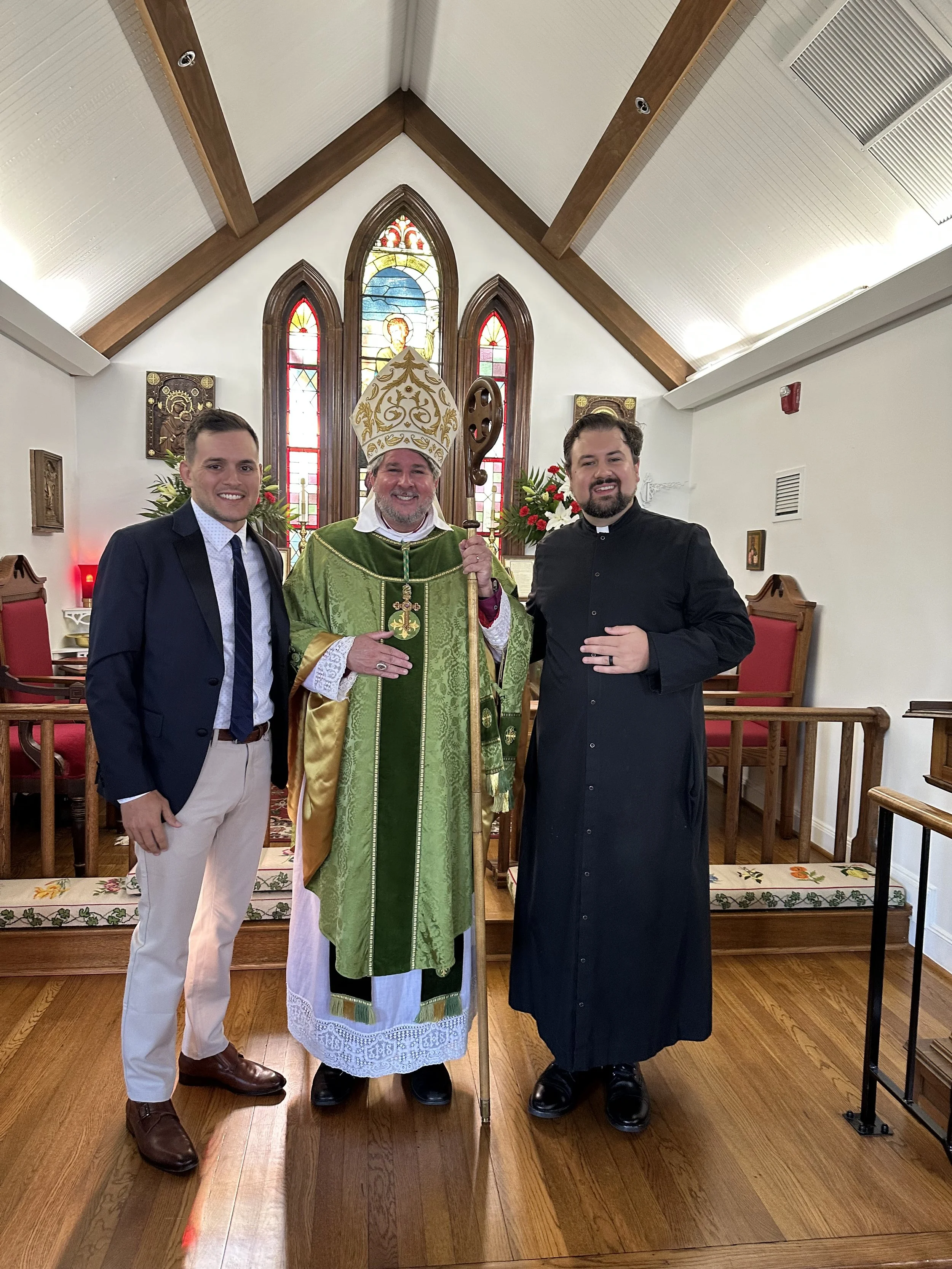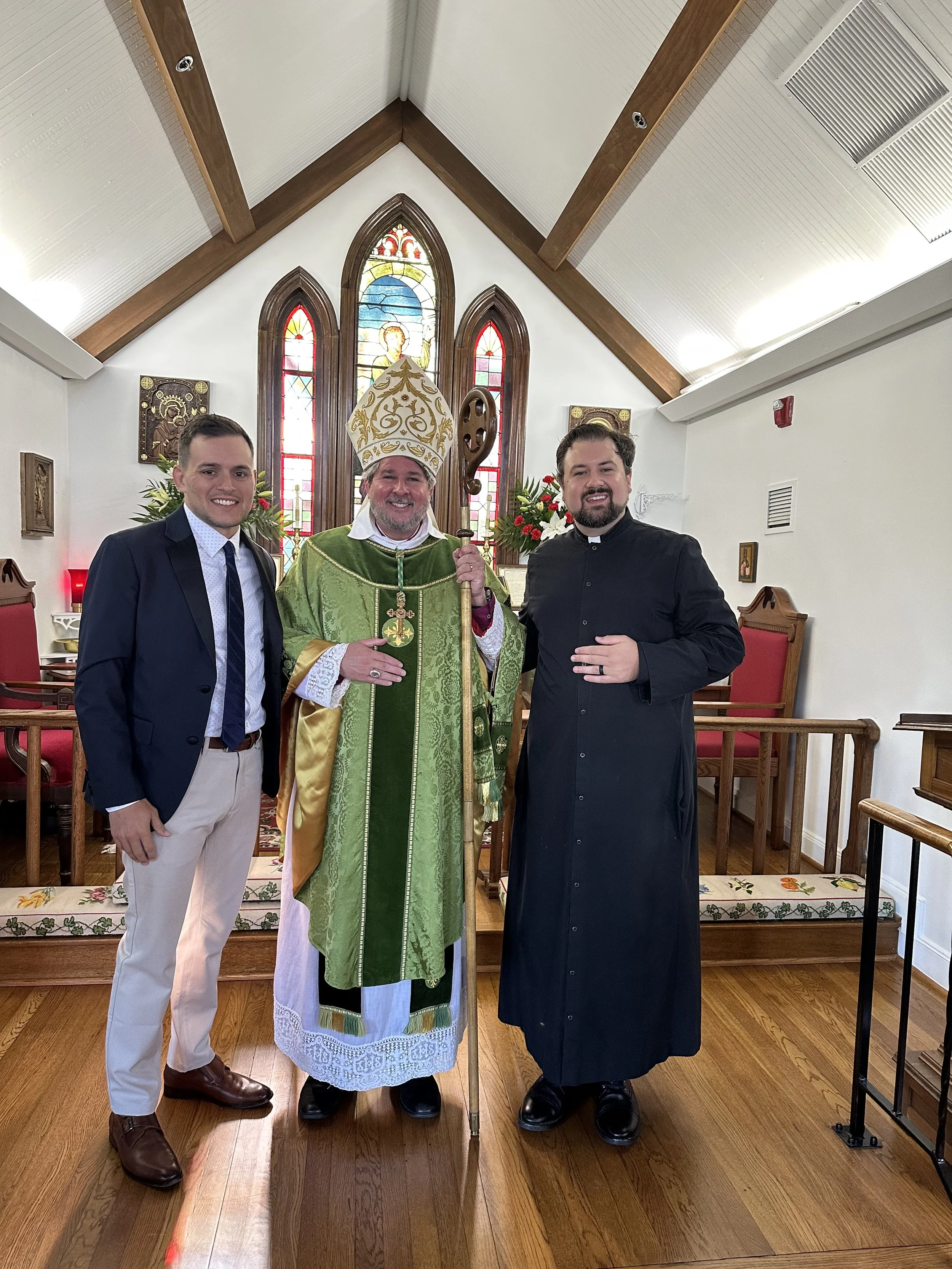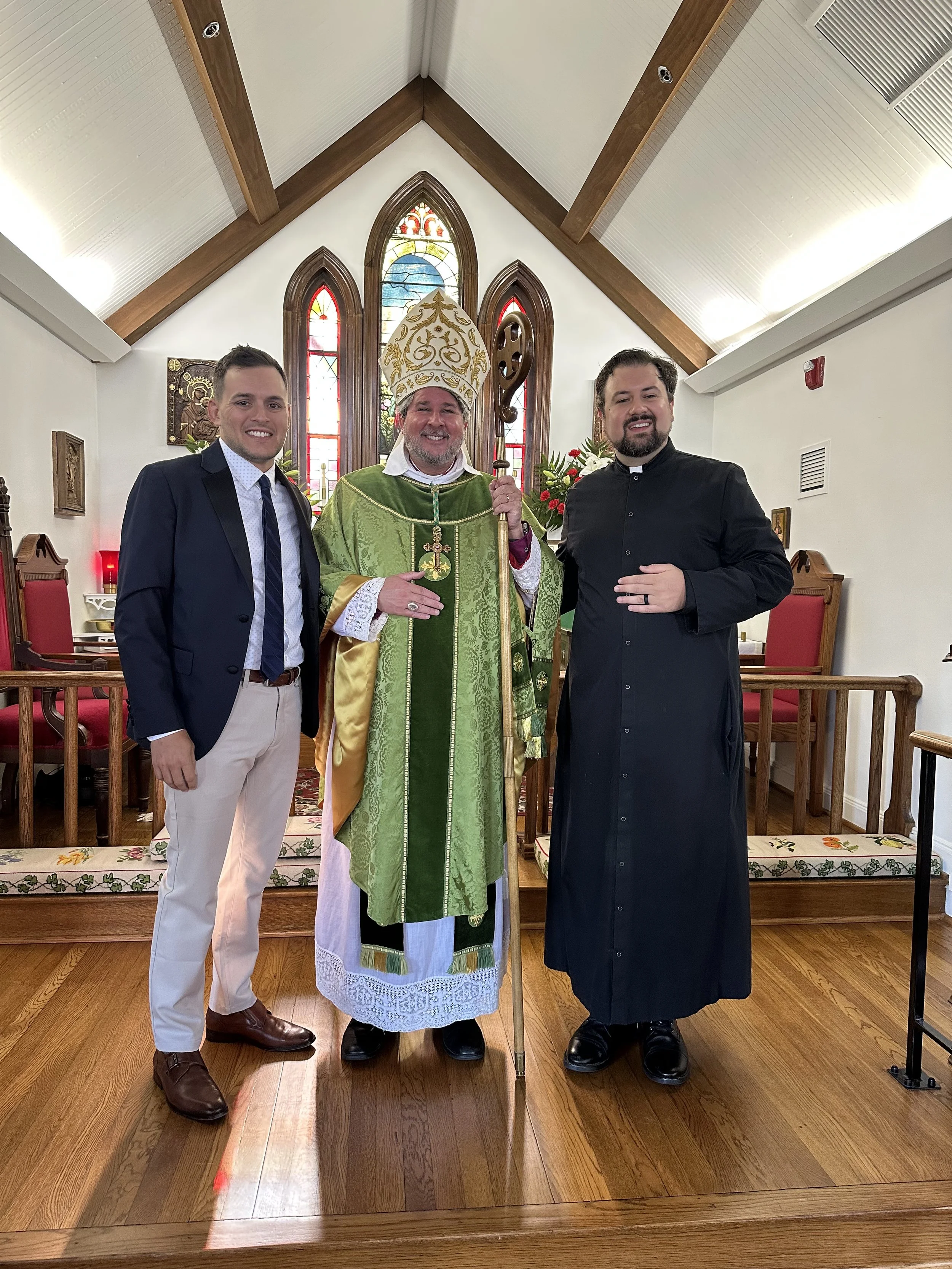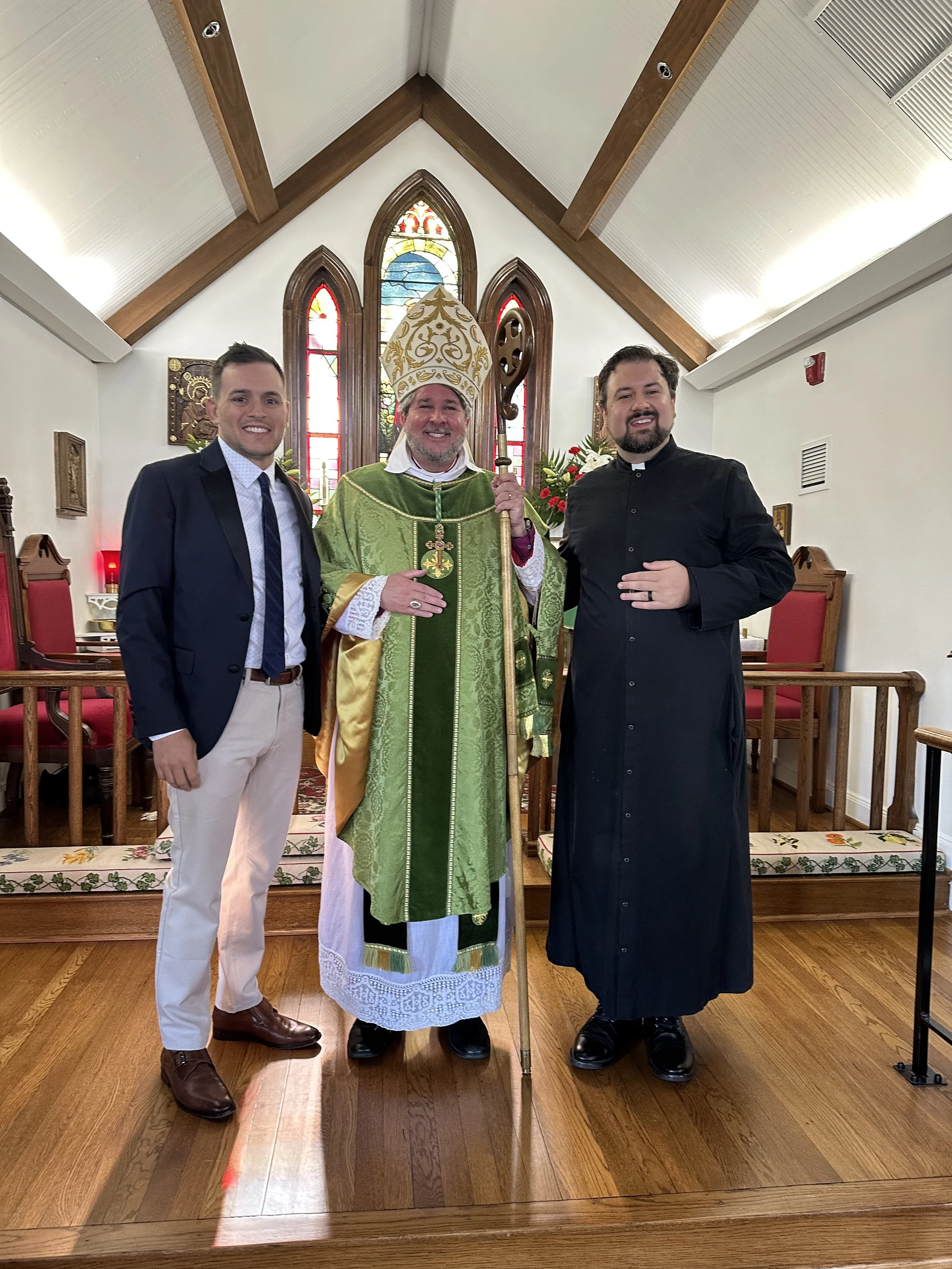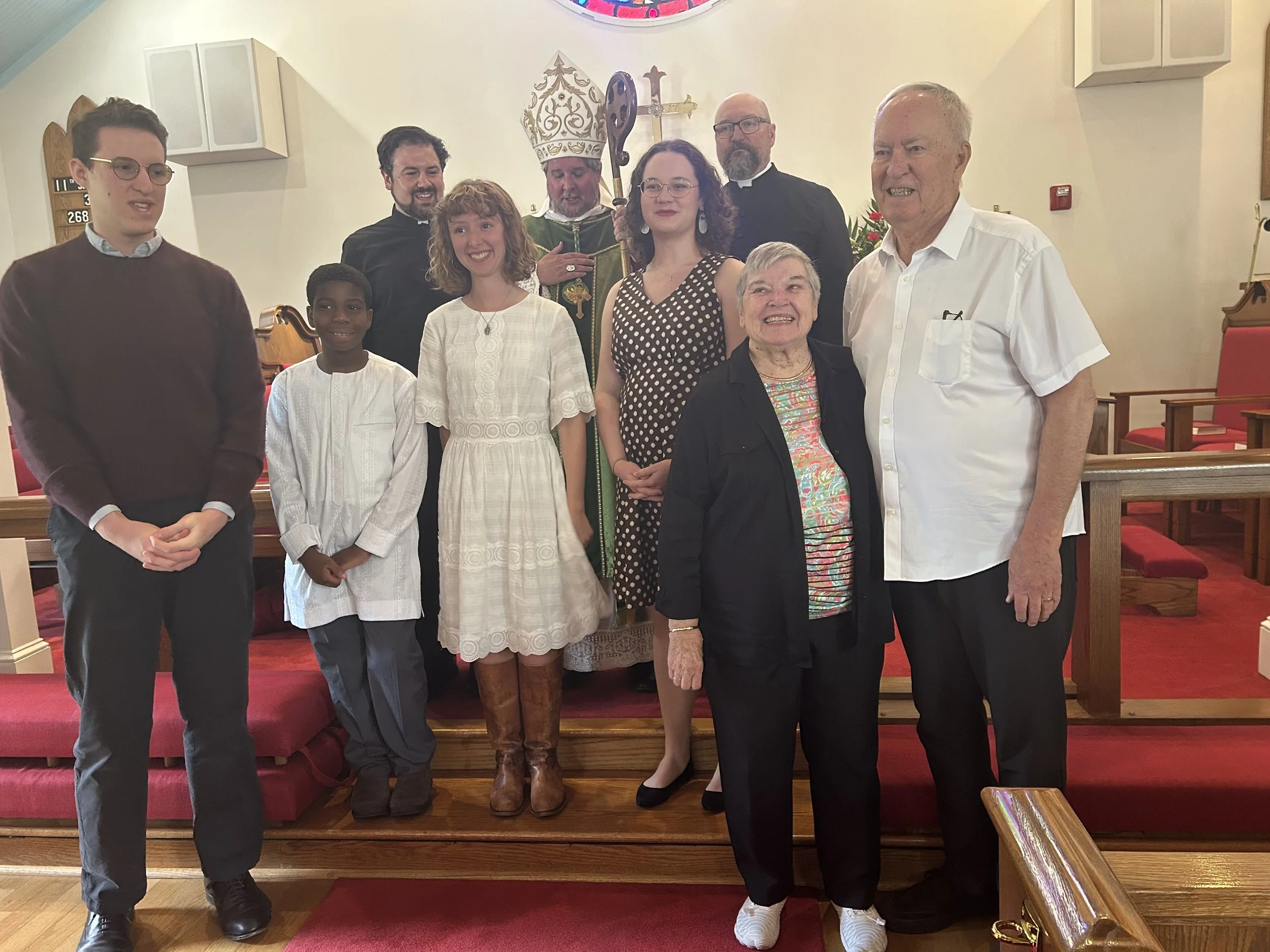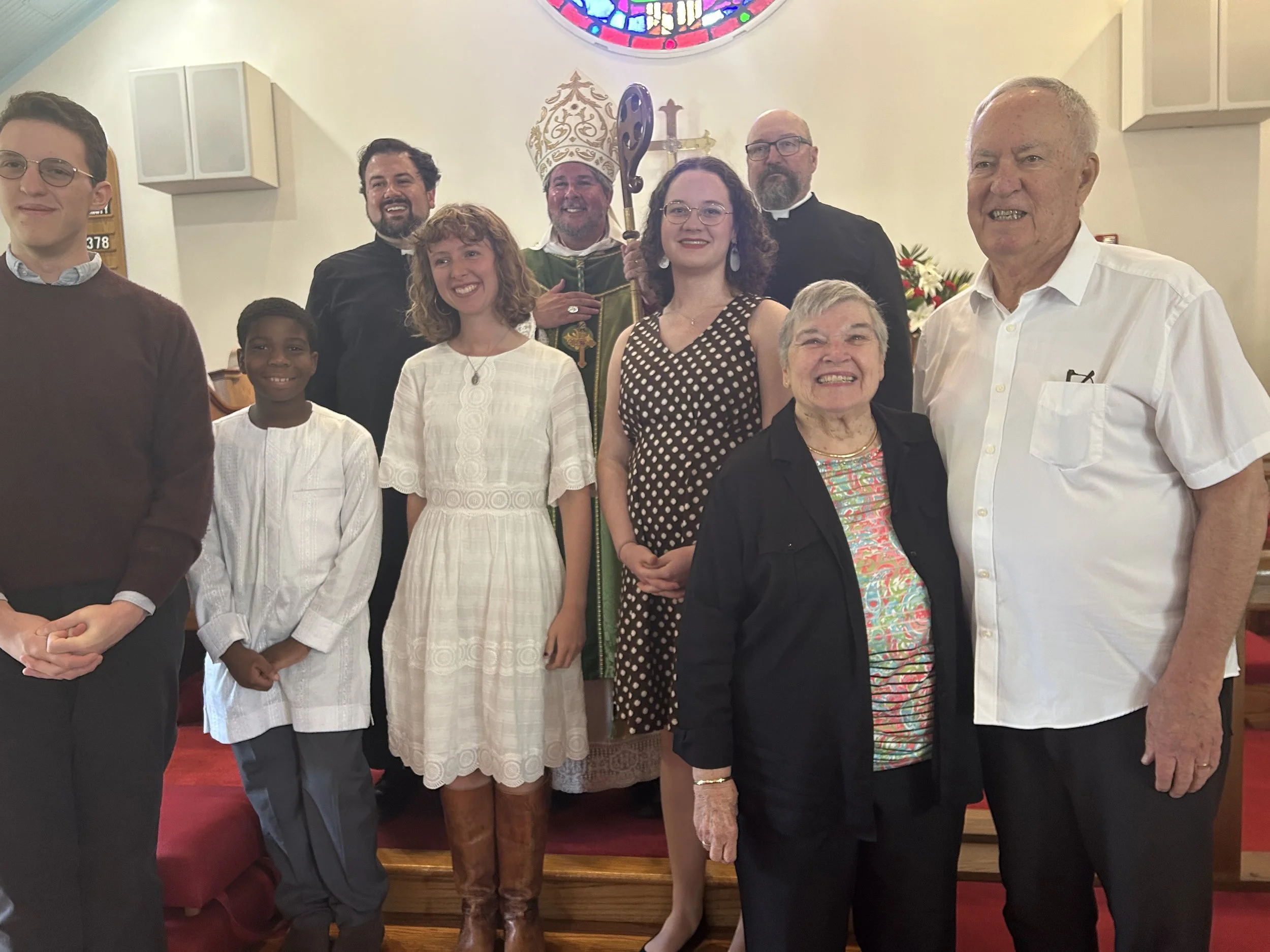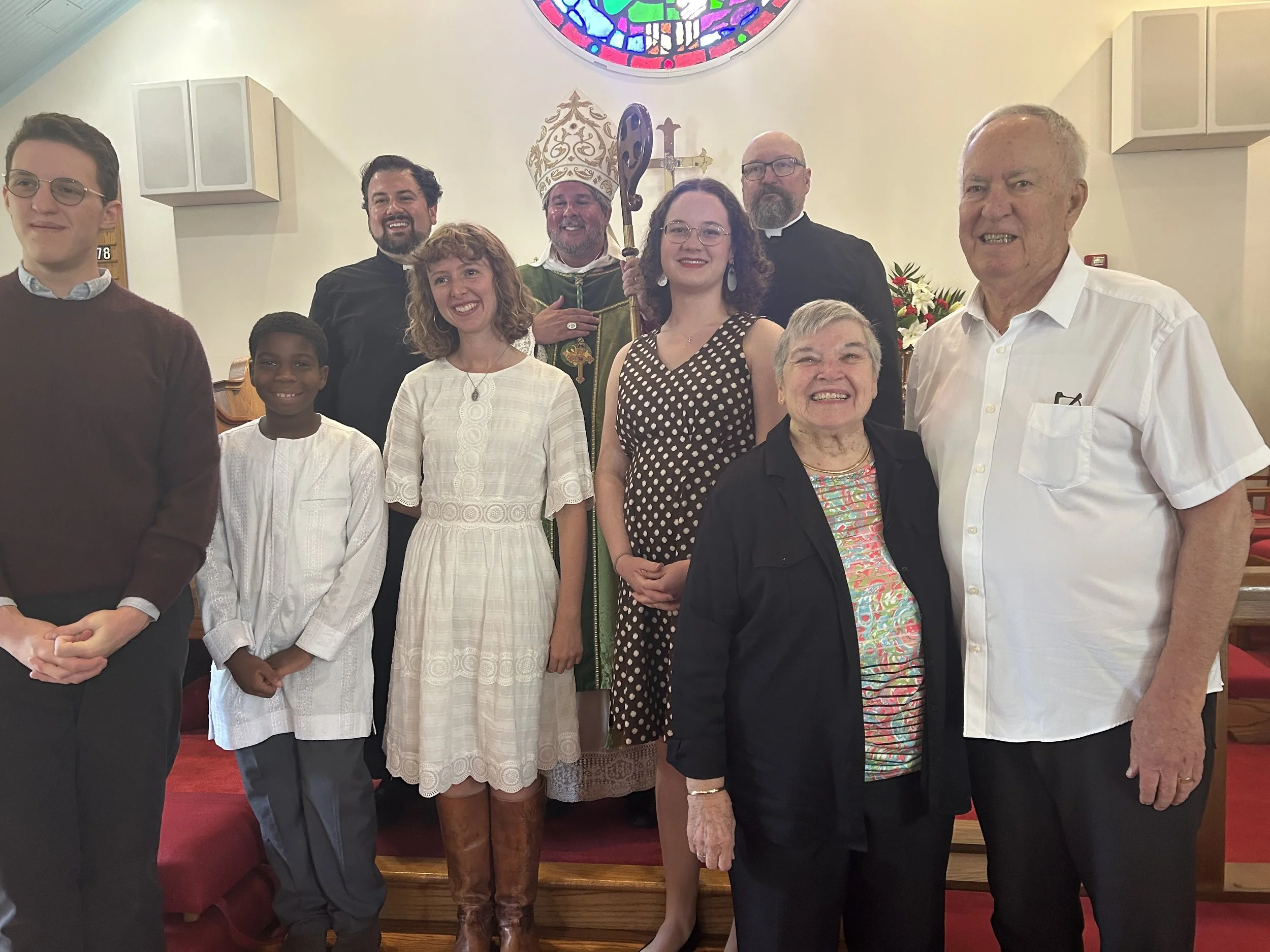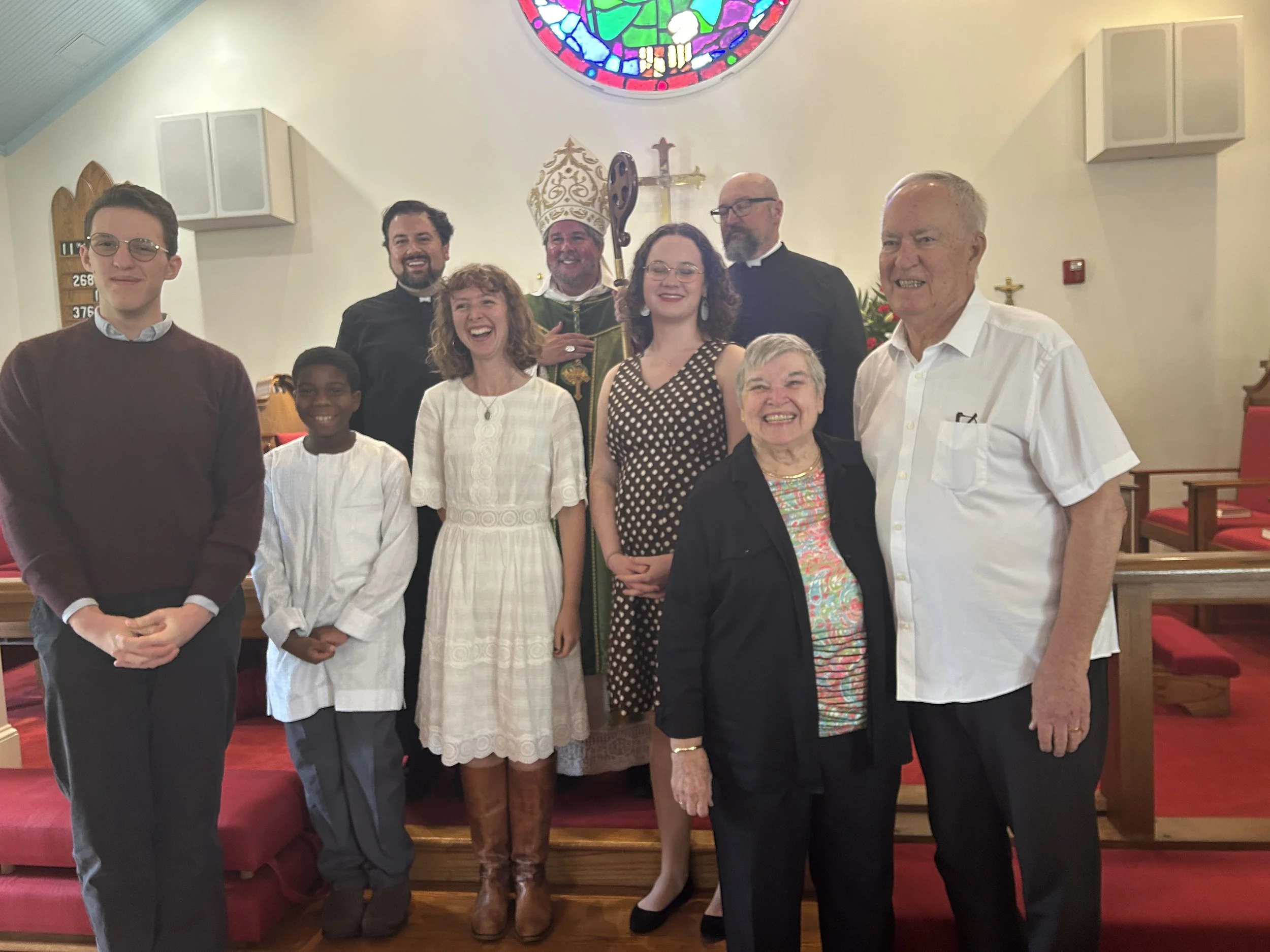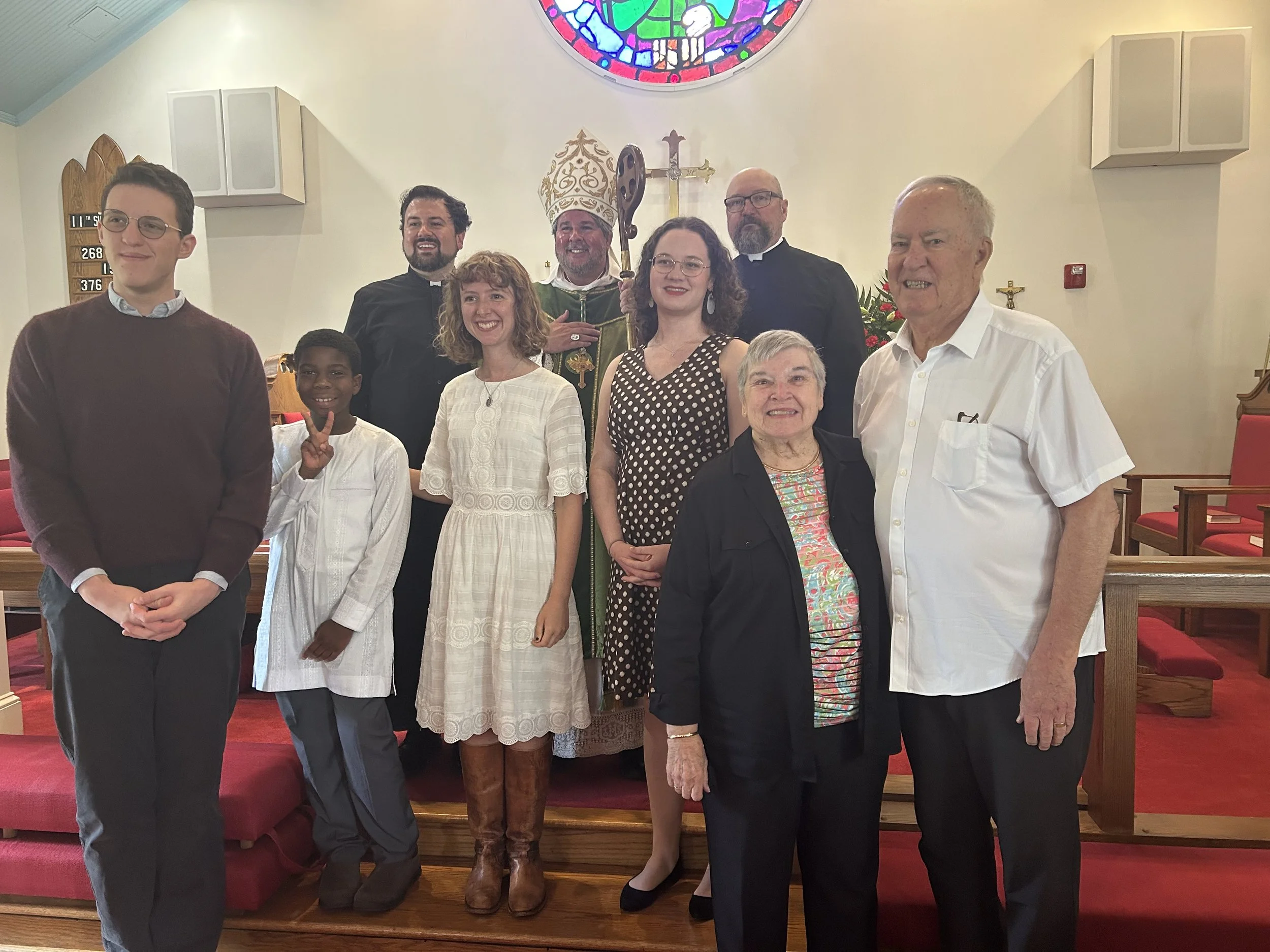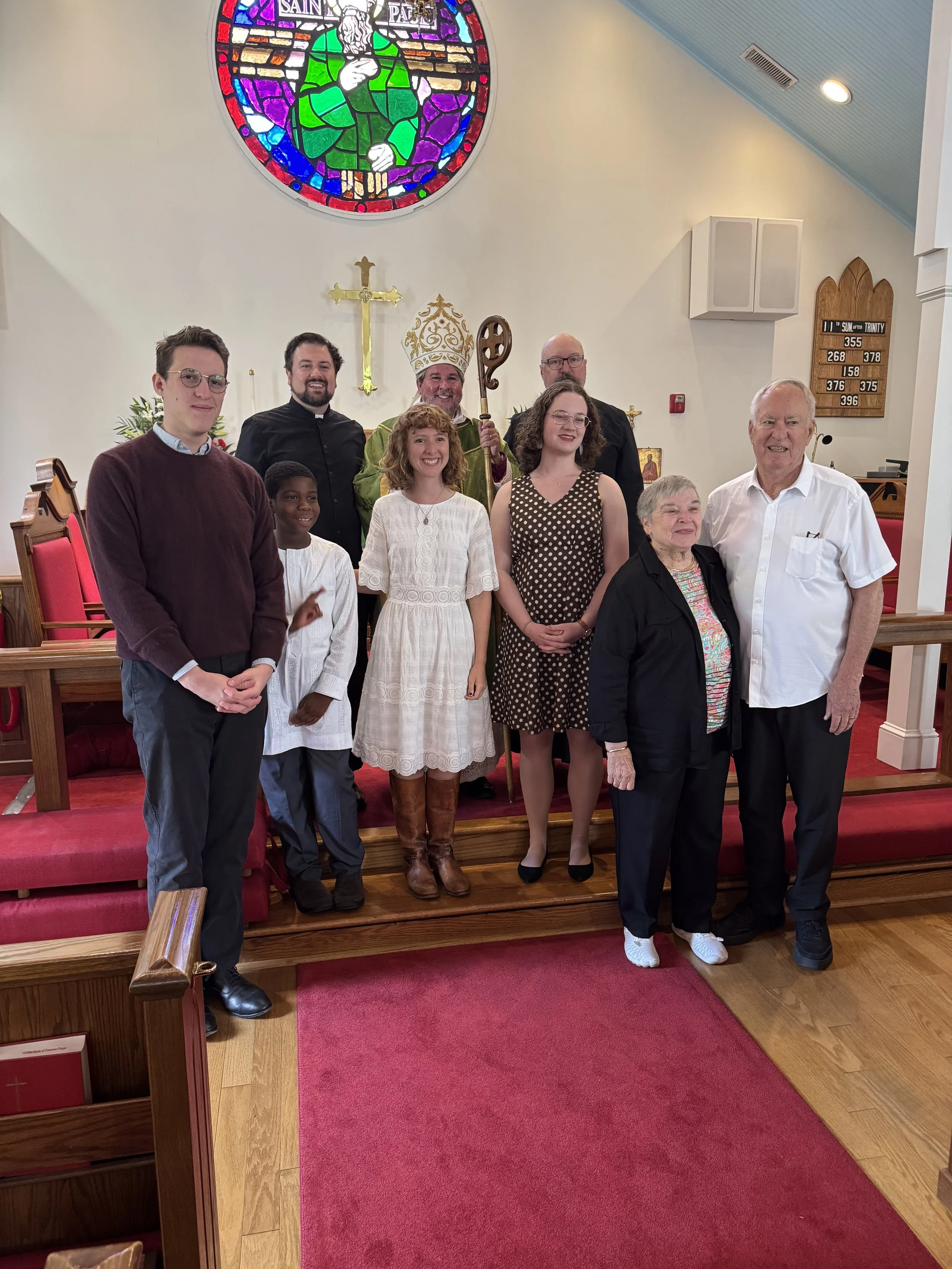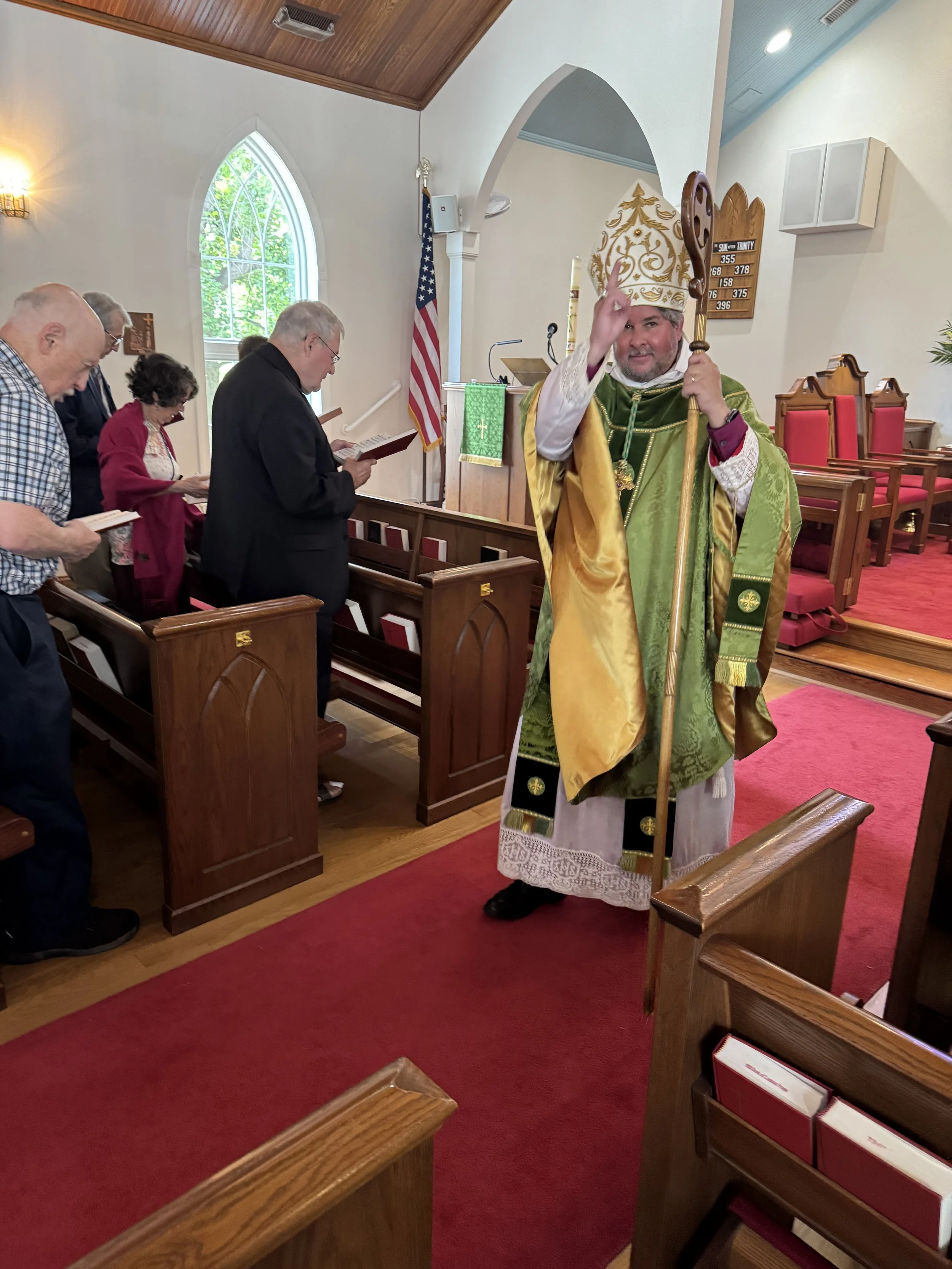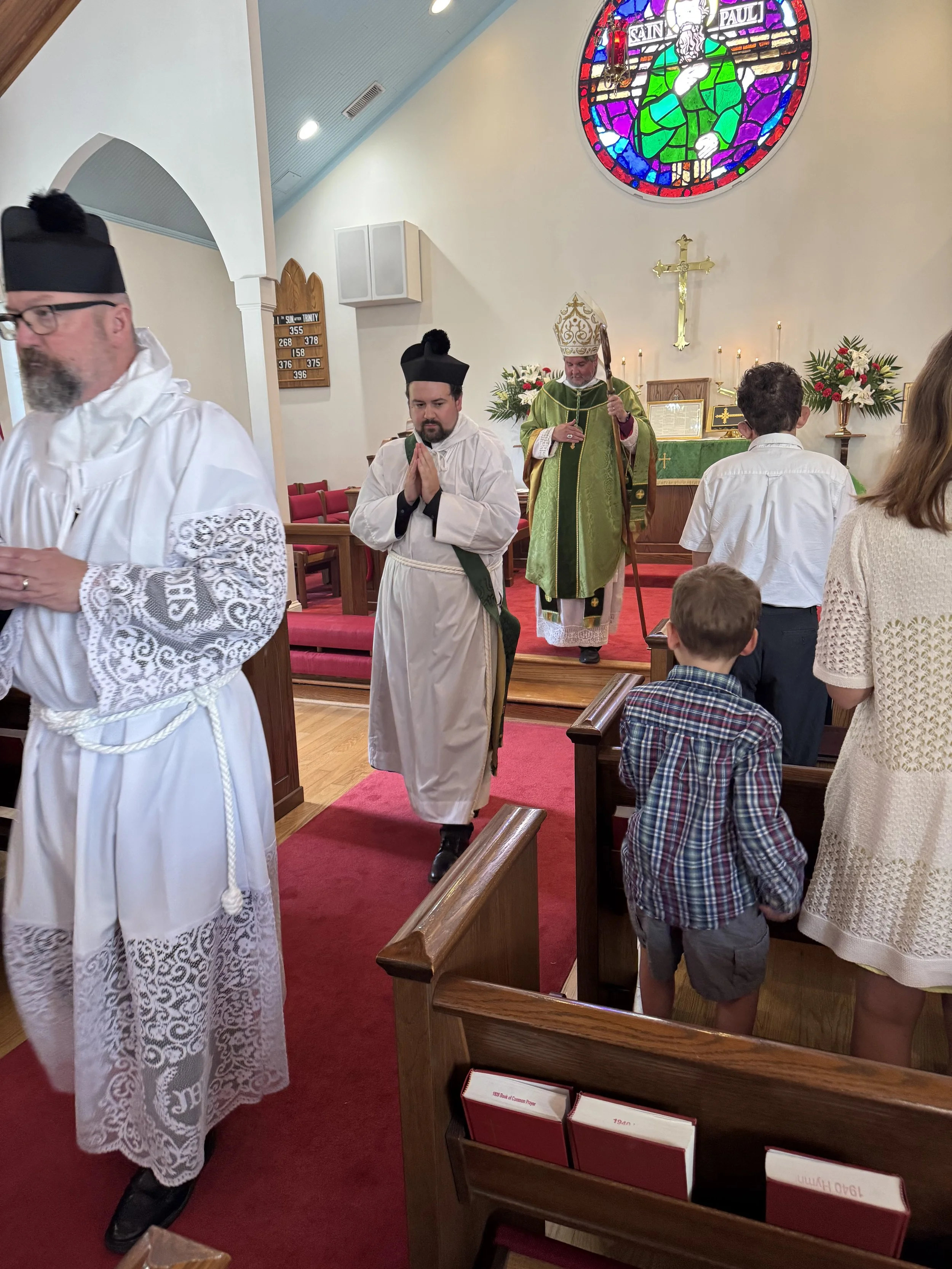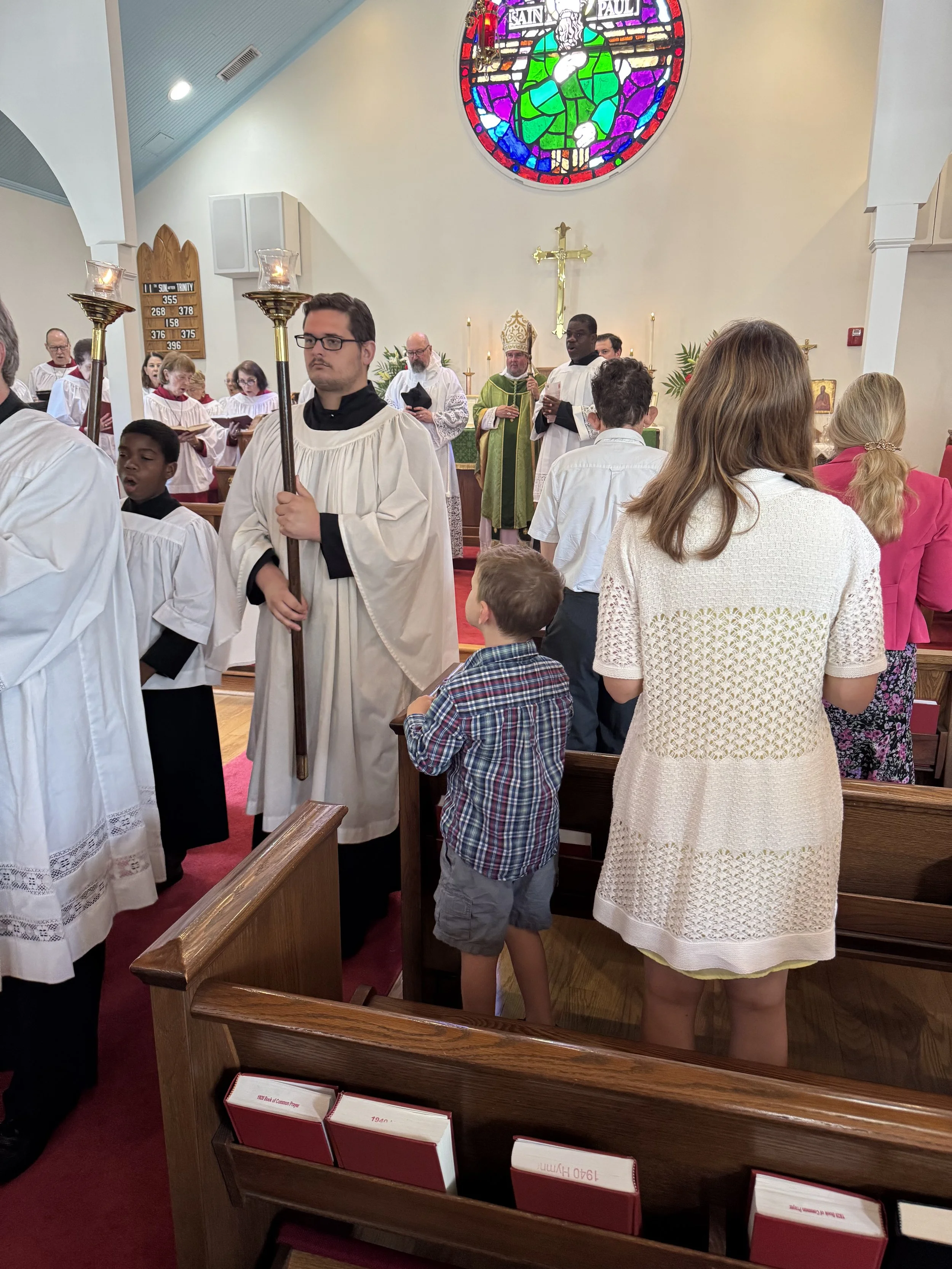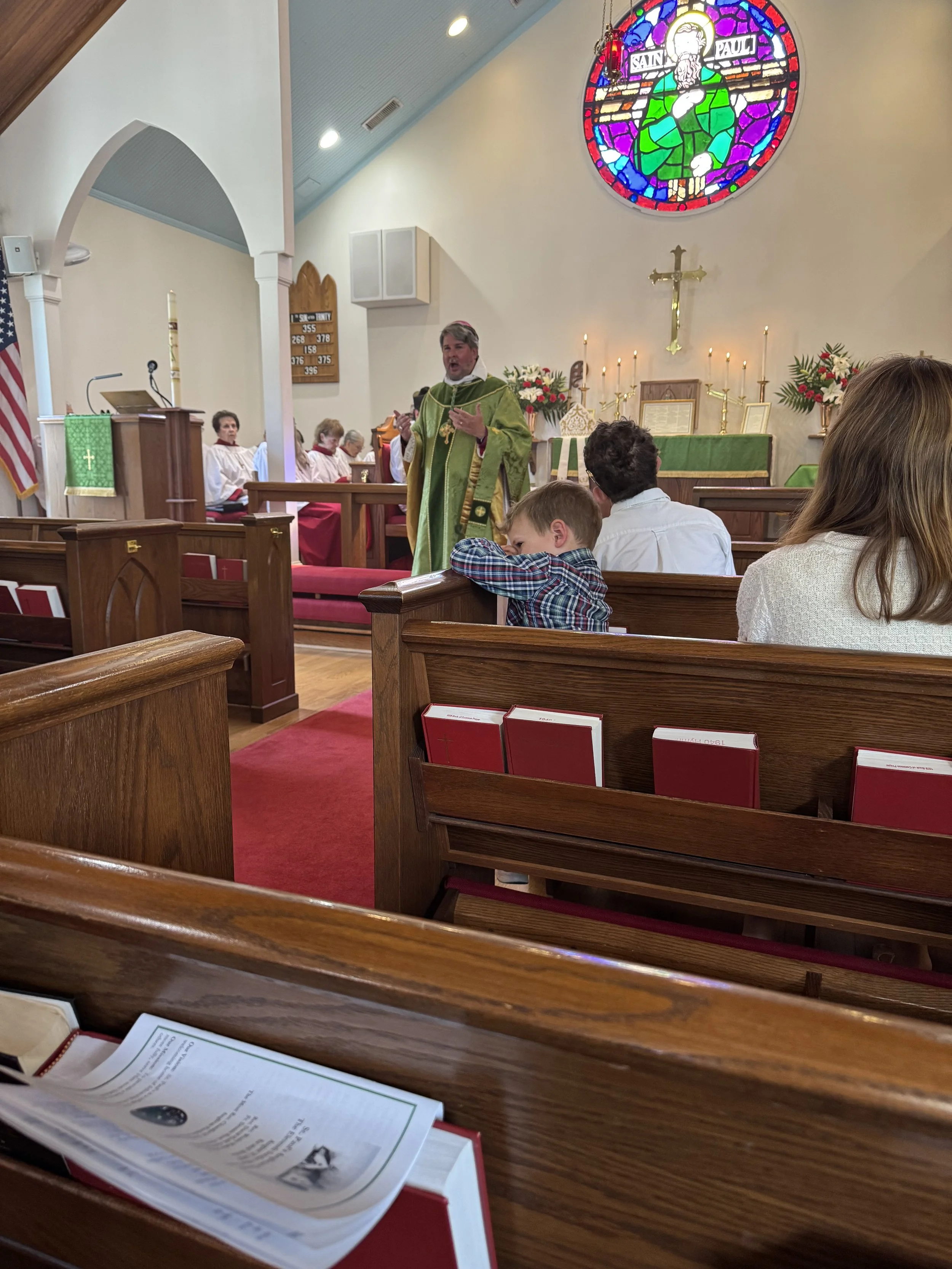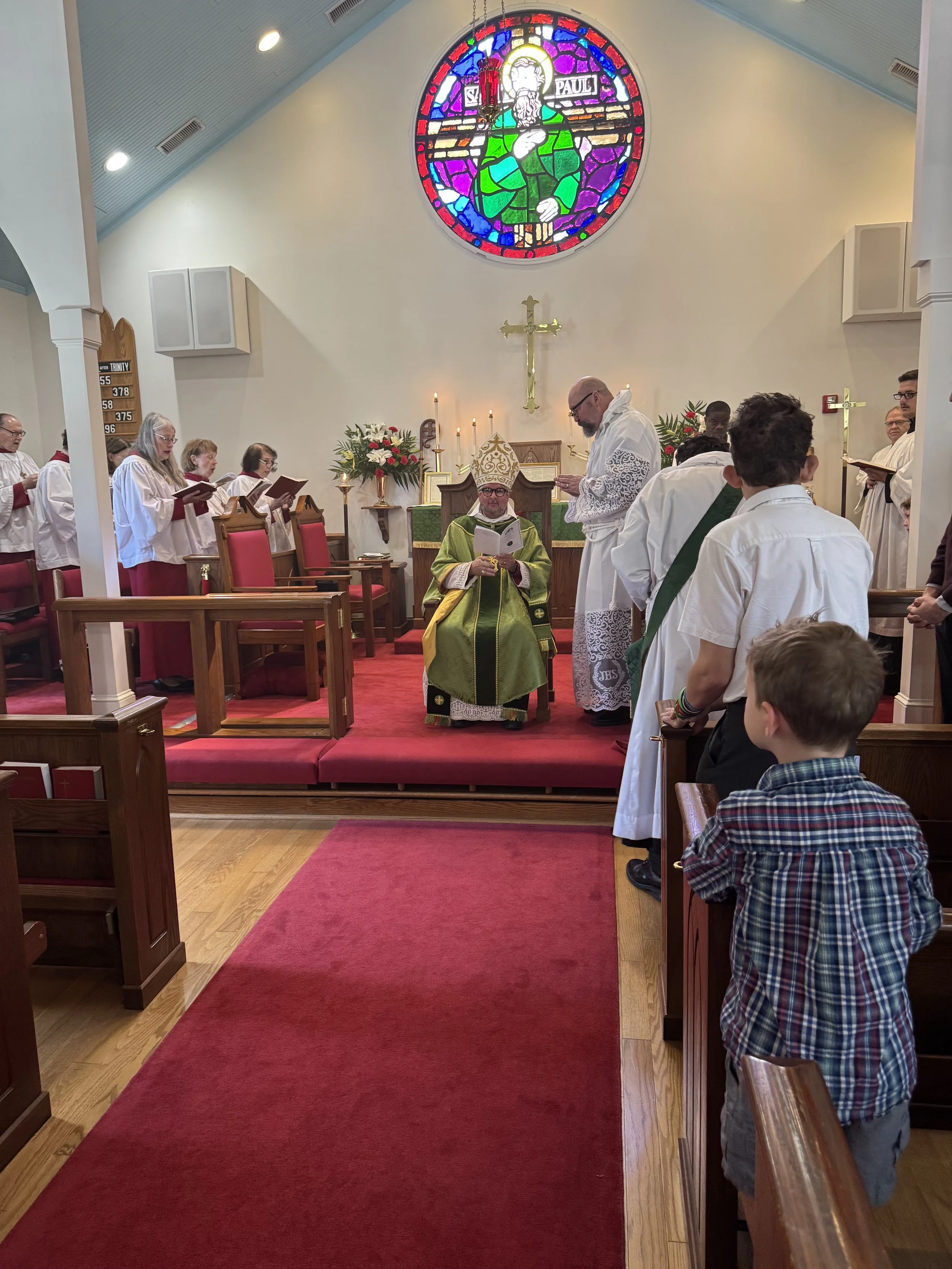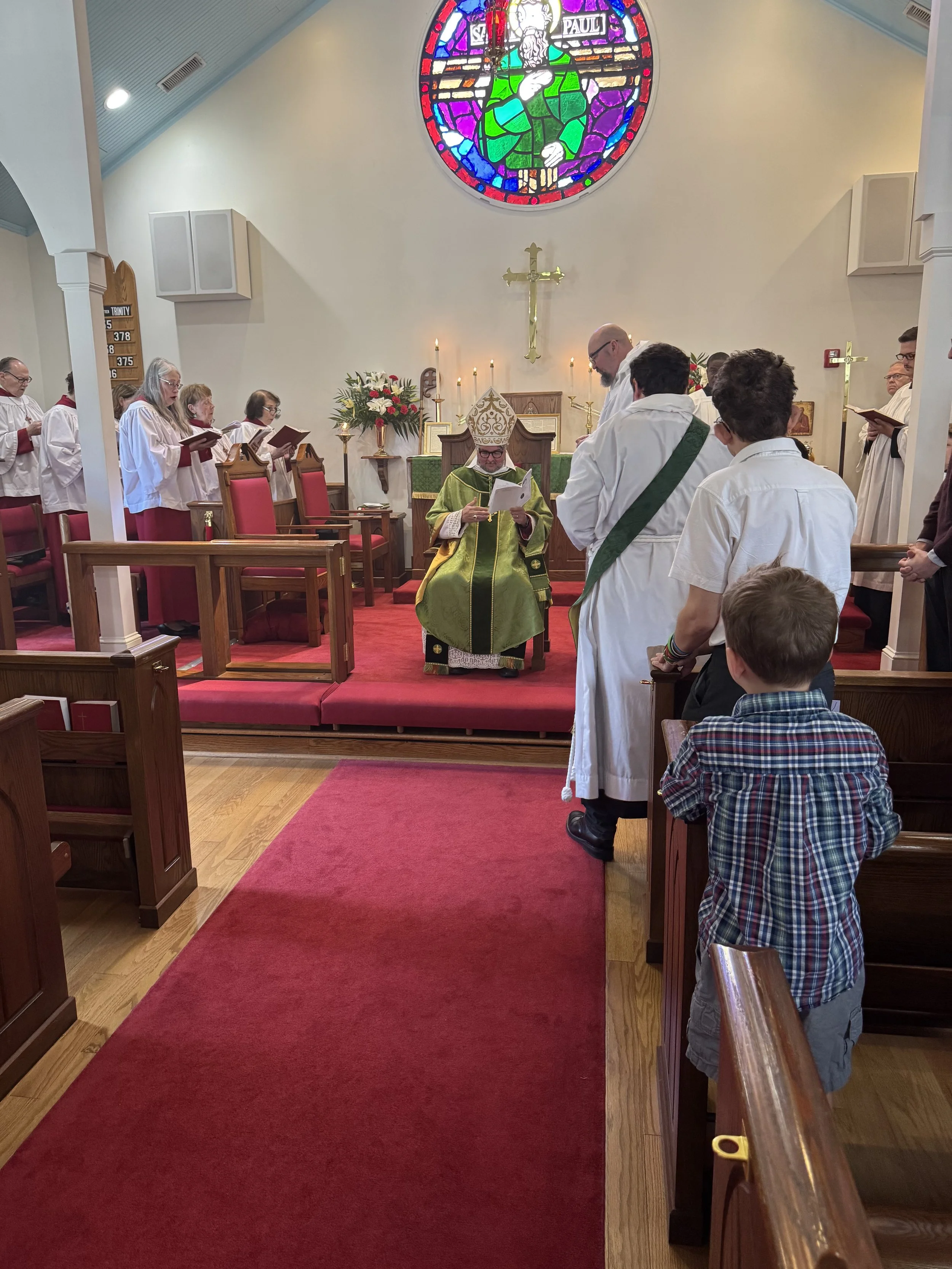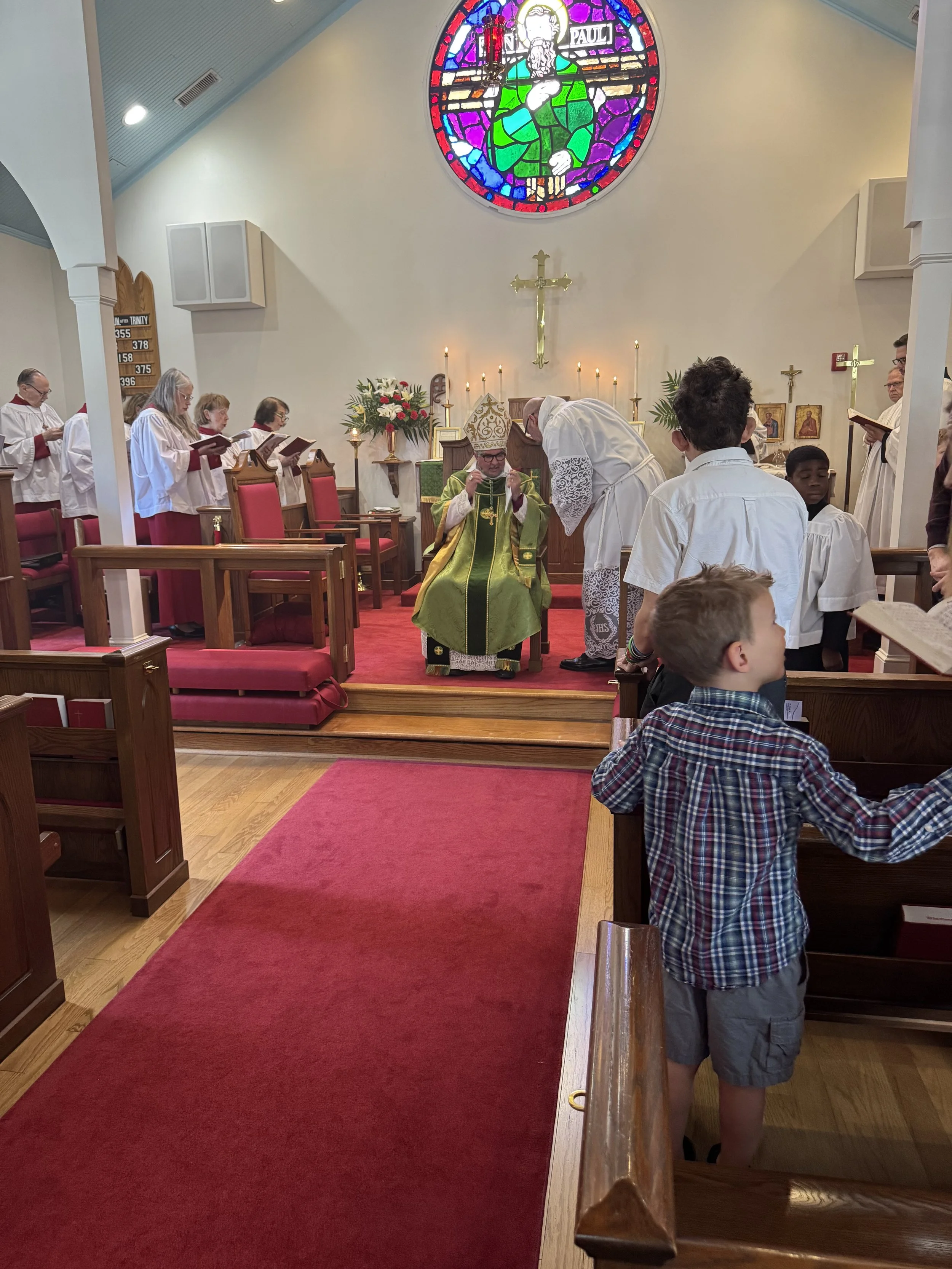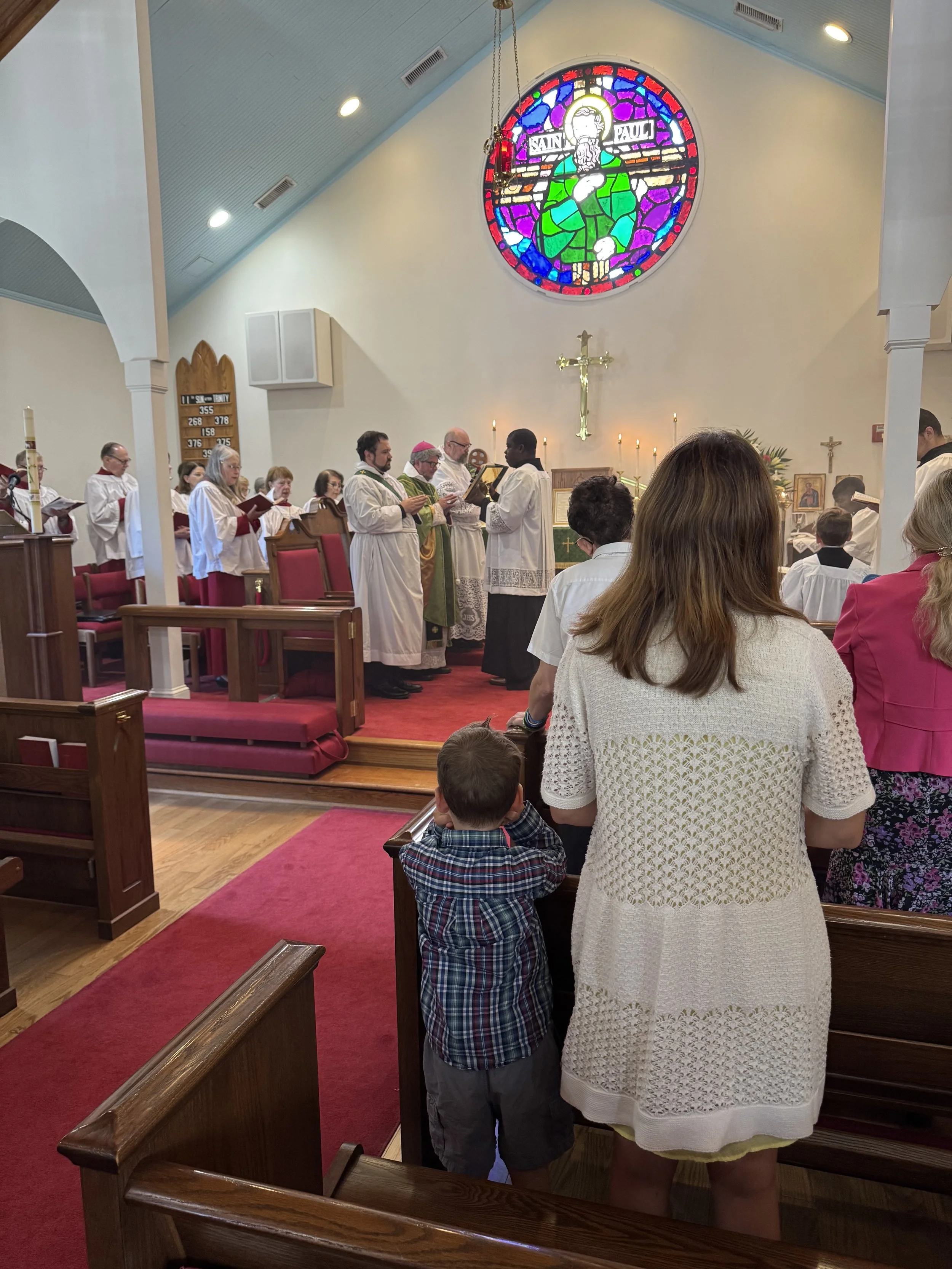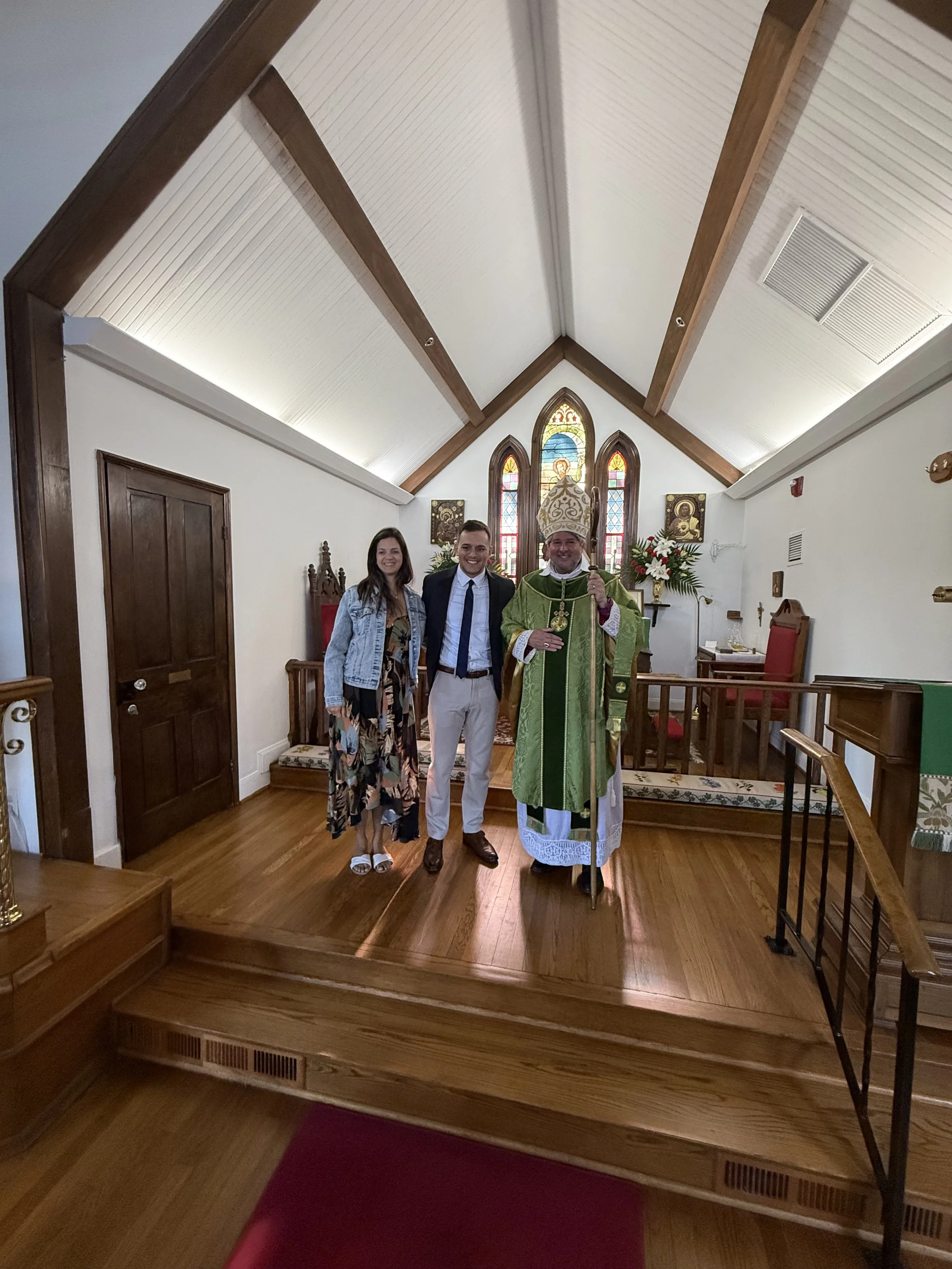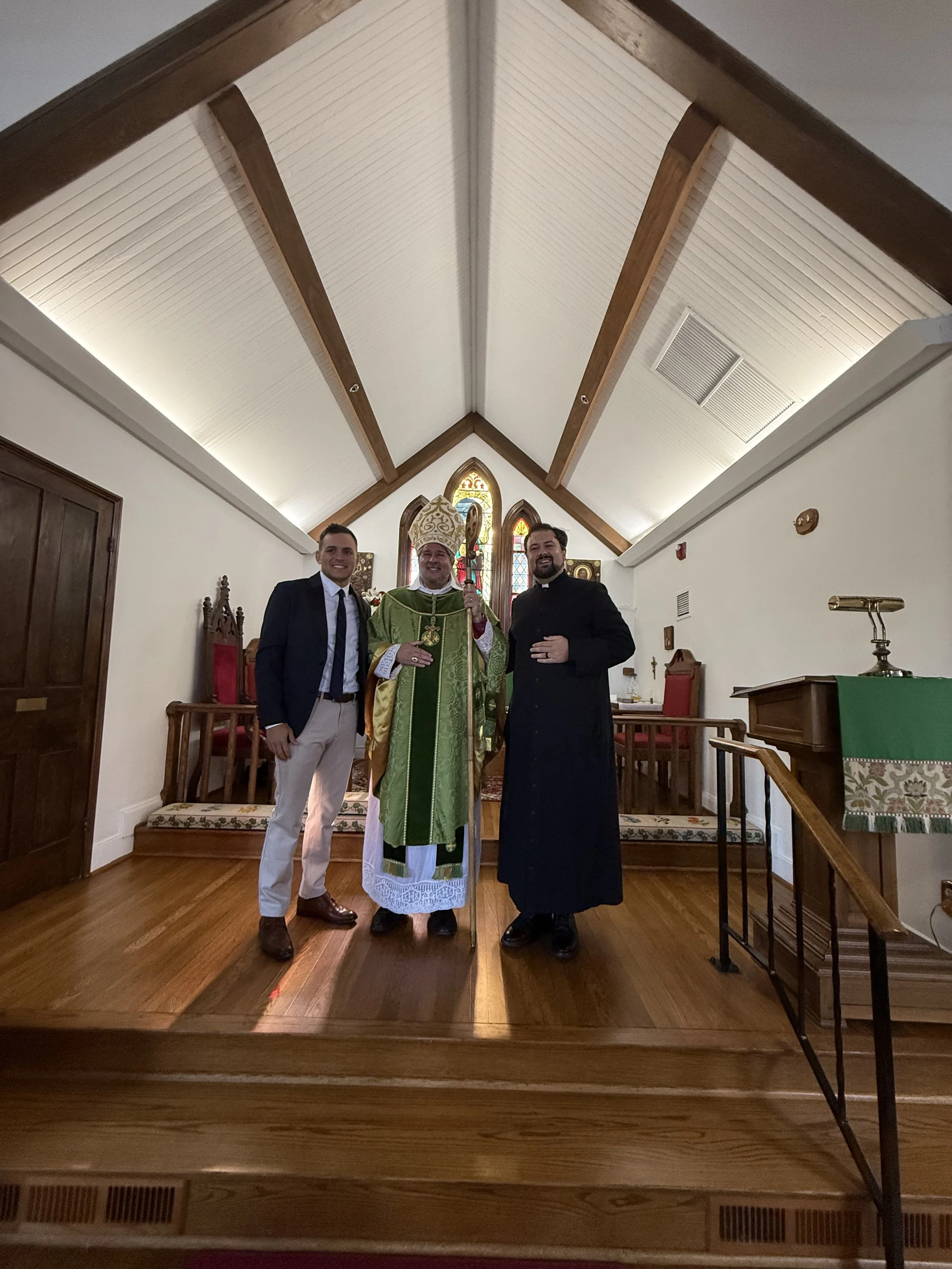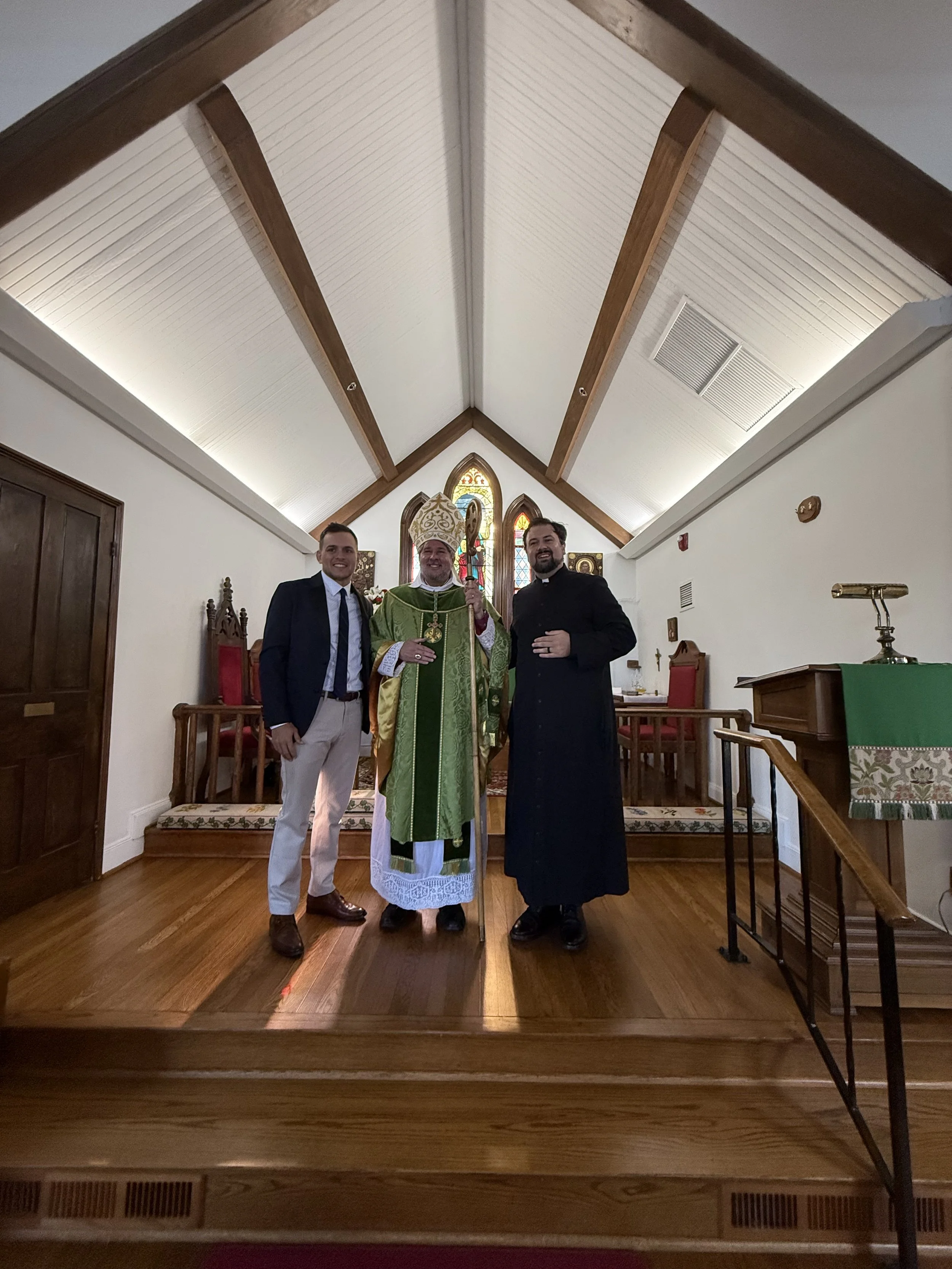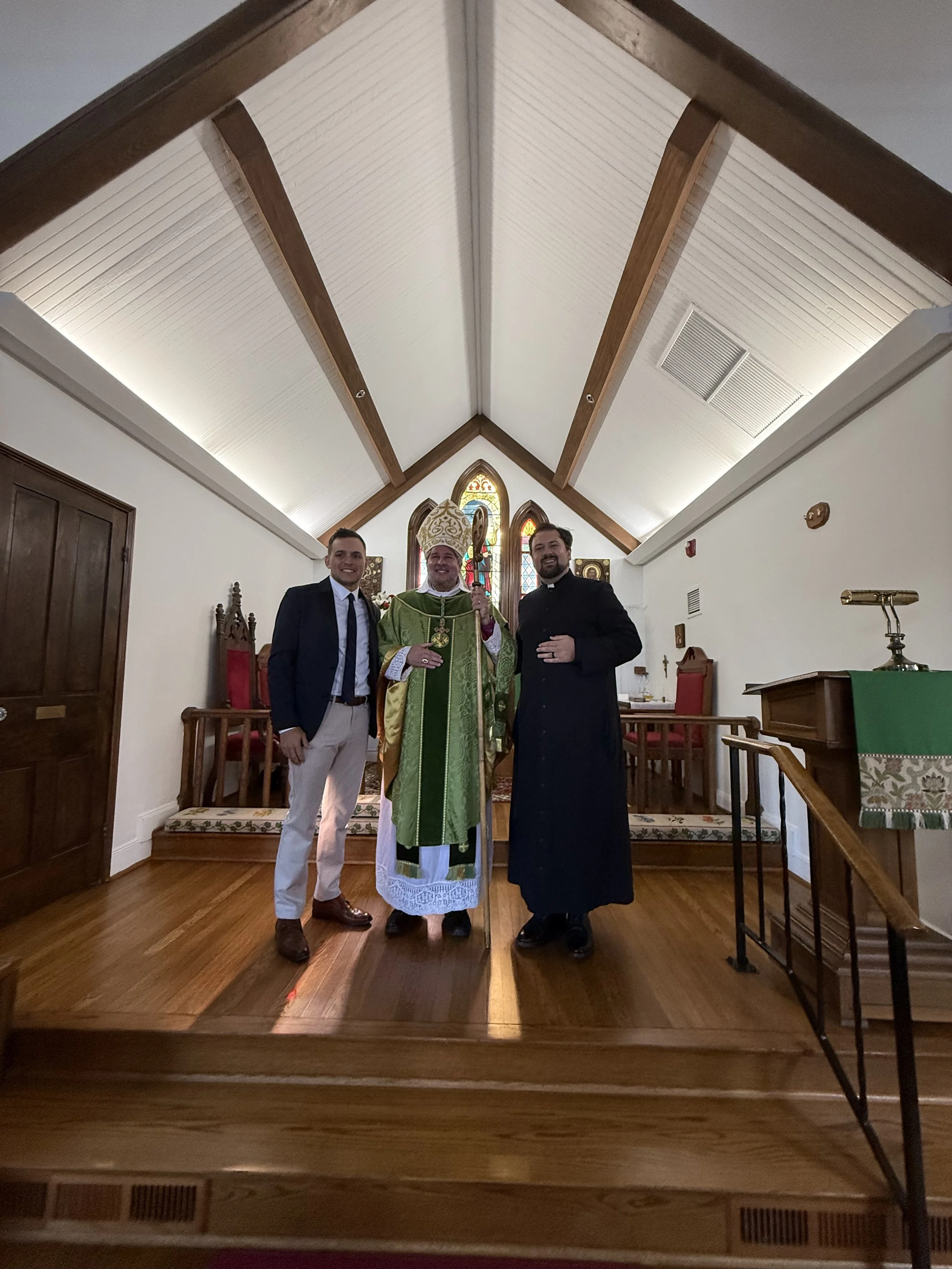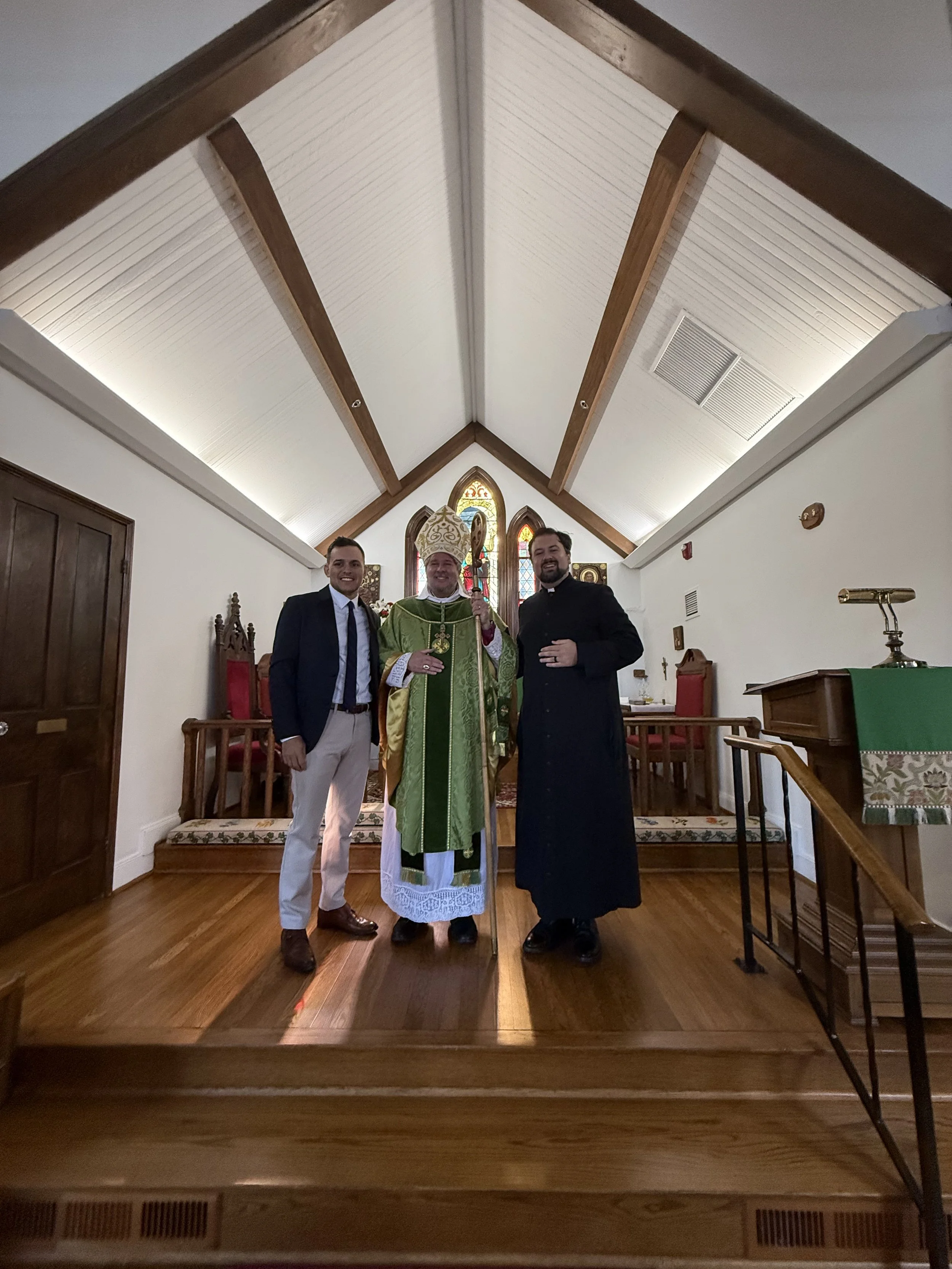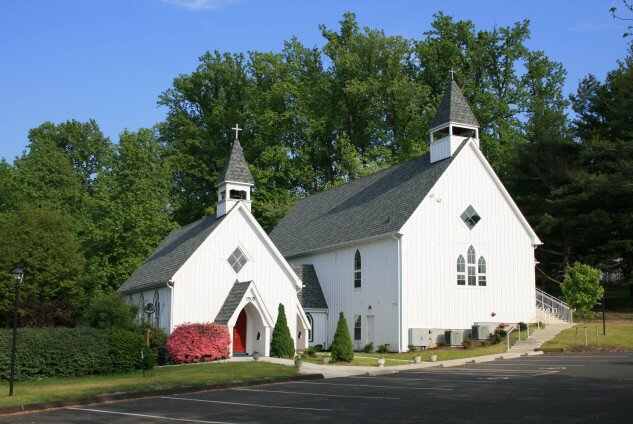
NEWS
St. Paul’s Newcomers Class Starts January 7th!
“All possible care must be taken, that we hold that faith which has been believed everywhere, always, by all.” -St. Vincent of Lerins
January 7–February 25
Wednesdays
Evening Prayer at 6p (optional)
Sessions at 6:30p
Description: Catechesis is an ancient Christian tradition of education where believers are equipped to better understand their tradition so they can know God better and make him known to those they encounter. At St. Paul’s, we intend to promulgate this tradition in the context of the Anglican tradition. A successful catechesis will provide participants with an understanding of Anglican history, ecclesiology, theology, worship, authority, and spiritual formation based on age appropriate standards.
Outline:
Week 1 (Jan 7): Who Are We? Anglican Ecclesiology, Apostolic Succession, and the Threefold Ministry
Week 2 (Jan 14): How Did We Get Here? A History of Continuing Anglicanism
Week 3 (Jan 21): What Do We Do, pt. 1? The Eucharist and Baptism
Week 4 (Jan 28): What Do We Do, pt. 2? Reconciliation, Confirmation, Matrimony, Ordination, and Unction
Week 5 (Feb 4): How Do We Pray? The Rule
Week 6 (Feb 11): How Do We Think? Scripture, Tradition, and Reason
Week 7 (Feb 18): How Do We Live? The Church Calendar + What’s Expected of Me as a Church Member + Confirmation
Week 8 (Feb 25): Instructed Eucharist
From the Rector’s Bookshelf: True Love: Sermons for Advent by The Rev. Canon Glenn Spencer
The Rev. Canon Glenn Spencer, True Love: Sermons for Advent. The Anglo-Catholic Pulpit. Earth & Altar Press, 2025. ISBN: 9798273890121, x+60pp. $12.50.
Fr. Glenn Spencer, Rector Emeritus of All Saints Church (APA) in Charlottesville, VA
Fr. Glenn Spencer is the Rector Emeritus of All Saints Anglican Church (APA) in Charlottesville, Virginia where he served as the Rector for thirty-five years. Fr. Glenn is the way I got to St. Paul’s and for that, I am eternally grateful to him. I remember visiting All Saints multiple times over the years and, during one of those visits, he told me about an APA parish in Annapolis, Maryland that was looking for a younger priest to bring on staff and that he could make the connection if I wanted. I’m very glad I took his recommendation!
This book is short, but dense. There is a nice foreword by Bp. Chandler Holder Jones, the Presiding Bishop of the Anglican Province of America and our diocesan Ordinary who reminds us that “whether we consciously recognize it or not at any given time, that we are today in a struggle to recover and promote the old paths, the Old Time Religion” (i). Fr. Glenn’s preaching is characteristic of that recovery. The collection of sermons begins with The Sunday Next Before Advent, “Stir Up Sunday” as it’s often called, and extends through the whole Advent season. A great feature that augments the sermon is a list of questions after each homily that can be used for personal reflection or group study.
Historically, there have been many great Anglican preachers: Lancelot Andrewes, John Donne, Jeremy Taylor, John Wesley, John Henry Newman, Edward Bouverie Pusey, Henry Parry Liddon, Austin Farrer, Michael Ramsey, and many others. In modern times, it often feels like Anglican preaching has fallen into a state of disrepair. Preaching should not be confused with sentimentality, stand up comedy, academic lectures, or motivational speeches; it is the sacred task of proclaiming the Gospel to the Church. In this respect, Fr. Glenn is an expert preaching and his style is a blend of multiple things. They are learned, but not inaccessible, Catholic, but with an evangelical fervor, situated in a parish setting, but containing transcendent truths. If you’re looking for a book to serve as your Advent companion, consider getting Fr. Glenn’s book of sermons!
2026 Pledge Forms
As we look ahead to another year of ministry at St. Paul’s, we invite every member of our parish family to prayerfully complete a 2026 Parish Pledge Form. Your annual pledge is far more than a financial commitment—it’s a tangible expression of gratitude and faith, a way of saying “yes” to the work God is doing through our church. Each gift, no matter the size, helps us continue proclaiming the Gospel, serving our community, and deepening our common life of prayer, worship, and fellowship.
Submitting your pledge early is a tremendous help to our Vestry and Finance Committee as they prepare the 2026 budget. It allows us to plan responsibly, support our ministries effectively, and steward our resources wisely. Please take a few moments this week to fill out your form and return it to the parish office or complete it online. Together, our shared generosity makes possible all that we do for the glory of God and the good of His people.
What Percentage of My Income is God Calling Me to Give? Thoughts on Tithing
Each year, our parish enters a season we call of Stewardship. It’s a time not to talk about paying bills, but to reflect together on what it means to live generously before God. Too often, conversations about stewardship begin with budgets and end with guilt. But Christian giving is so much more than a line-item discussion; it’s an act of worship. When we give, we aren’t simply supporting an institution; we’re responding to a relationship. We are offering back to God what already belongs to him, and in that offering we are drawn more deplying into the mystery of his love. The real question of stewardship isn’t “What does the parish need to balance its budget?” It’s, “What percentage of my income is God calling to give?”
All true generosity begins in gratitude. Every good thing we have—life, family, work, friends, a parish community—is a gift. When we give, we’re not trying to buy God’s favor or pay him back; we’re simply saying thank you. Christian stewardship begins when we realize that our possessions were never ours to begin with. They are entrusted to us to that we might reflect God’s own generous nature. Gratitude opens our hands.
Scripture consistently connects giving with our relationship to God: “For where your treasure is, there will your heart be also” (Matt 6:21). In other words, giving is a way of placing our hearts in God’s hands. When we set aside a portion of our income for the Lord, we are making a tangible act of trust. It’s one thing to say, “God will provide”; it’s another to live as though that’s true. For this reason, giving isn’t primarily about supporting the local church because it’s really about spiritual formation. Just as prayer deepens our dependence on God, generosity deepens our trust in his provision.
To give is to participate in God’s work of redemption. When we give to the work of the Church, we’re joining in the story of salvation being written here at St. Paul’s and beyond. We have the privilege of seeing lives changed, children catechized, the hungry fed, the lonely visited, and the Gospel proclaimed. Therefore, giving is a privilege, not a burden. It’s a concrete way for us to respont to God’s call by saying “Lord, here I am. Use me.”
In the Old Testament, God’s people were commanded to give ten percent as a sign of covenant faithfulness (Lev 27:30-34). Under the New Covenant, giving is no longer about law; it’s about grace. God’s grace frees us from legalism and empowers us to go beyond it. For some, ten percent may be a stretch; for others, it may be the starting point of a deeper journey into generosity. The key isn’t for us to ask, “What’s the minimum requirement?” but, “What portion of what I’ve been given reflects the generosity of God towards me?” When we ask “What percentage of my income is God calling me to give?” we’re really asking, “Lord, how can I more fully entrust myself to you?”
My hope is that you come to see this year’s Stewardship Campaign not as a necessary evil but as a spiritual opportunity. It’s a season to take stock of God’s blessings and to rejoice in sharing them. When we give, we discover that generosity isn’t loss, but liberation. We find joy in giving because in giving, we mirror the God who gives himself to us completely in Jesus Christ.
In just a few weeks, we’ll have Stewardship Sunday when we hear about the importance of giving and receive the annual pledge forms. Take time to ask the question honestly: What percentage of my income is God calling me to give? Not out of guilt, fear, or pressure, but out of gratitude, relationship, privilege, faith, and joy. Let this year’s campaign be a celebration of God’s abundance, not a worry about scarcity. Because the more we give ourselves to God, the more we find that he has already given everything to us.
Planting Day
St. Paul’s is honored to have received a grant from Unity Gardens. We were one of 18 organizations that were awarded a grant for fall 2025. Our application requested $870 to plant four native trees (willow oak, red maple, flowering dogwood and hackberry), 15 native shrubs (5 viburnums, 9 Gro-low sumac and one Carolina rose) and 12 native perennials (Black-eyed Susans). These plants will provide shade and wildlife habitat, enhance the beauty of the campus and increase stormwater remediation. The plants were chosen for their high environmental and wildlife value with the help of Alison Milligan, a Master Naturalist, Master Gardener and Watershed Steward. Alison will also procure the plants for us at wholesale prices. This past Saturday, volunteers gathered to plant the plants. Thank you to everyone who showed up!
The Slate of Vestry Candidates for 2025
Edward Appiah
I am Edward Appiah and my family and I reside in Odenton. I did have my formative years in Ghana, West Africa. I moved to the United States in 2001 for further studies and worshipped at another Episcopal Church for a while. I started attending St. Paul's a little over a year ago after a desire to visit for years. I do enjoy the mass with the 1928 missal and I have continued to attend St. Paul's since my first visit. I work in IT and coach soccer in my spare time. My wife Elsie, Abigail (11) and Andrew (8) have enjoyed the fellowship with the St. Paul's community and I would be honored to serve on the Vestry
Jim McDonough
Jim McDonough is a graduate of the United States Military Academy and the Massachusetts Institute of Technology. He served a full career as a United States Army officer. During his active military service, he held a number key assignments, to include command at every level from platoon (a rifle platoon in combat in Vietnam with the 173rd Airborne Brigade) through company, battalion, and brigade. He served abroad in Vietnam, Korea, Germany, Belgium, and Italy, in addition to living in Iran, Syria, and Italy as a child as the son of a U.S. Army sergeant stationed abroad. He concluded his career in command of the Southern European Task Force (SETAF) Infantry Airborne Brigade (later flagged as the 173rd Airborne Brigade) with operational deployments to Africa (Rwanda/Zaire/Uganda) and the Balkans and crisis contingency missions in Eastern Europe, parts of the Middle East, and most of Africa. In addition to his troop assignments, he taught political science and foreign affairs at West Point, served as the executive officer to the Army’s Chief of Intelligence in Europe (LTG Jim Williams), military assistant to the Supreme Allied Commander, Europe (General John Galvin), the Director of the School of Advanced Military Studies and, at the direction of the Chief of Staff of the Army (General Gordon Sullivan), as head of the team and the principal writer of the U.S. Army’s warfighting doctrine (Field Manual 100-5: Operations), the Army’s central doctrinal document. His military decorations include the Distinguished Service Medal, the Bronze Star for valor, two additional awards of the Bronze Star, the Purple Heart, the Combat Infantryman’s Badge, Senior Parachutist wings, and the Ranger Tab.
He retired after 27 years in uniform (as a colonel) and immediately thereafter went to the White House staff where he served from 1996 to 1999 as Director of Strategy for the Office of National Drug Control Policy, the agency that leads the nation’s efforts to reduce drug abuse and its consequences on the American people. He was a key player in the conceptualization, planning, and execution of national drug policies to reduce the demand for and cut the supply of illegal drugs in America.
From 1999 to 2006, he was the Director of the Florida Office of Drug Control for Governor Jeb Bush. Over a period of seven years, the rates of youth use of illegal substances decreased significantly, treatment of the addicted was expanded, and interdiction and counter smuggling efforts increased. During that same time, he was also the state official charged to bring down the Florida suicide rate since there is a strong nexus between suicide, substance abuse, and mental illness. Over a period of five years the rate of suicide decreased from approximately 13 per 100,000 to 9 per 100,000.
Amid a crisis of corruption in the Florida prison system in 2006, he was appointed (overnight) by Bush as the Secretary of Corrections, overseeing an agency with a cadre of 28,000, a prison population of 90,000, a parole and probation offender population of 160,000, and a budget of $2.5 billion. Focusing first on corruption (the preceding Secretary was sentenced to eight years in federal prison, his deputy to 3 years), he systematically went through the over 160 prisons, work camps, and related facilities rooting out the rot and replacing it with better people and appropriate systems to ensure operating efficiencies, a high degree of human decency, and a high standard of ethics. Reappointed to the job by the succeeding Governor (Charlie Crist) he competed his reform efforts and retired from the position in 2008.
Jim McDonough remains active in supporting national security and other public causes. In 1997 he served as editor-in-chief of the Report of the National Defense Panel, a Senate commissioned effort to set a strategy for the first 25 years of the 21st century. In 2005 he served as editor of the Report of the Overseas Basing Commission, a Congressional appointed effort to review the global basing system to ensure America’s global military commitments and contingencies. Both these reports were adopted in whole or in part by subsequent administrations.
He was the senior fellow of the JEHT Foundation (JEHT stands for justice, equality, human dignity, and tolerance). From February to June of 2008 he served by appointment of Louisiana Governor Bobby Jindal as the transformation team leader to address serious problems concerning mental illness, drug addiction, and developmental disabilities among the population of New Orleans and its surrounding three parishes that had persisted and worsened in the aftermath of Hurricane Katrina. He was the Chairman of the Florida Parole Qualifications Committee, served as a Guardian Ad Litem, and represented the 2nd Judicial Circuit for the Florida Association of Drug Court Professionals. He is currently working on two books -- one on his reform efforts within the Florida Department of Corrections and one on the Rwanda genocide of 1994.
He is the author of many professional articles and has published three books; Platoon Leader (also a movie), The Defense of Hill 781, and The Limits of Gloryand holds several awards from both his civilian and military experiences. He was the boxing champion in the welterweight class at West Point in his junior and senior years and received the Academy’s award as its best all-around boxer in its graduating class of 1969.
Susan Schulte
My husband John and I have been members of St Paul’s for 15 years and attend the 8:00am service. I serve on both the altar guild and the ladies guild. In the past, I served on the Strategic Planning committee. I try very hard to live by and be an example of the Christian values I have learned. It would be an honor to work with the Clergy and Vestry of St Paul’s.
I have done many things in my life. Worked in banking, managed and worked our horse farm in South County. I was president and managed our online prosthetic and orthotic educational bookstore. I was an EMT and certified fire fighter, and then, president of the Ladies Auxiliary, president the ladies golf league in our community and am now chair of the golf committee for our community.
John and I have been married for 52 years, have three children, six grandchildren and one great-grandchild.
